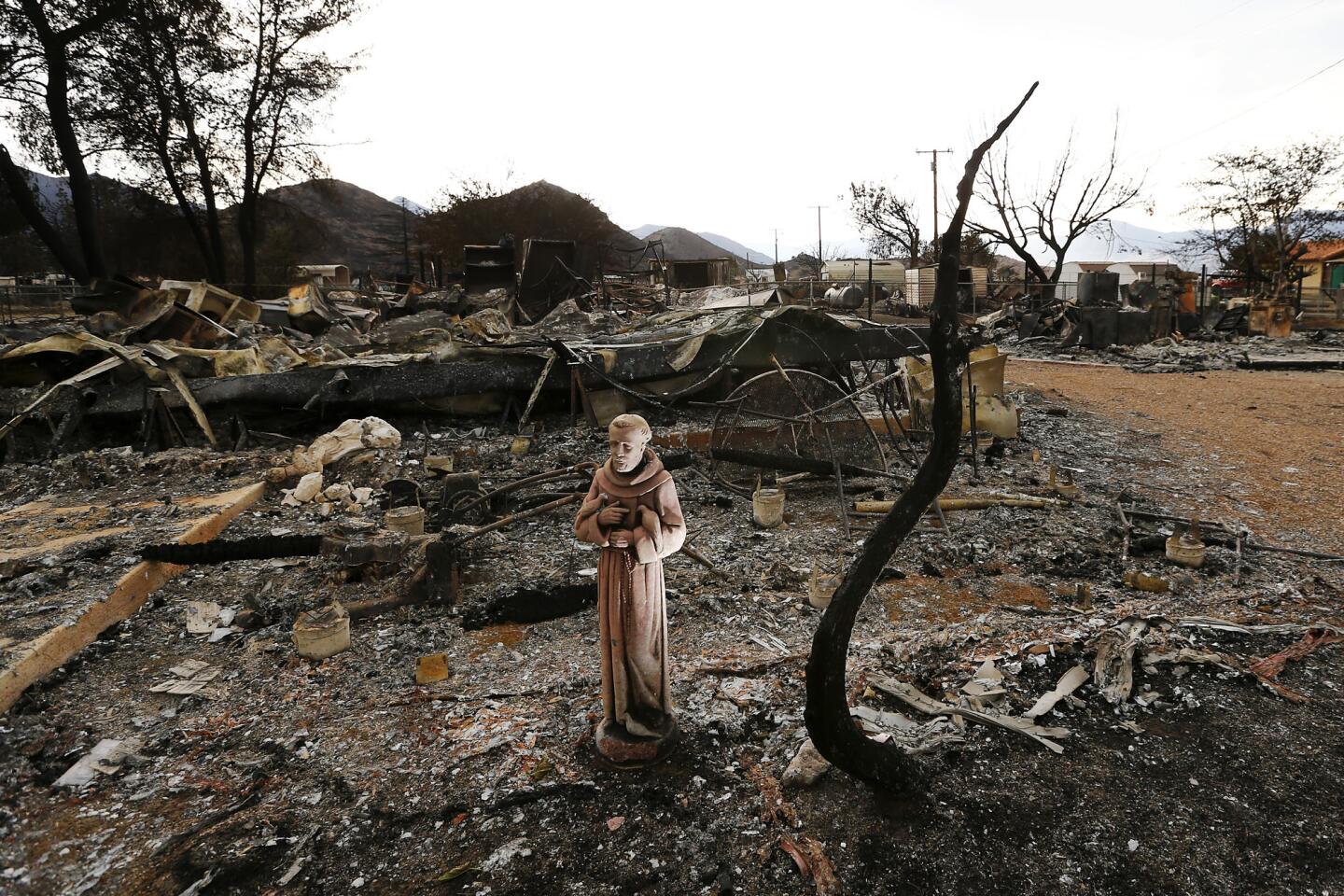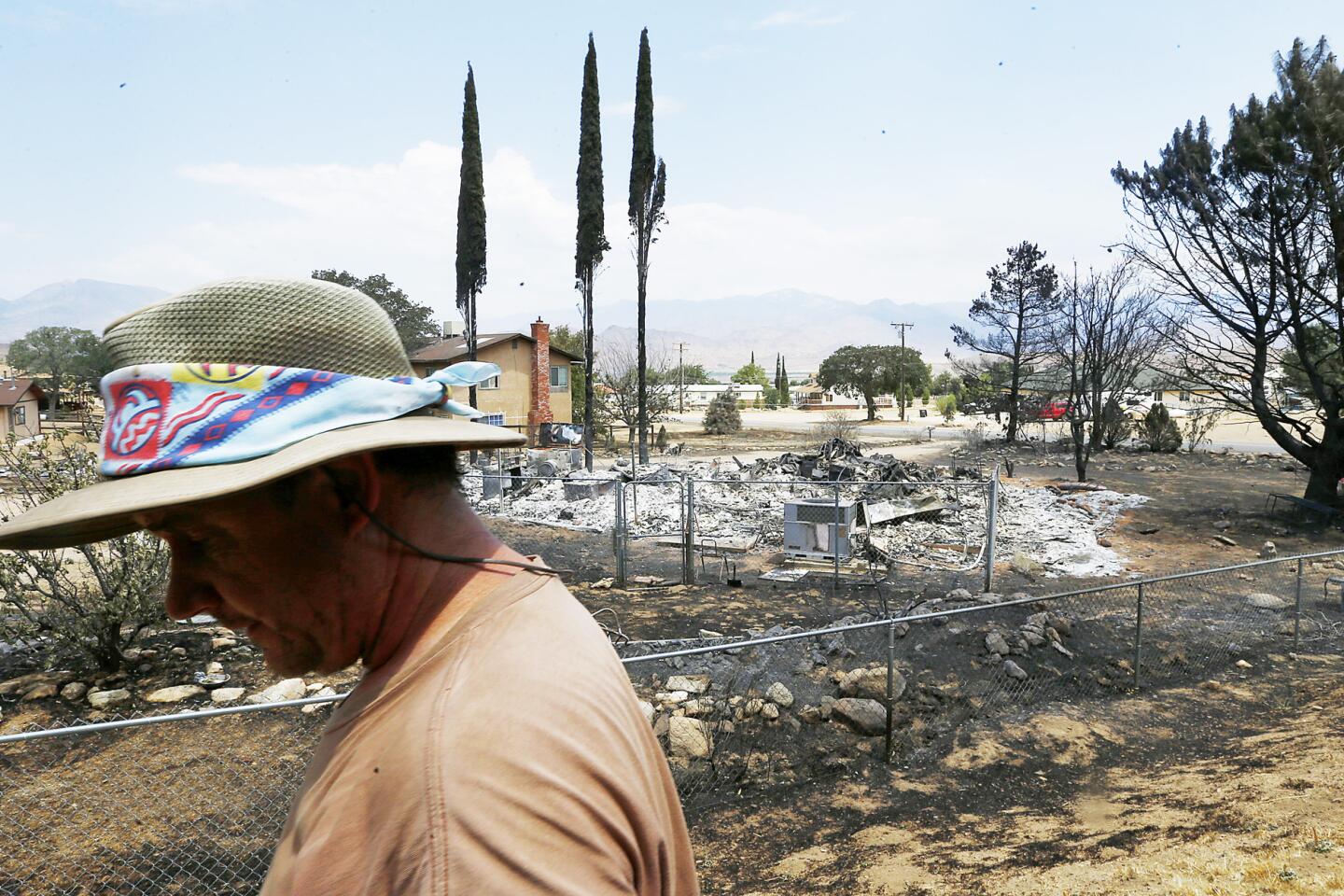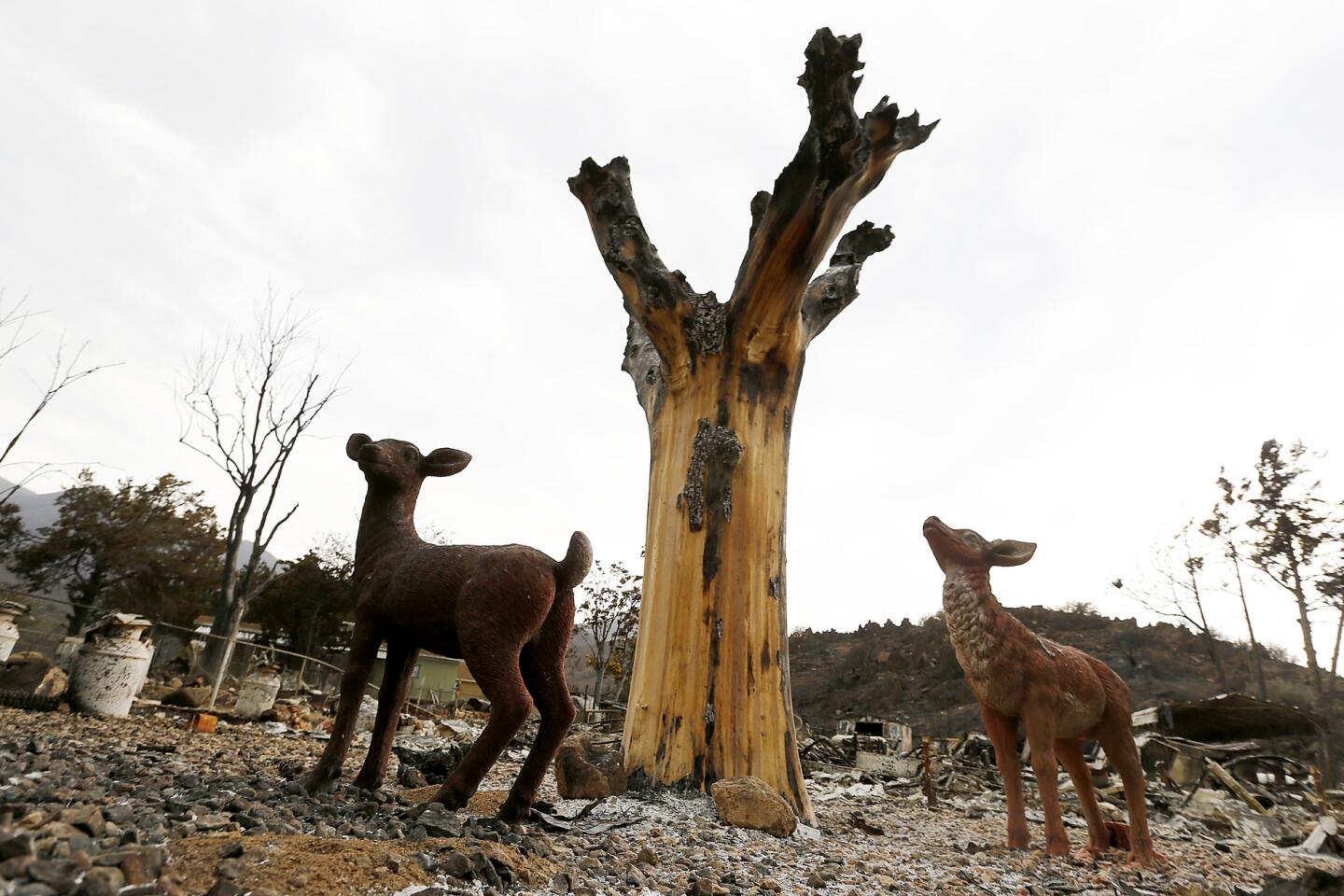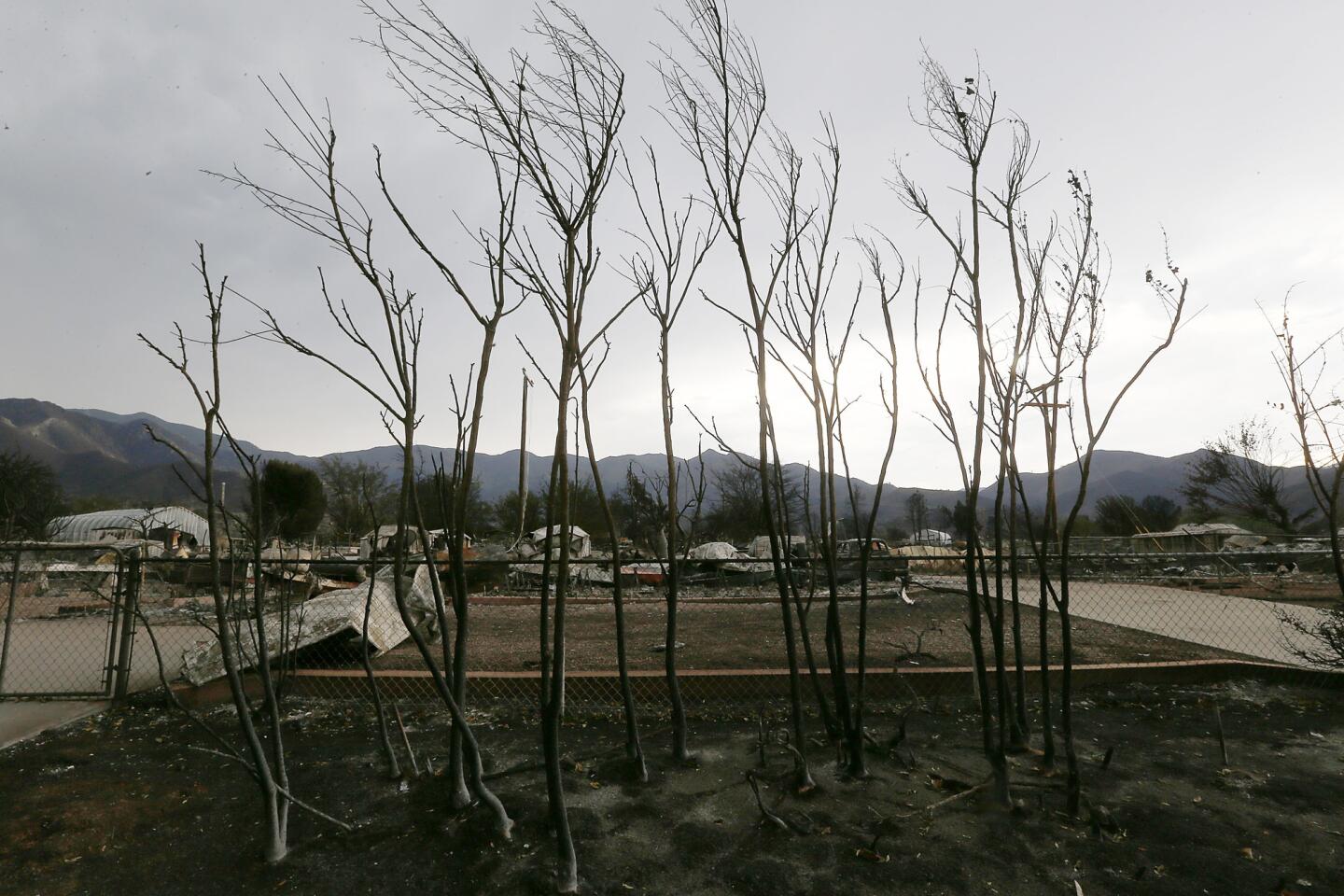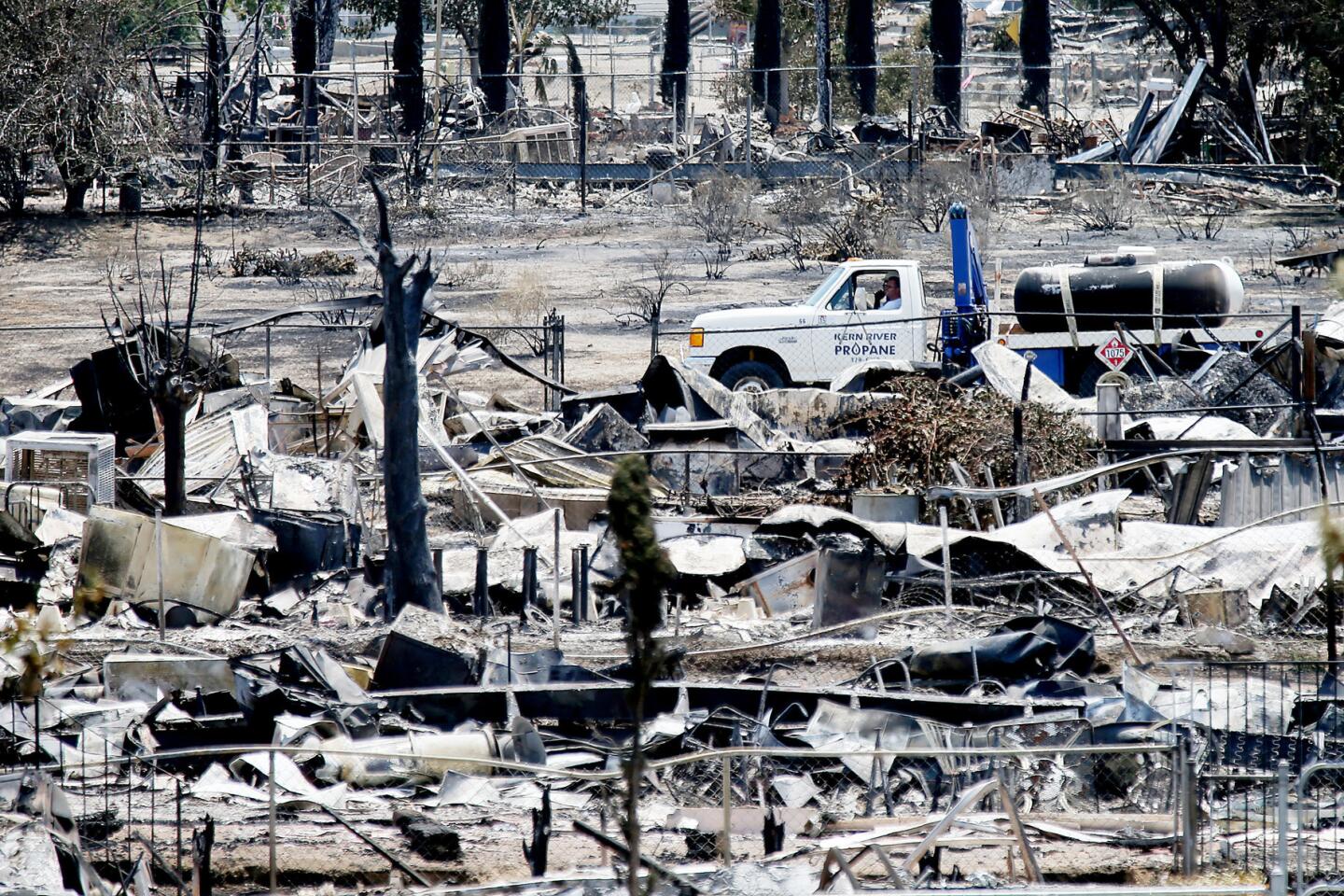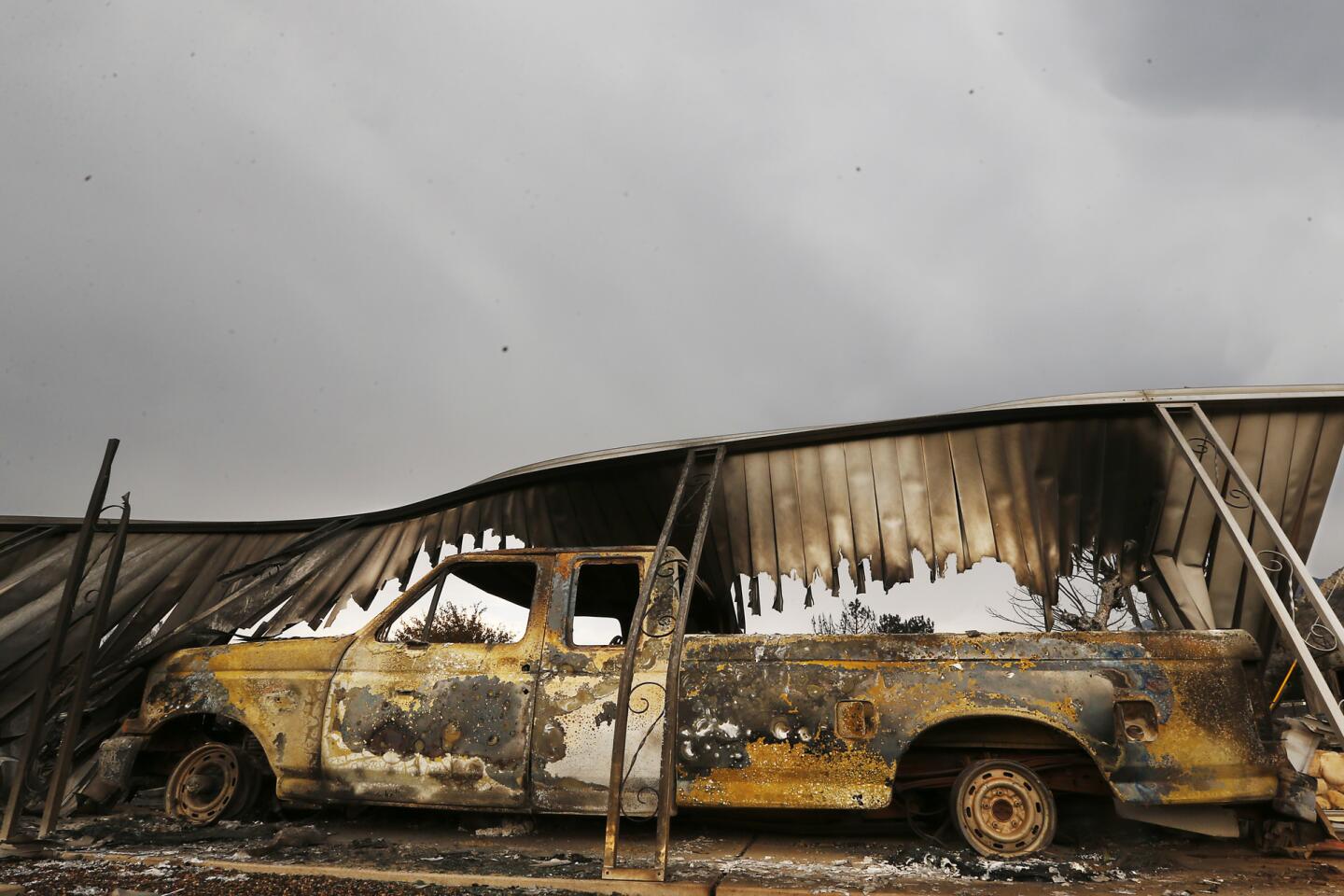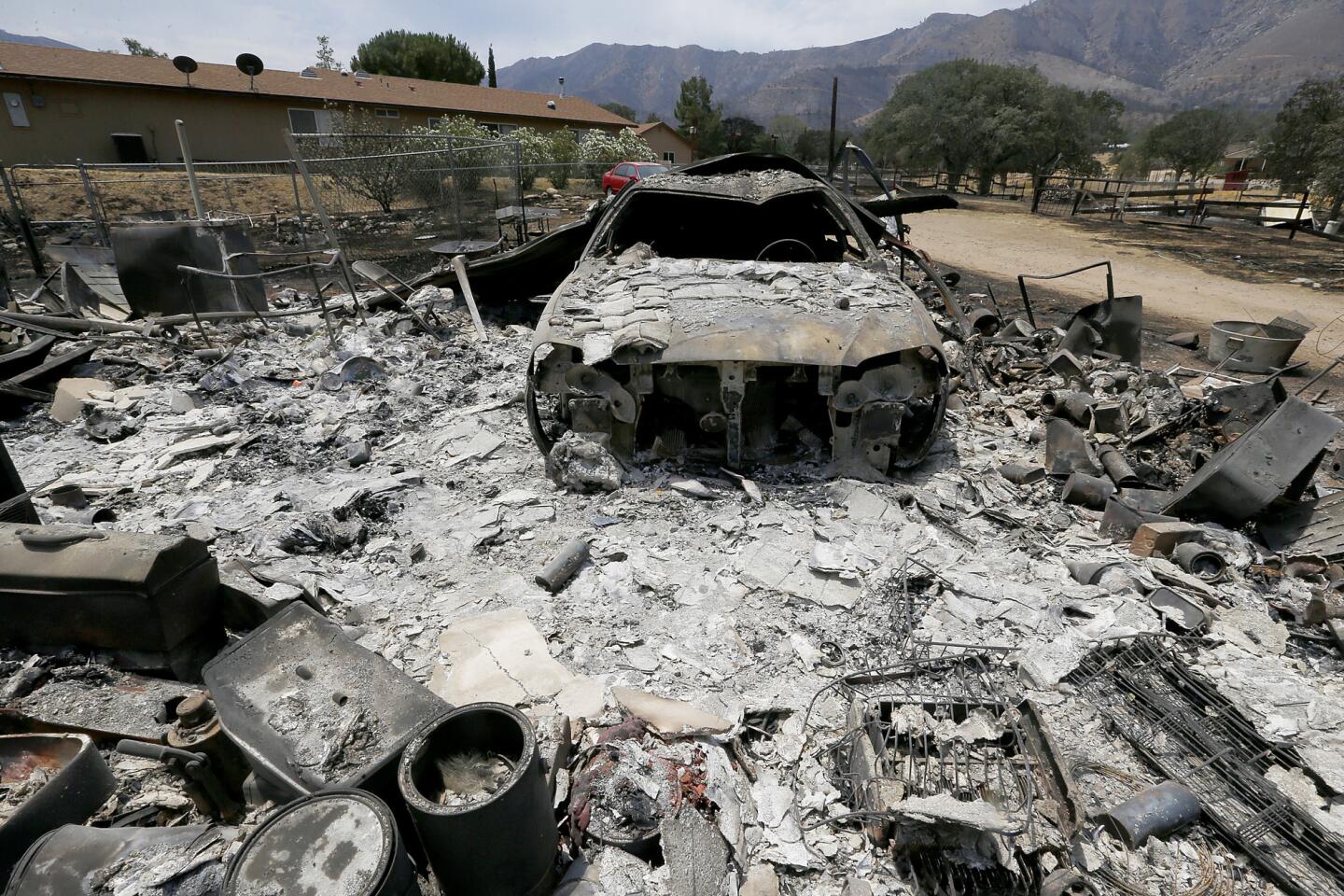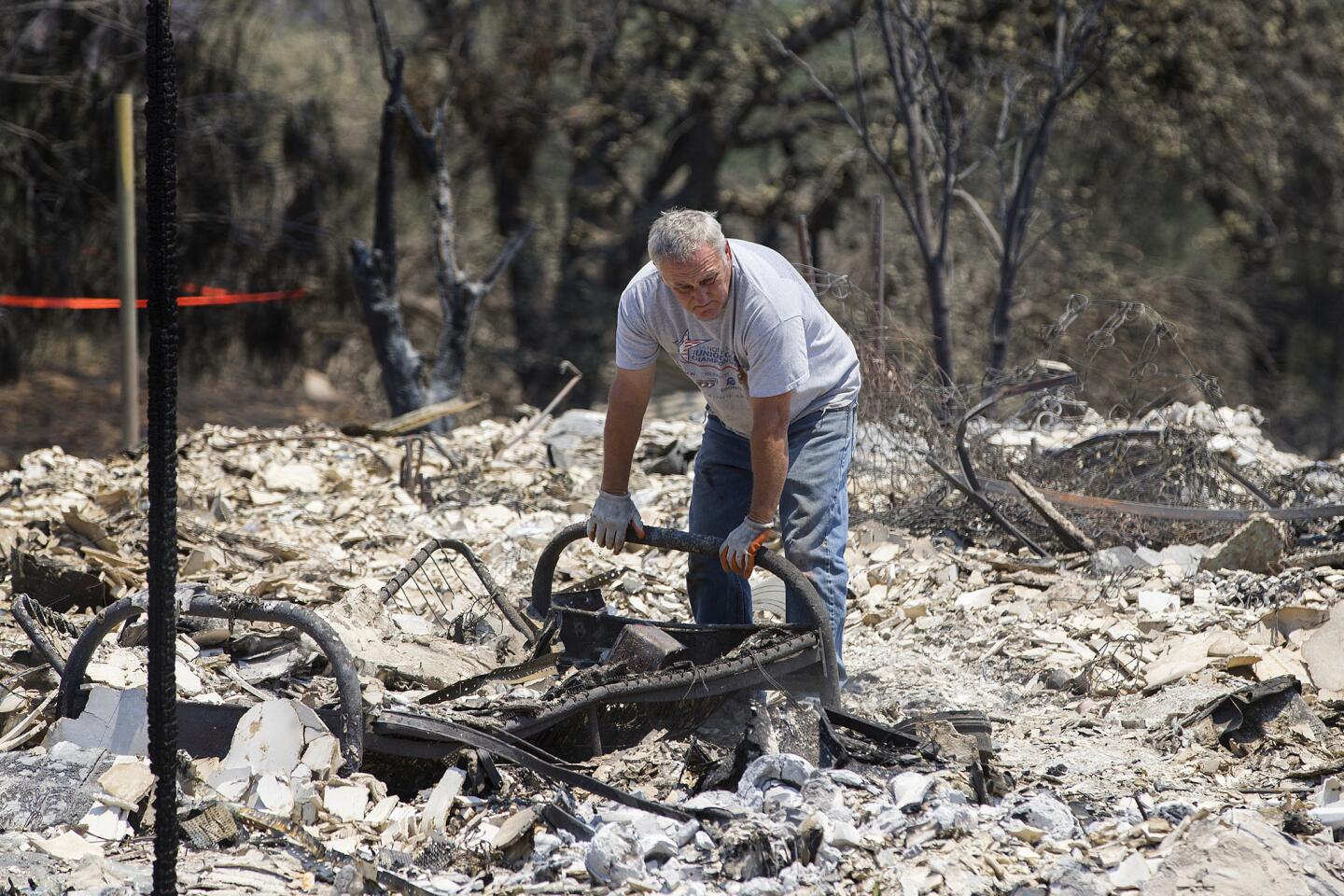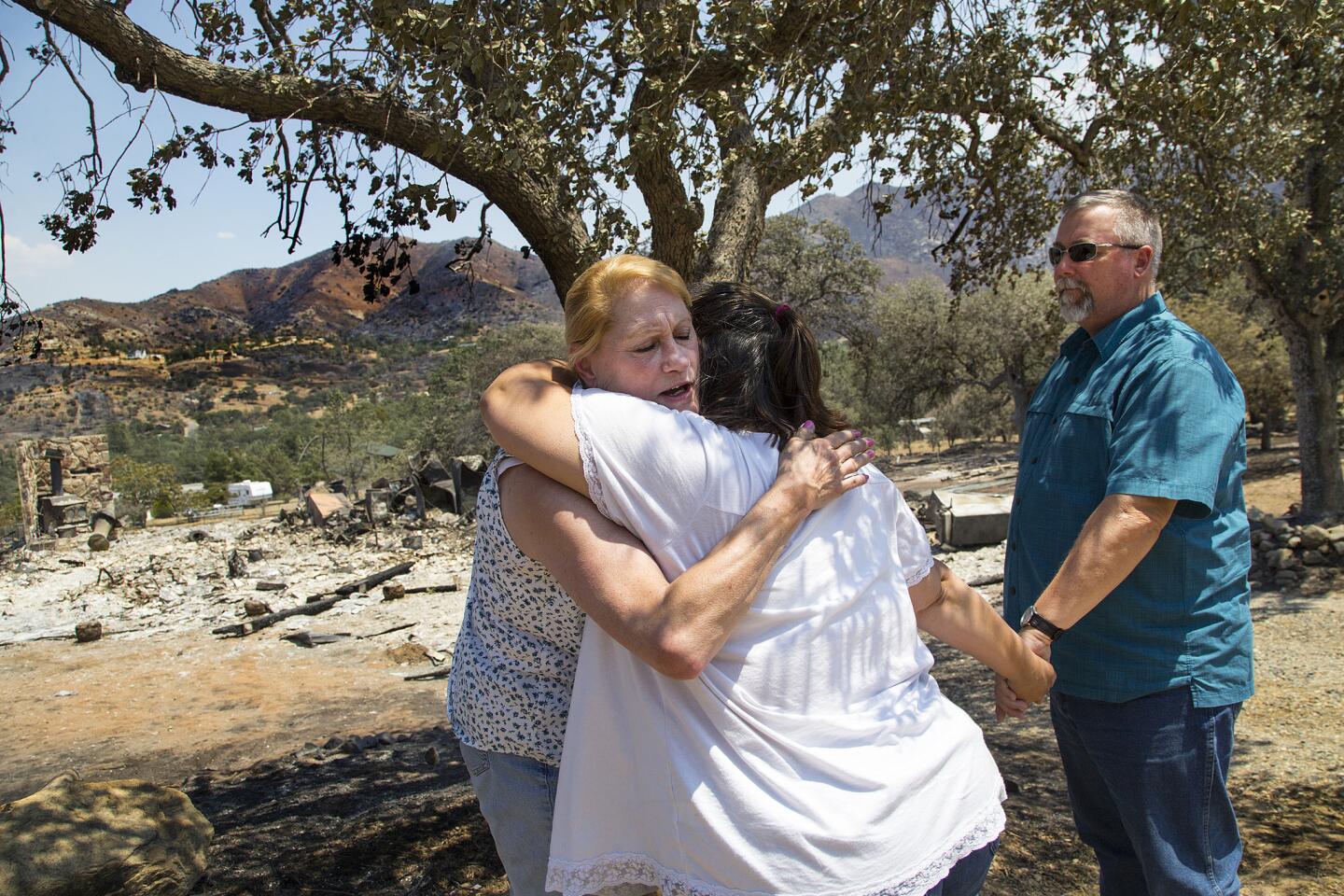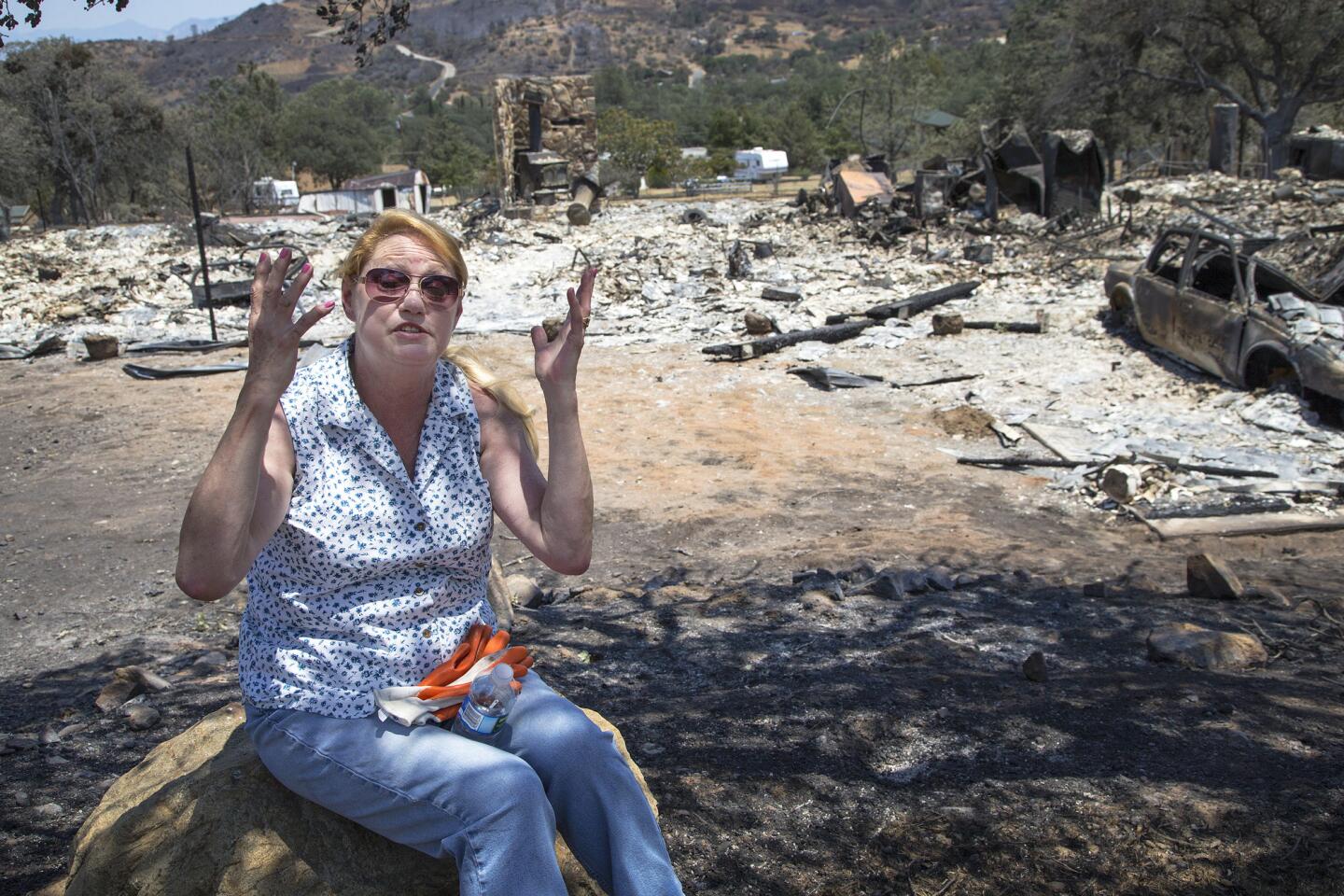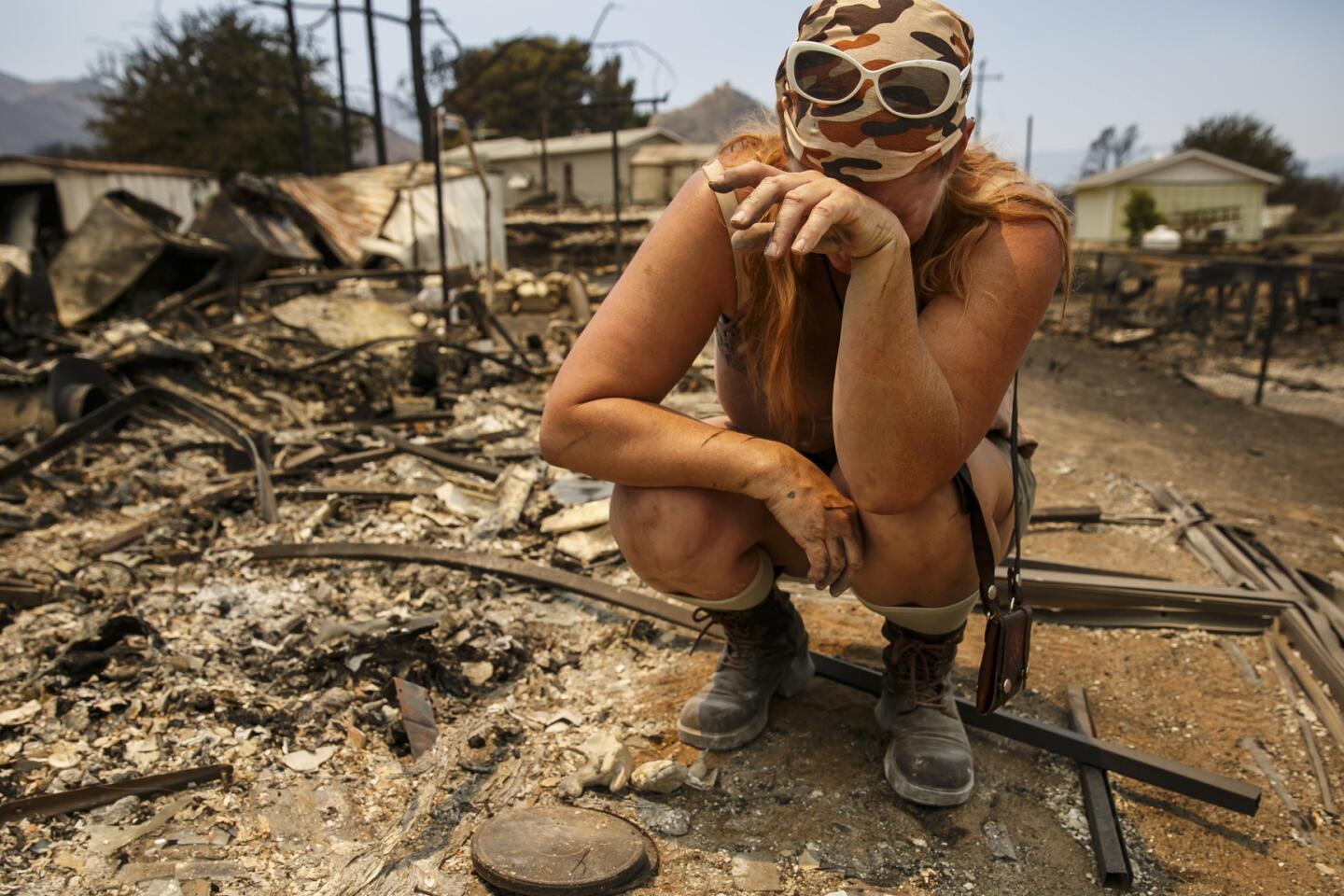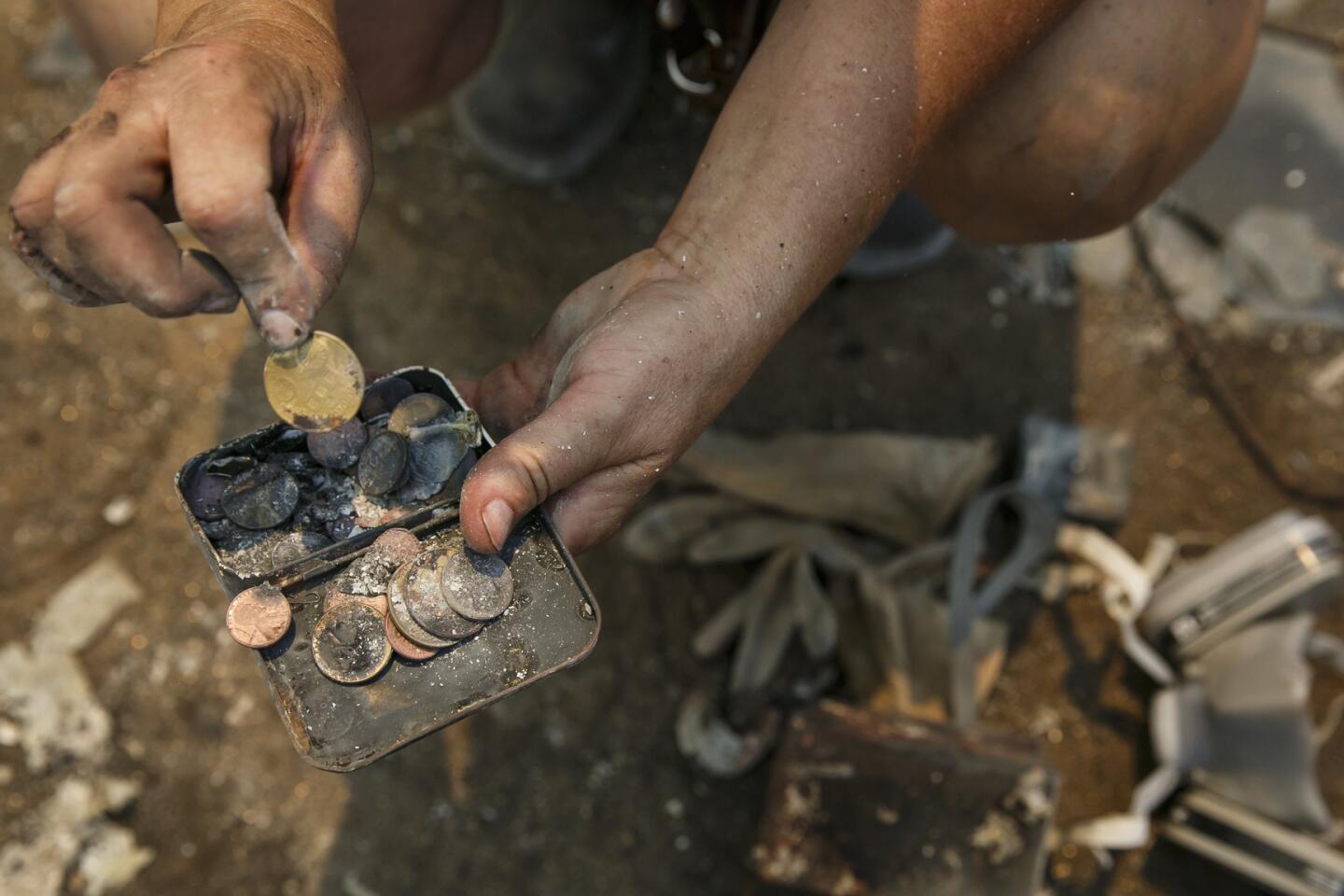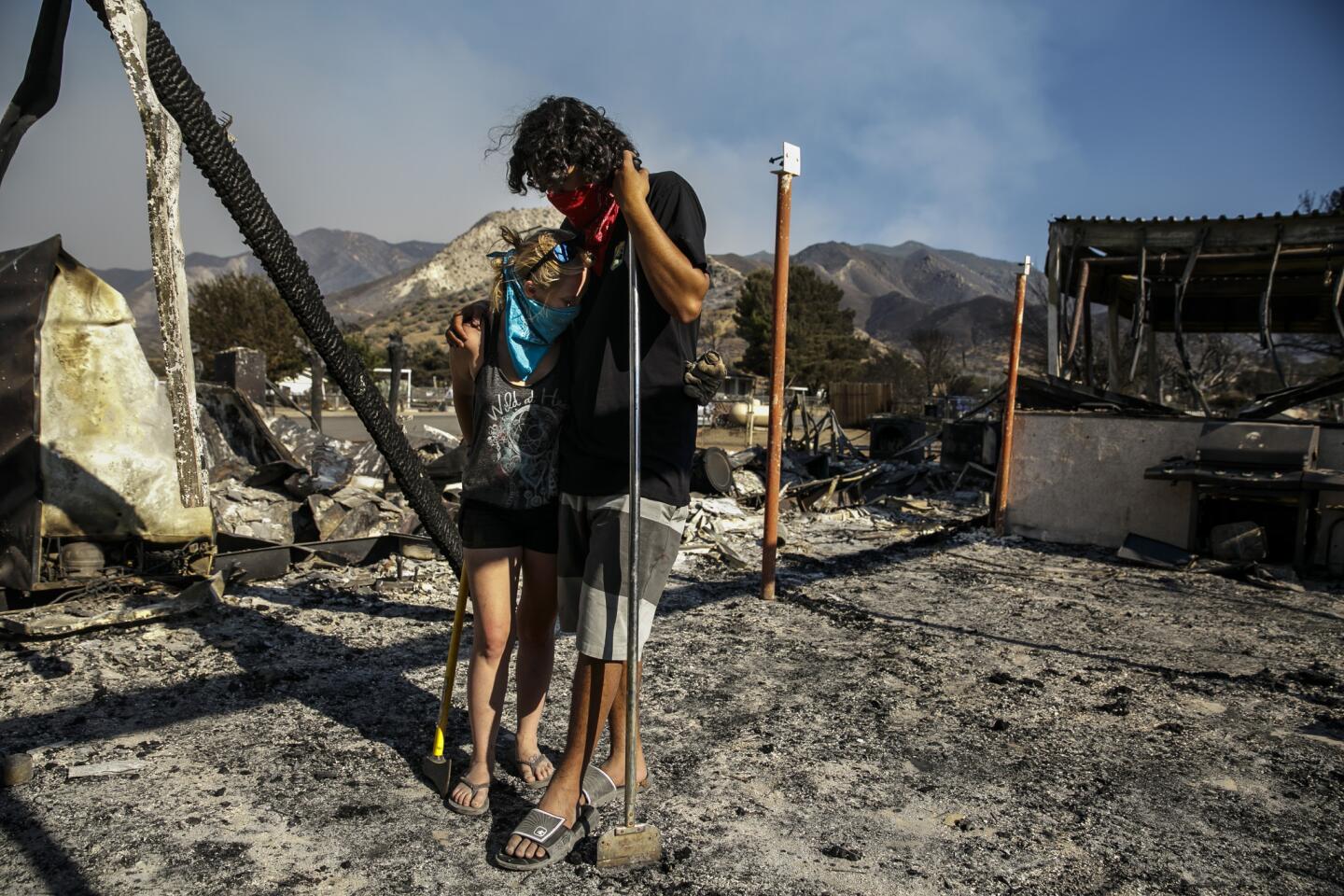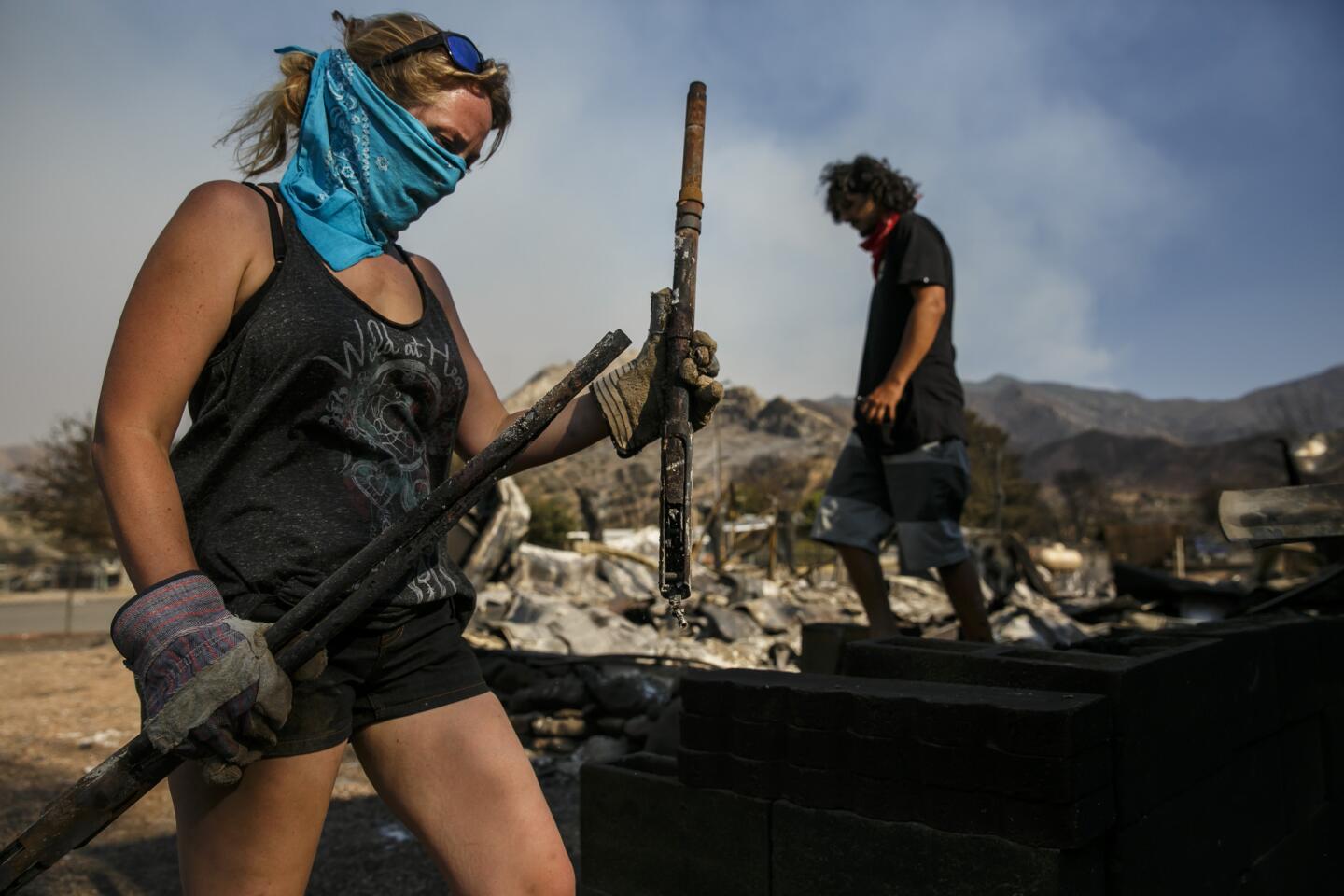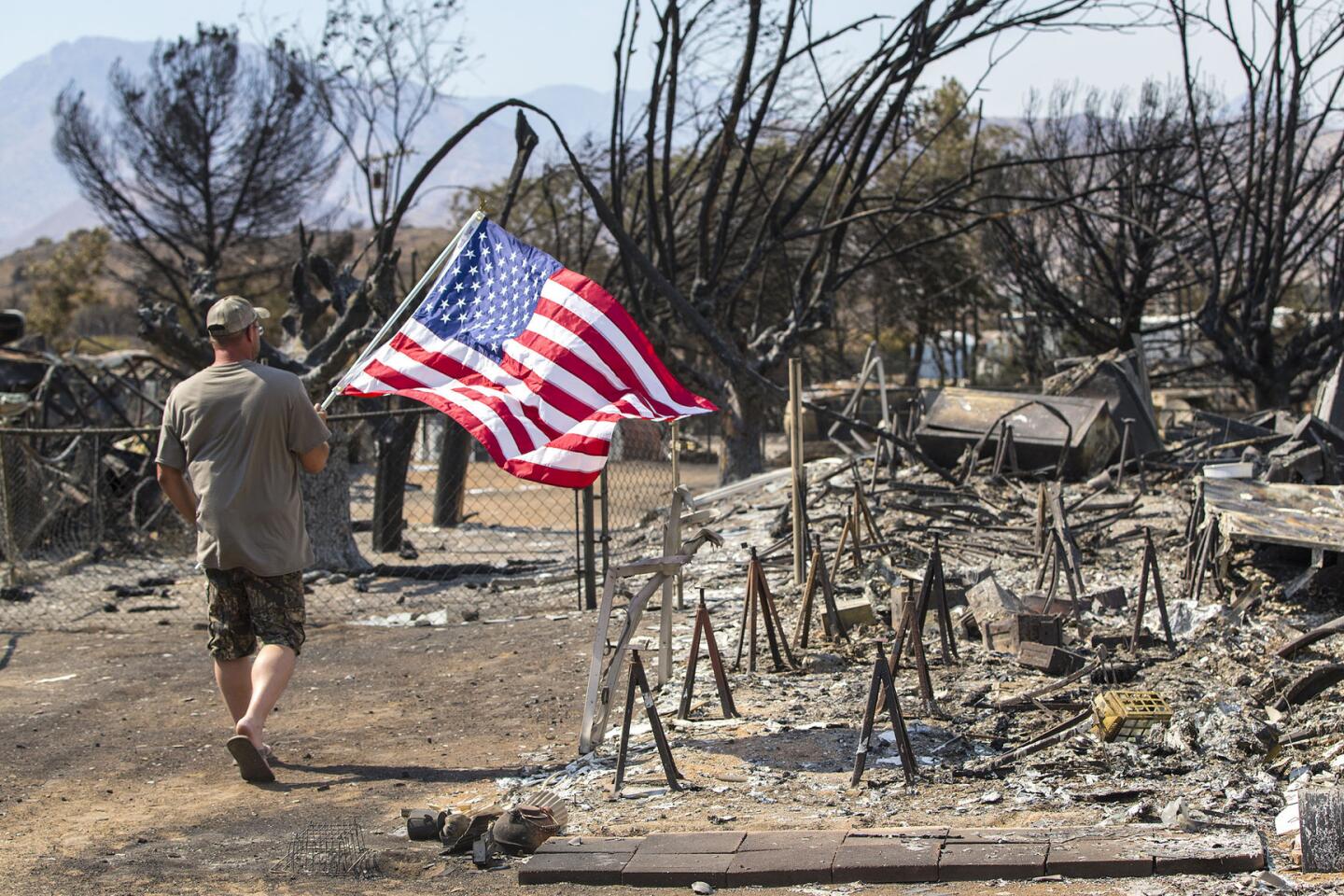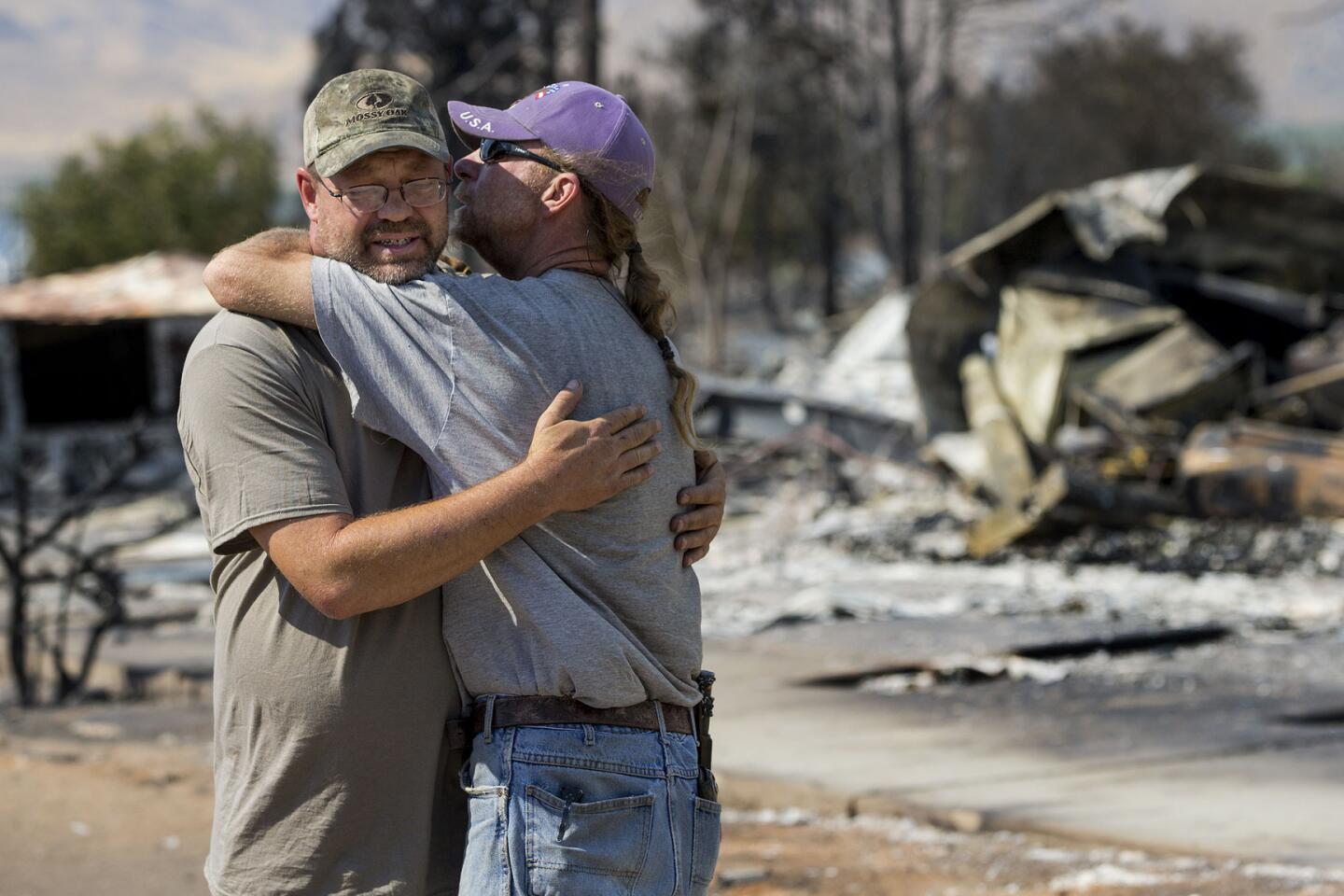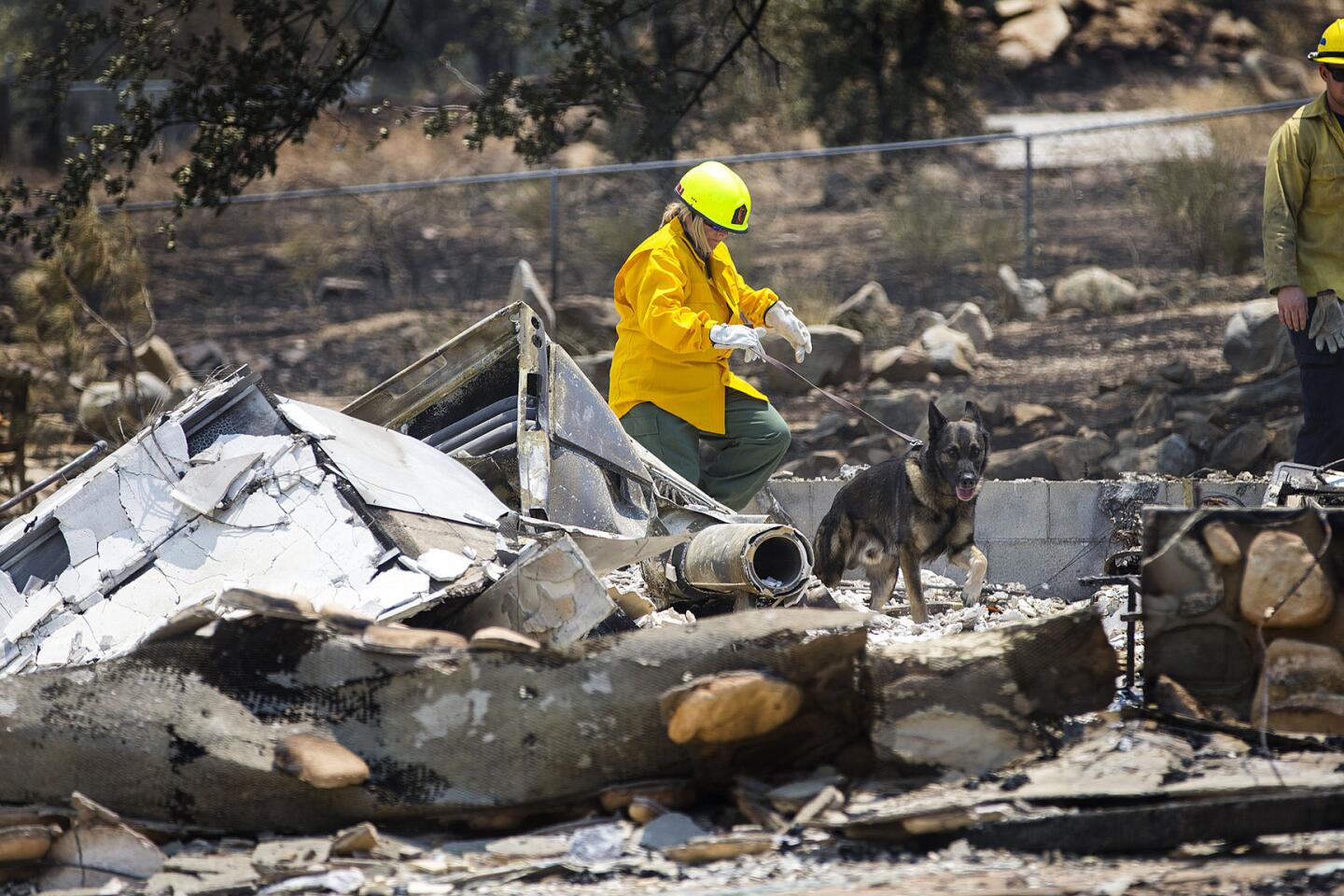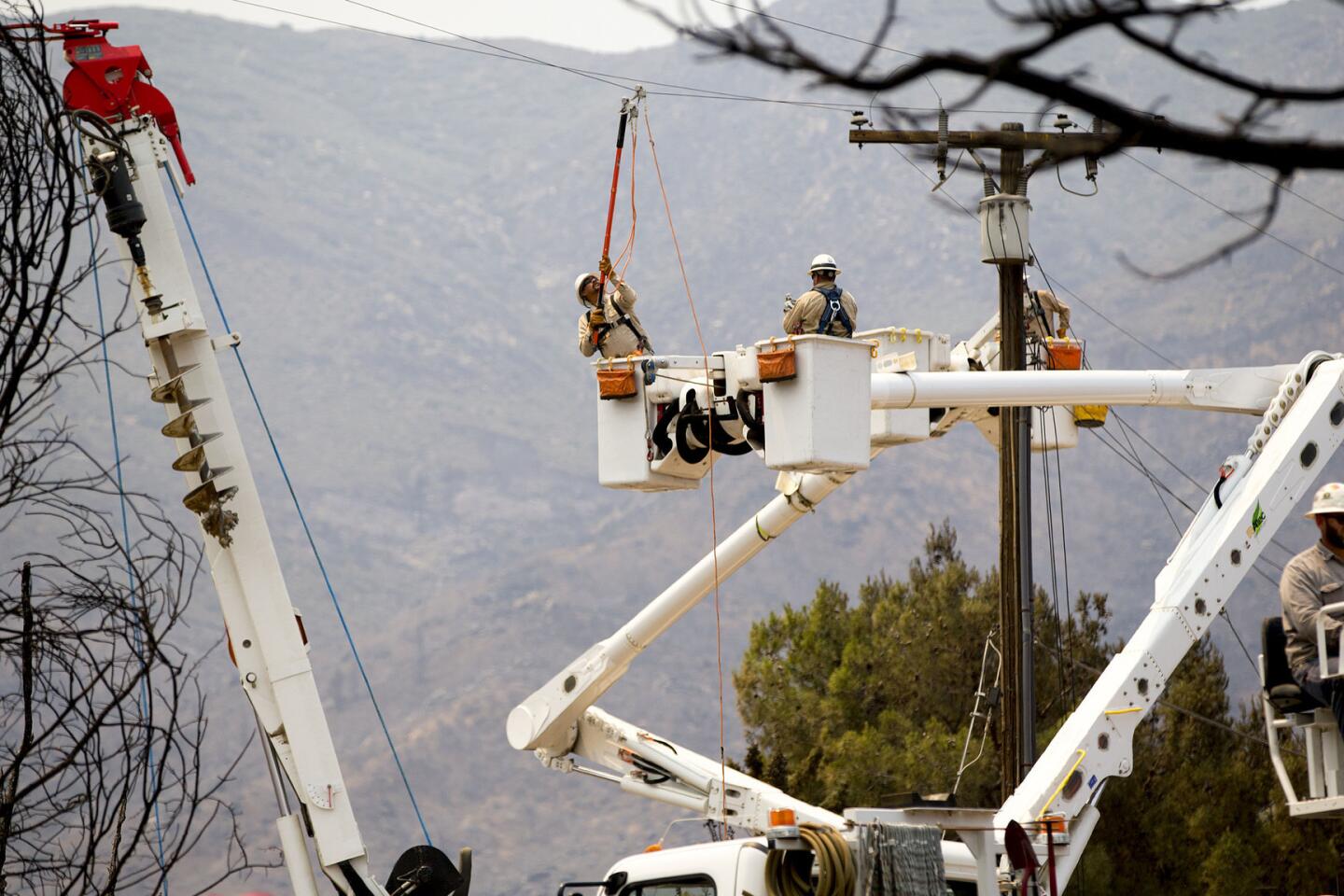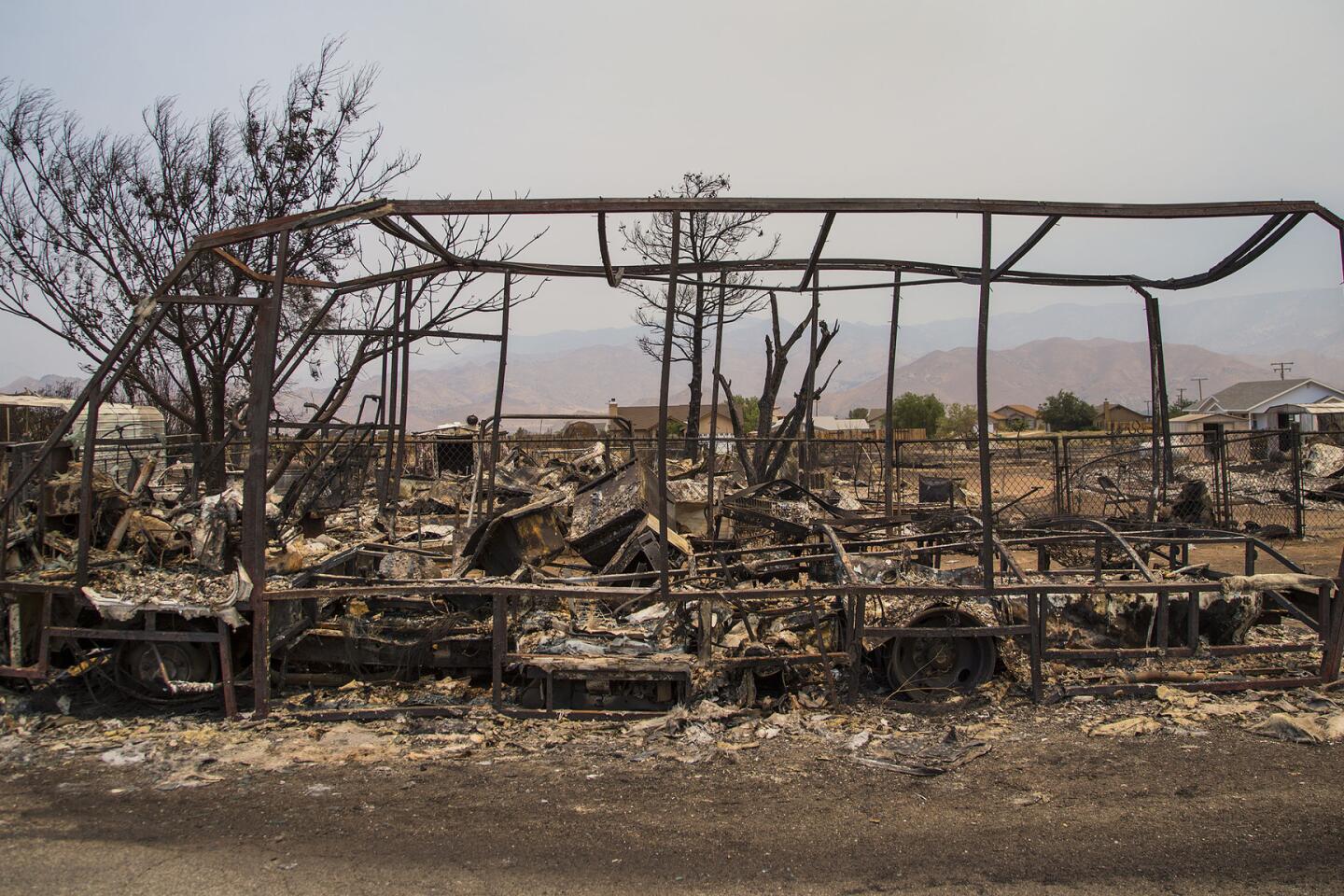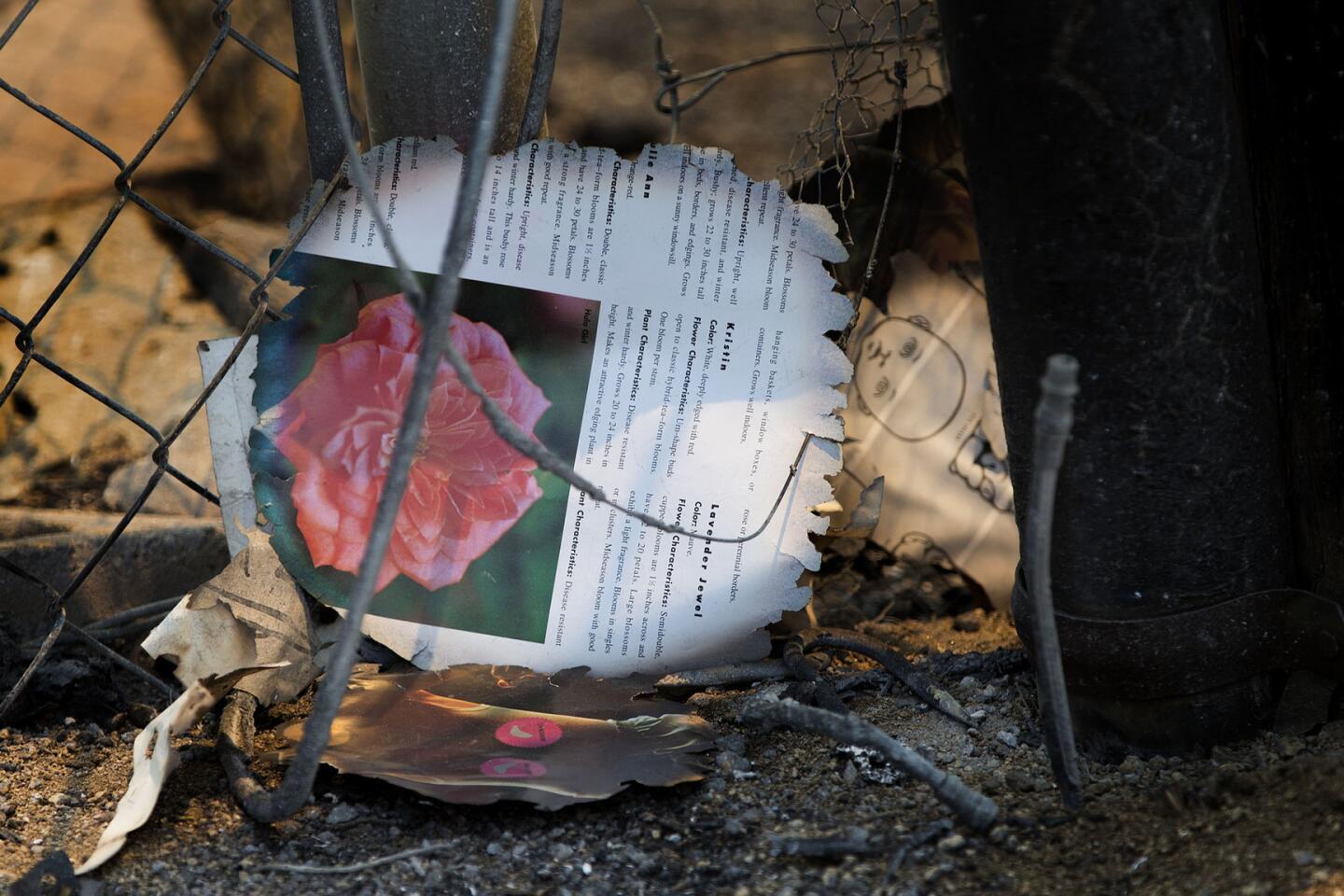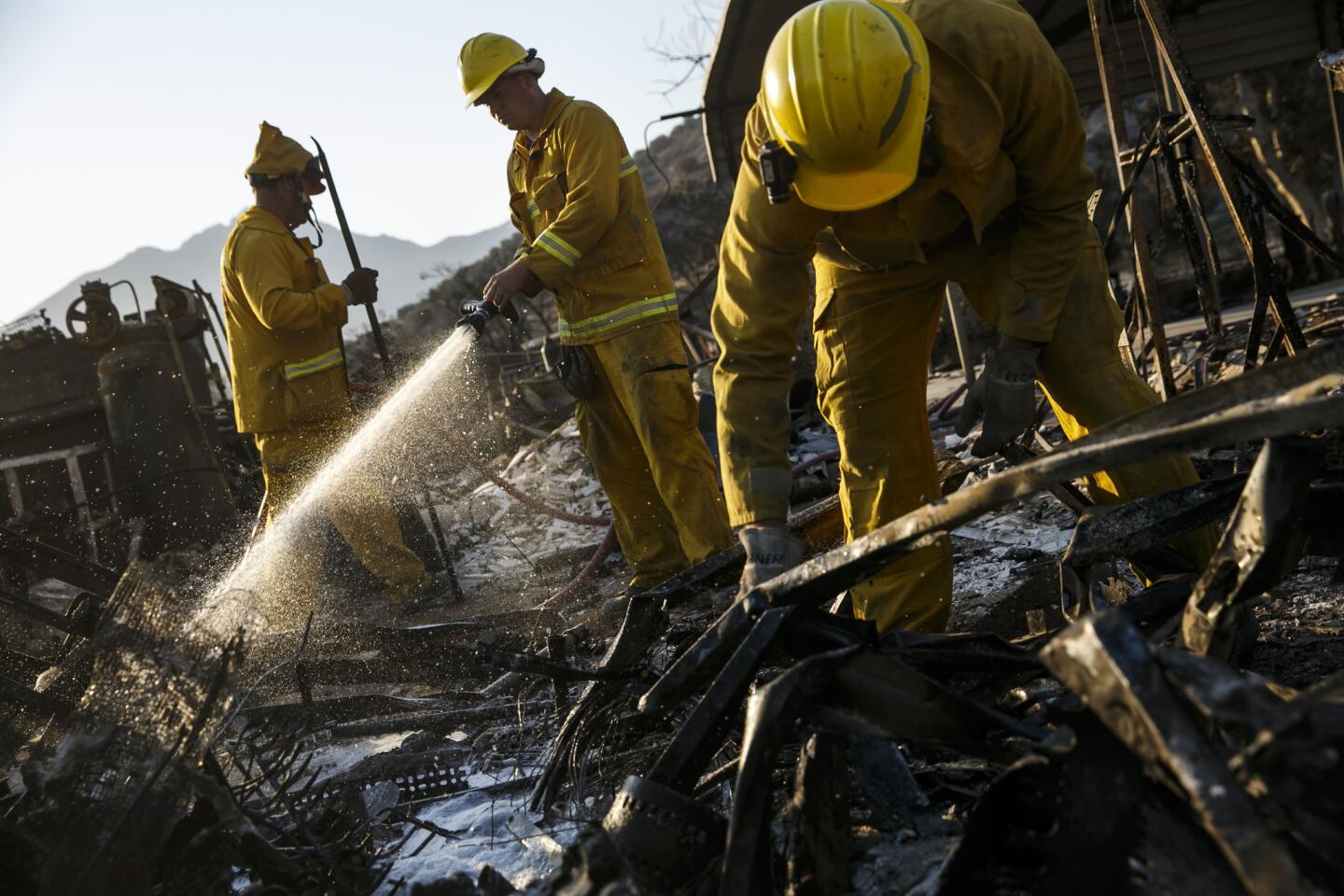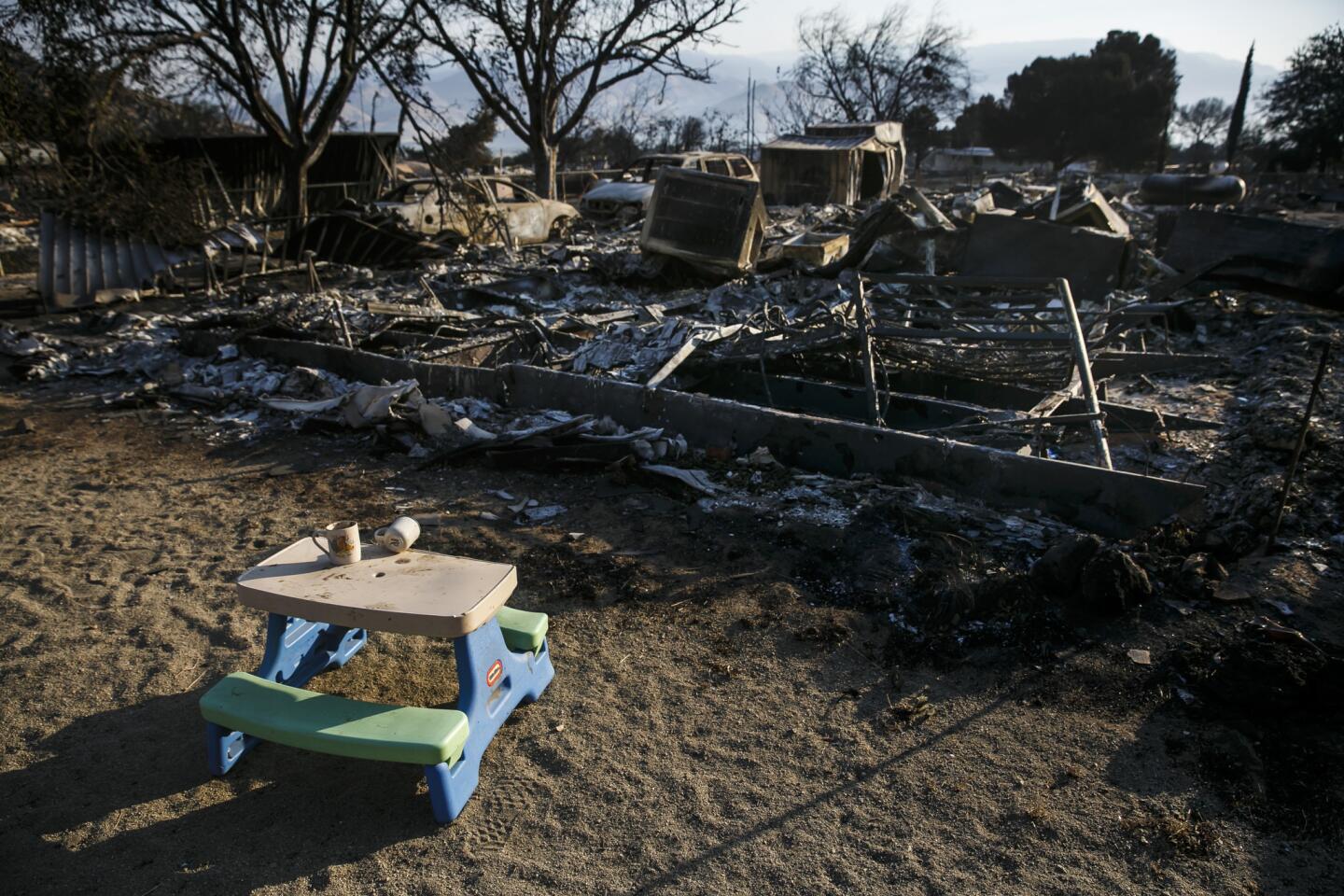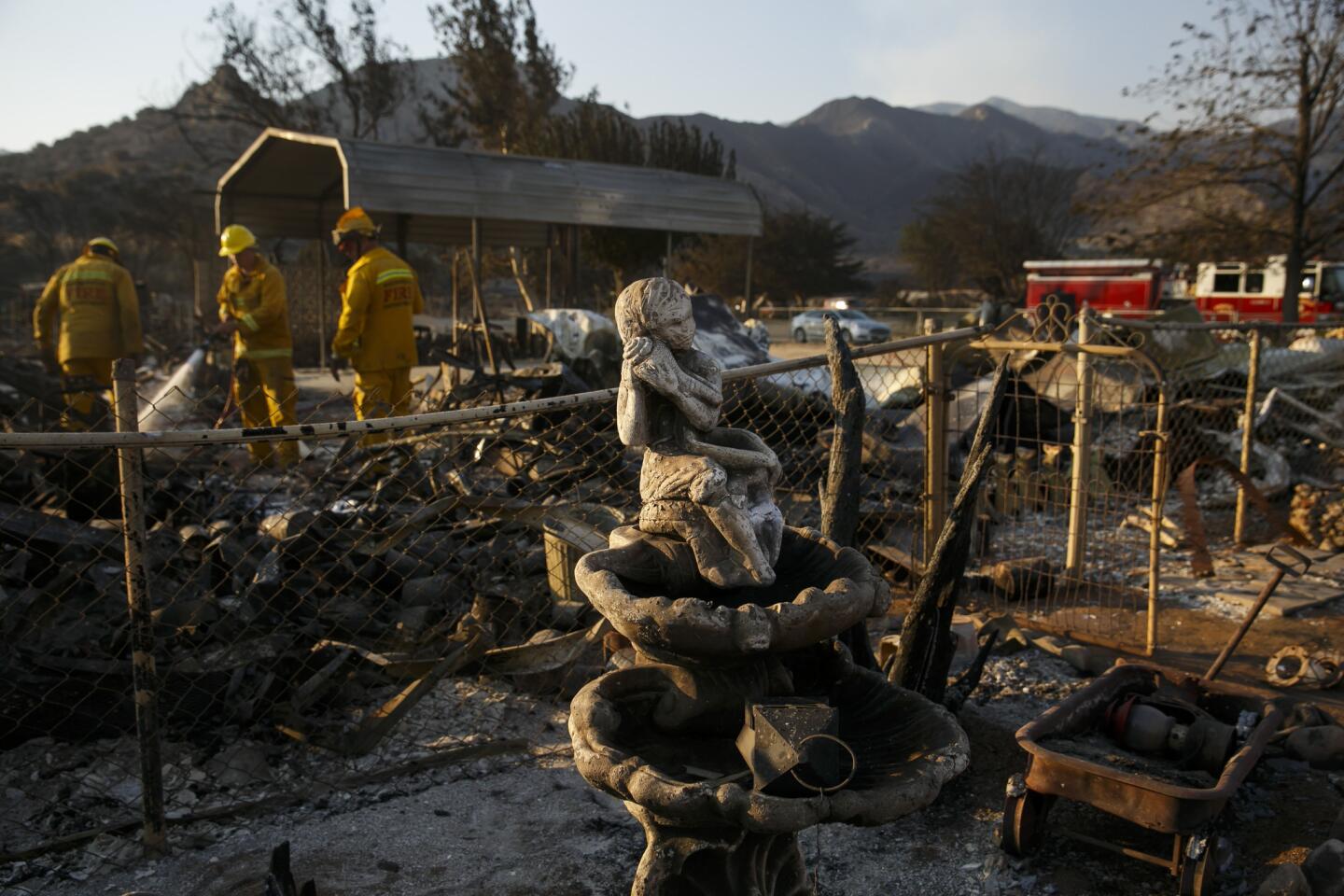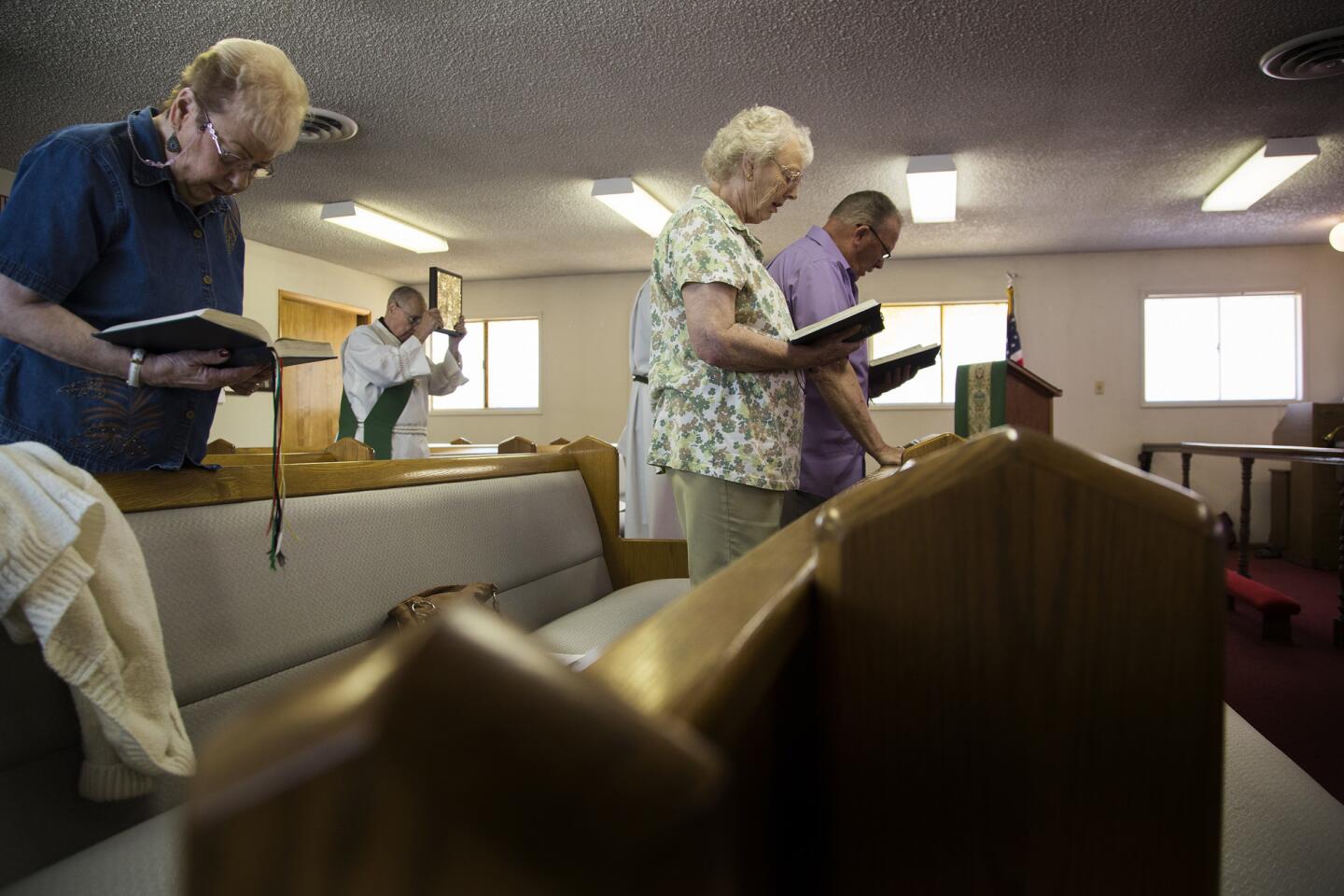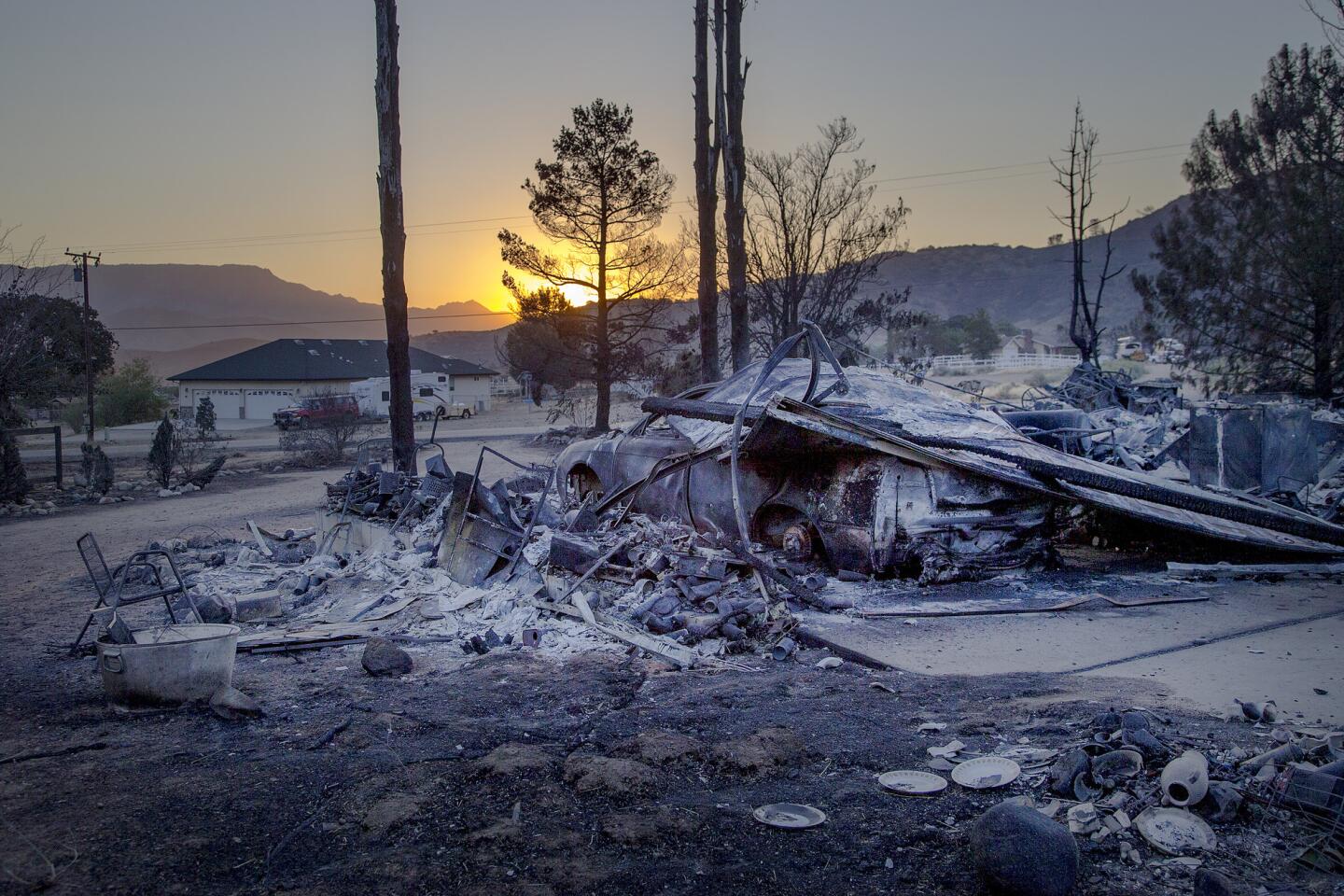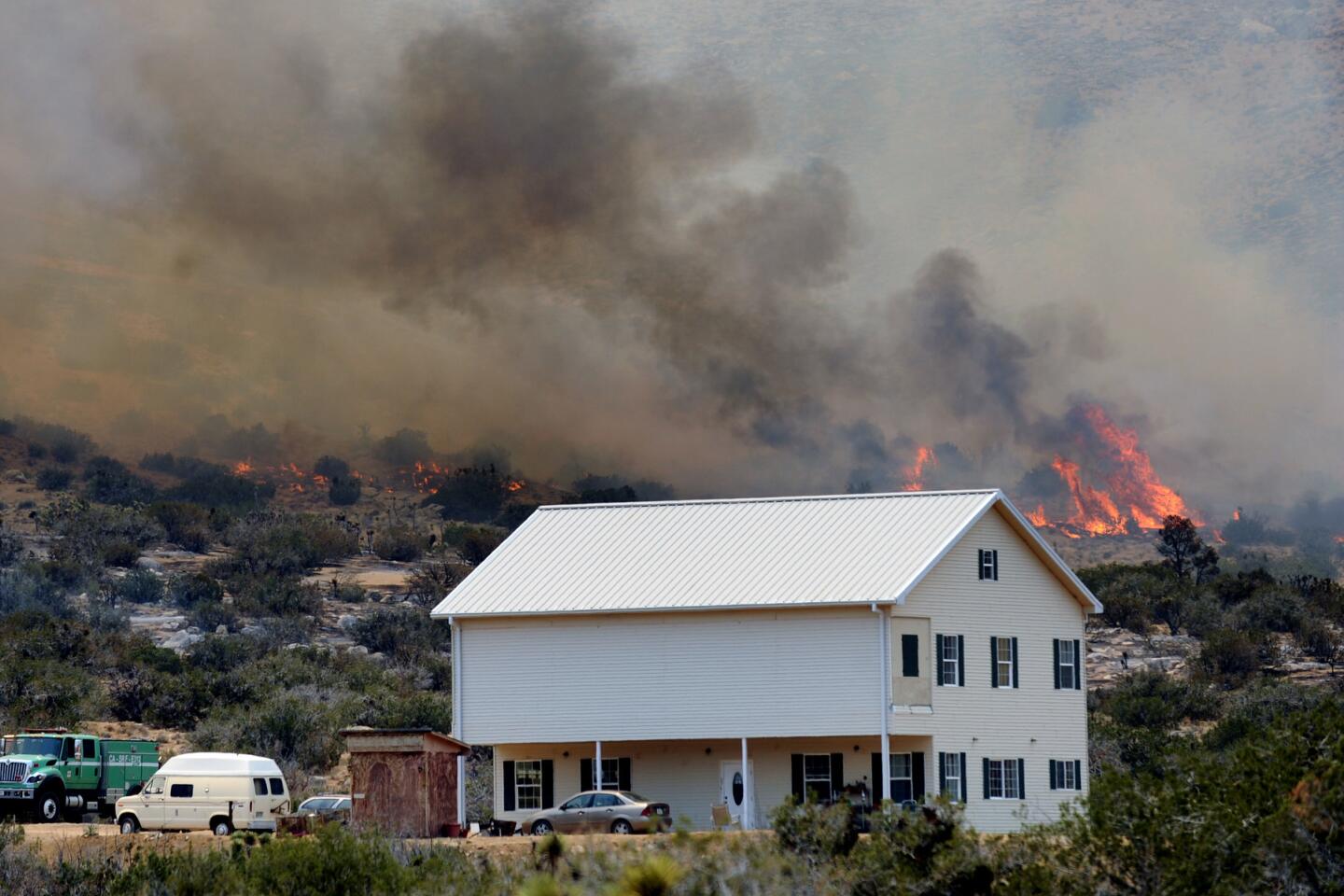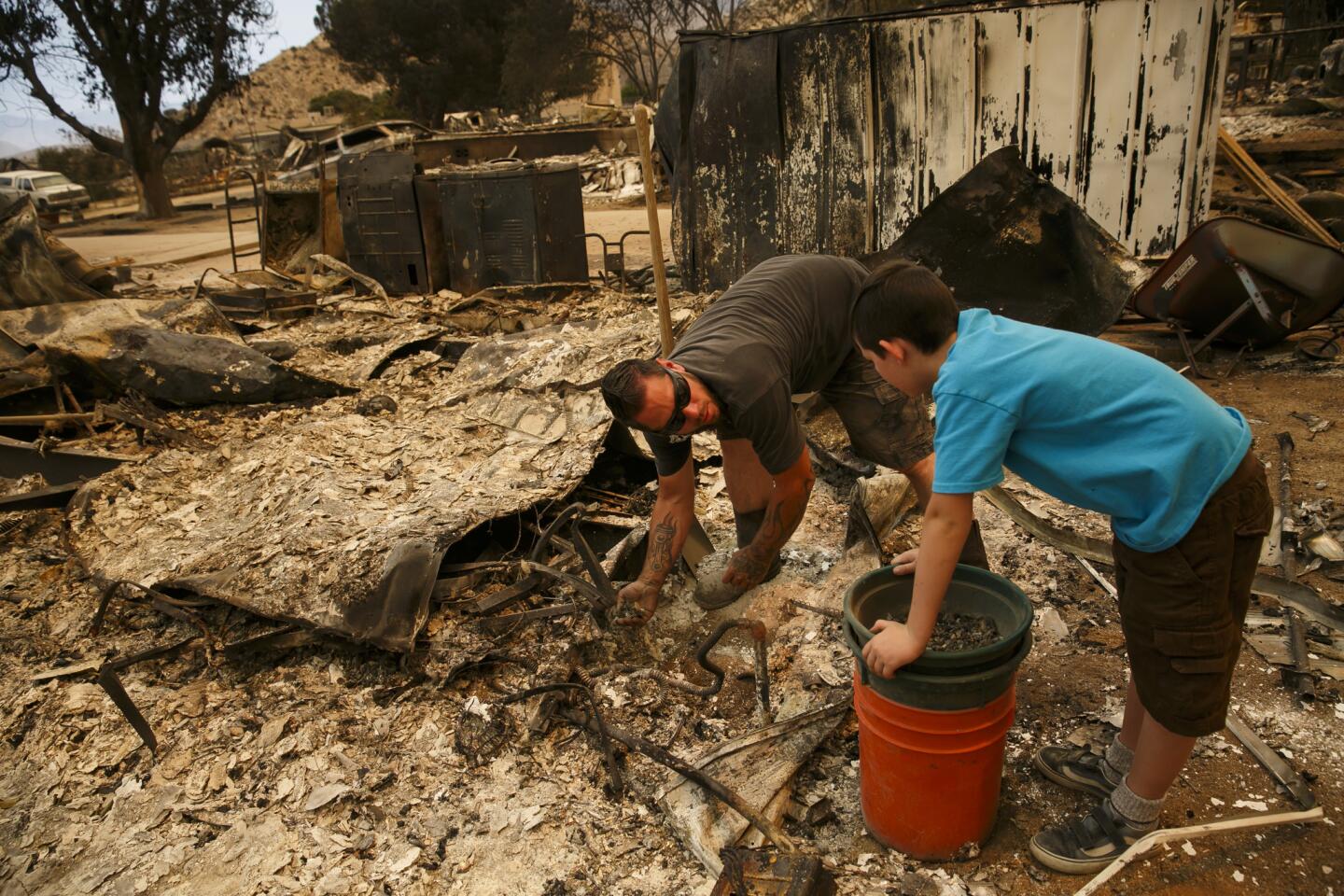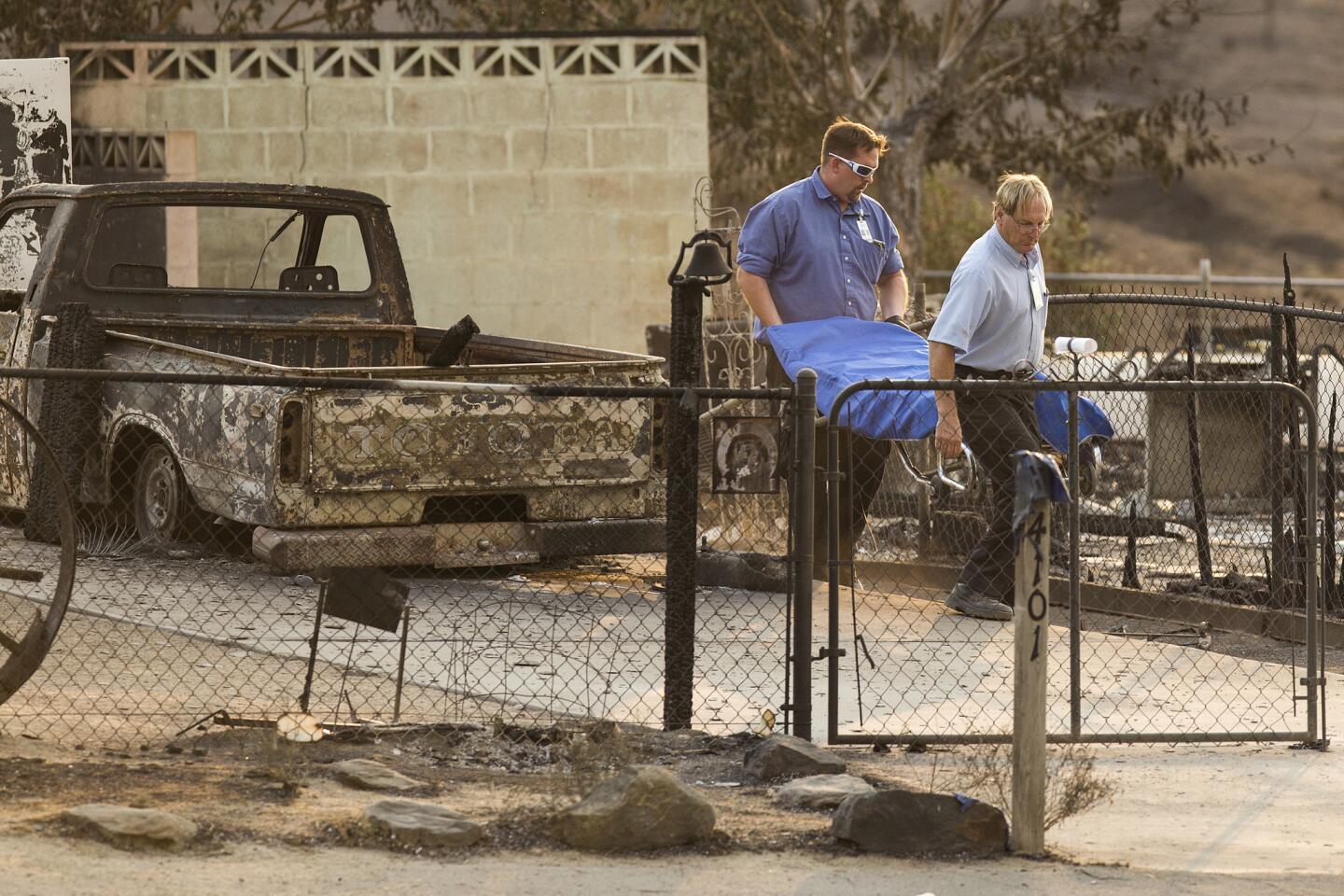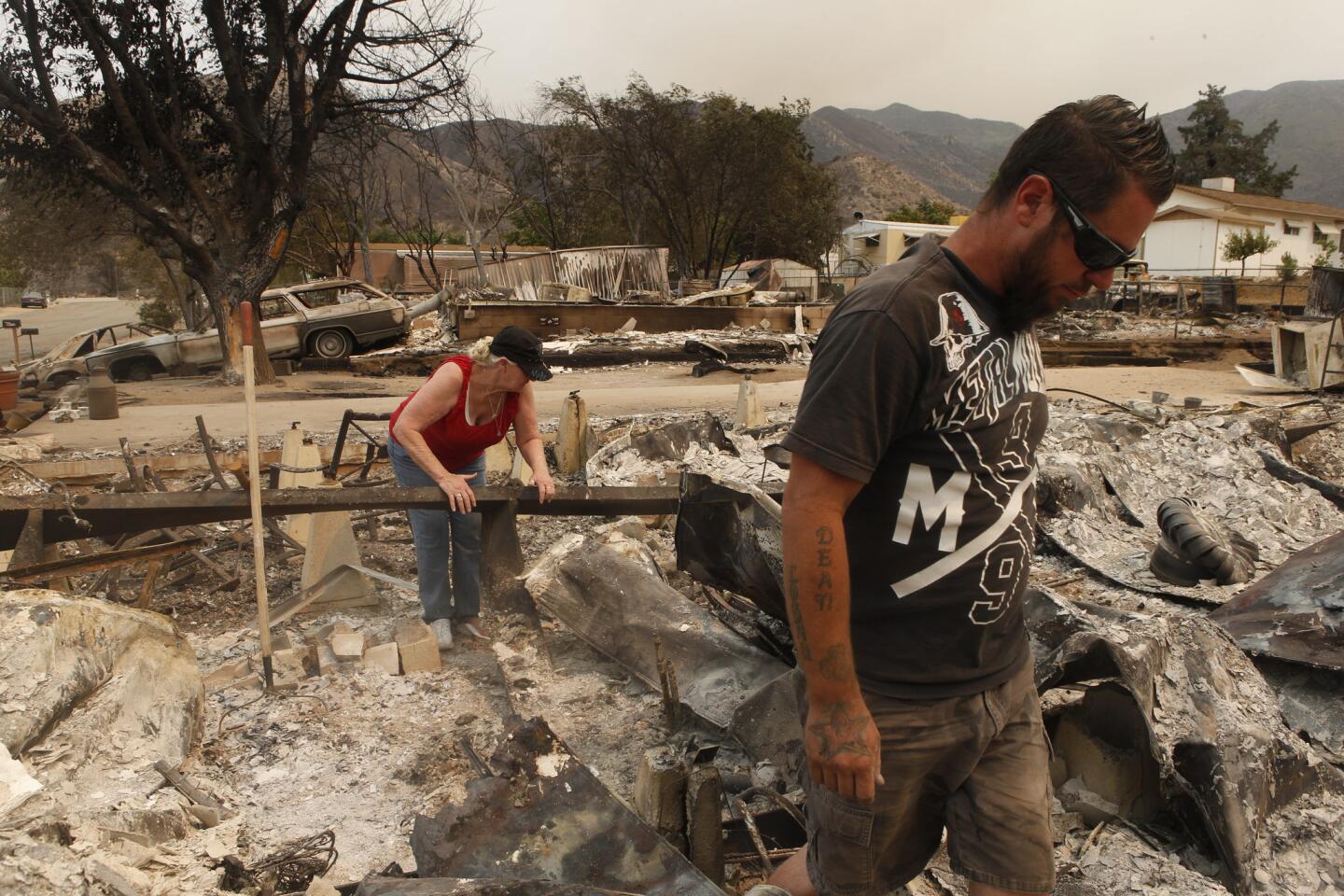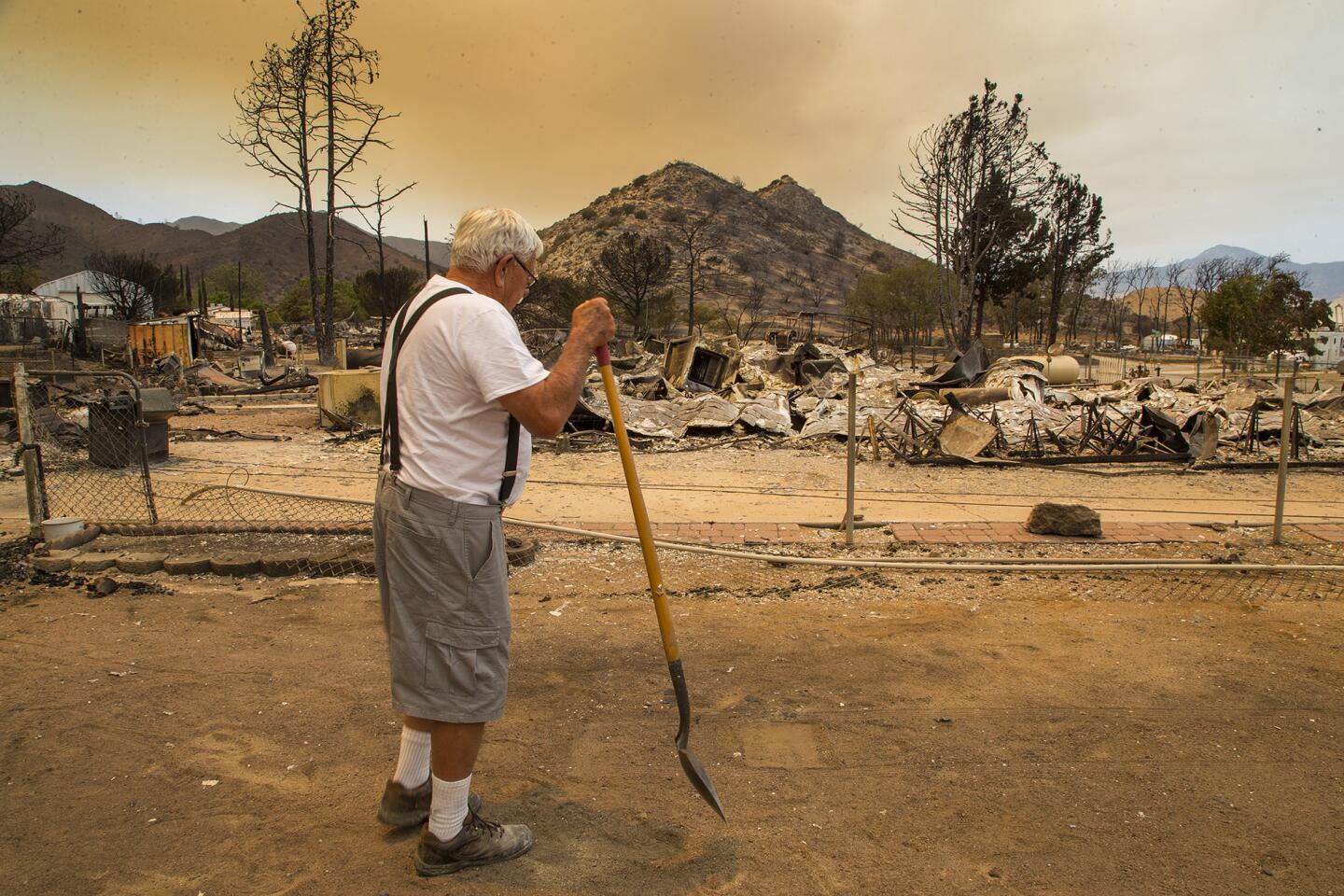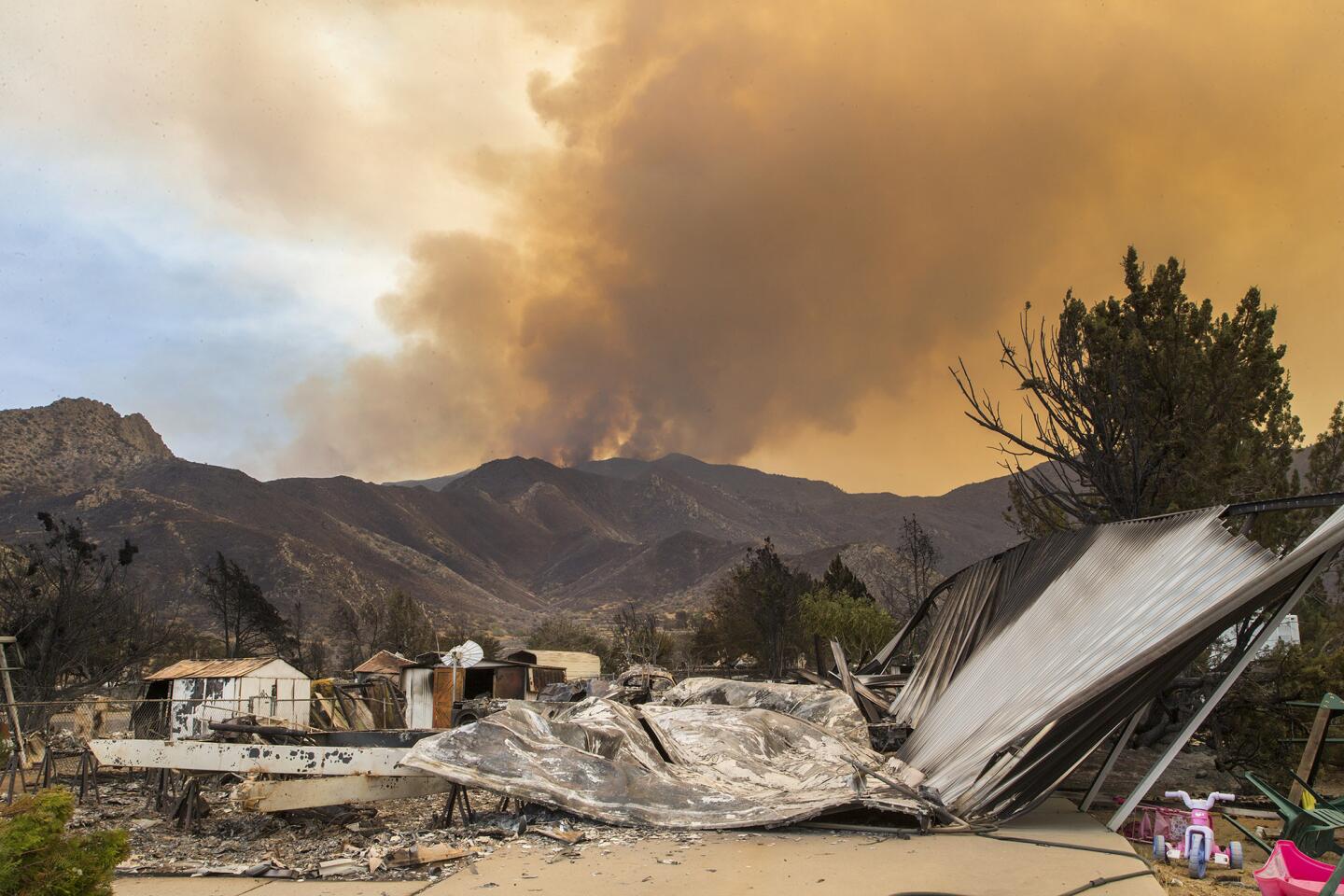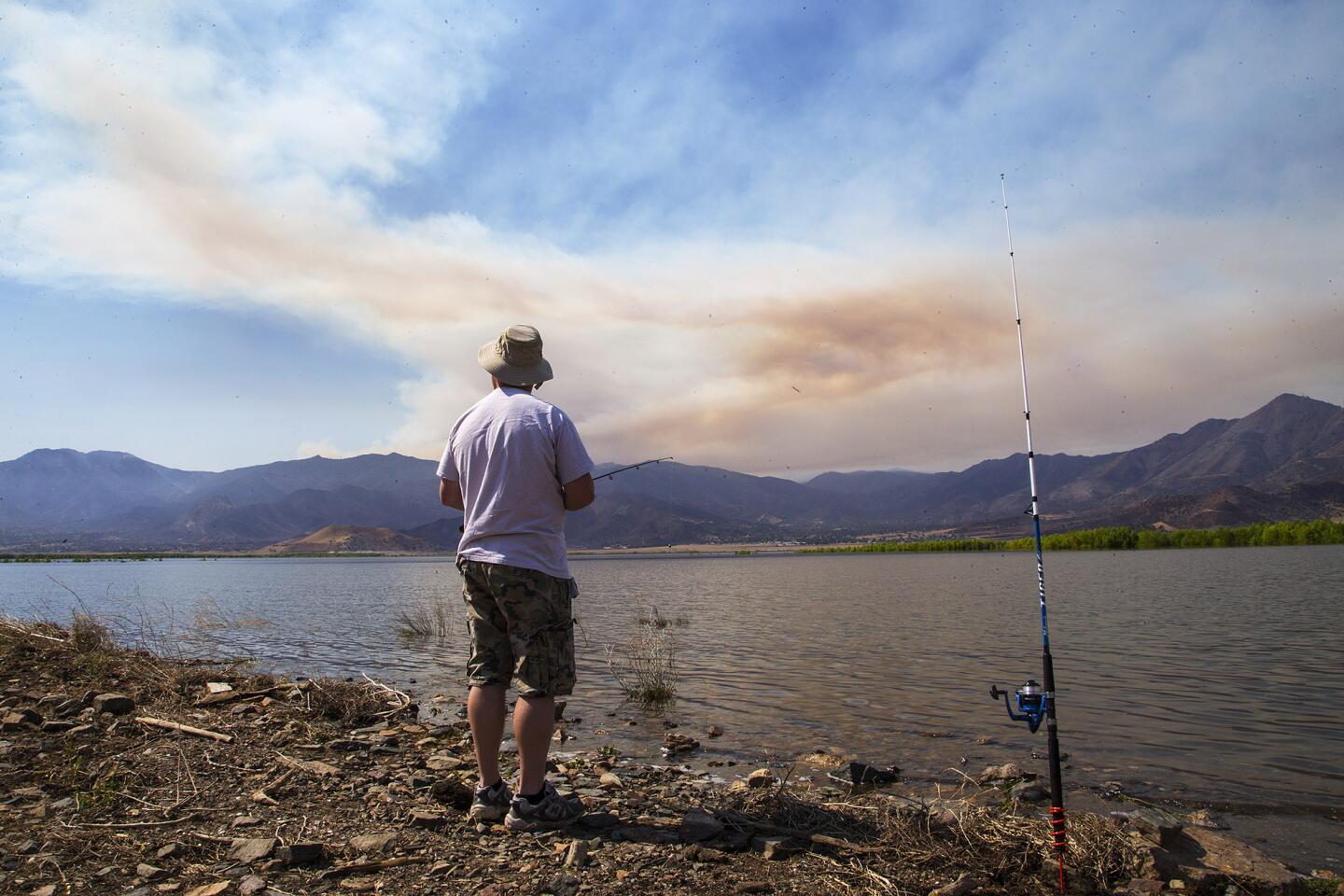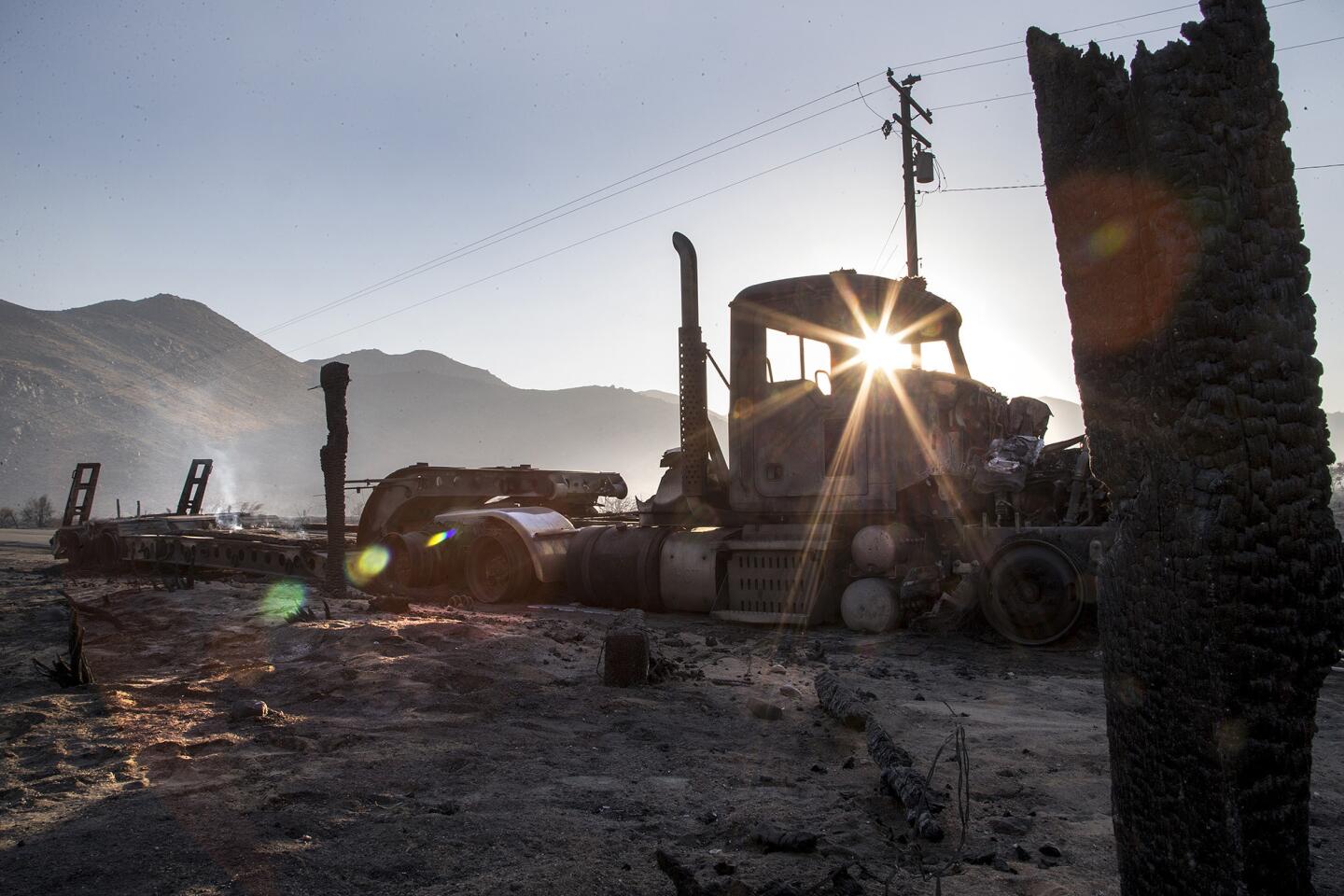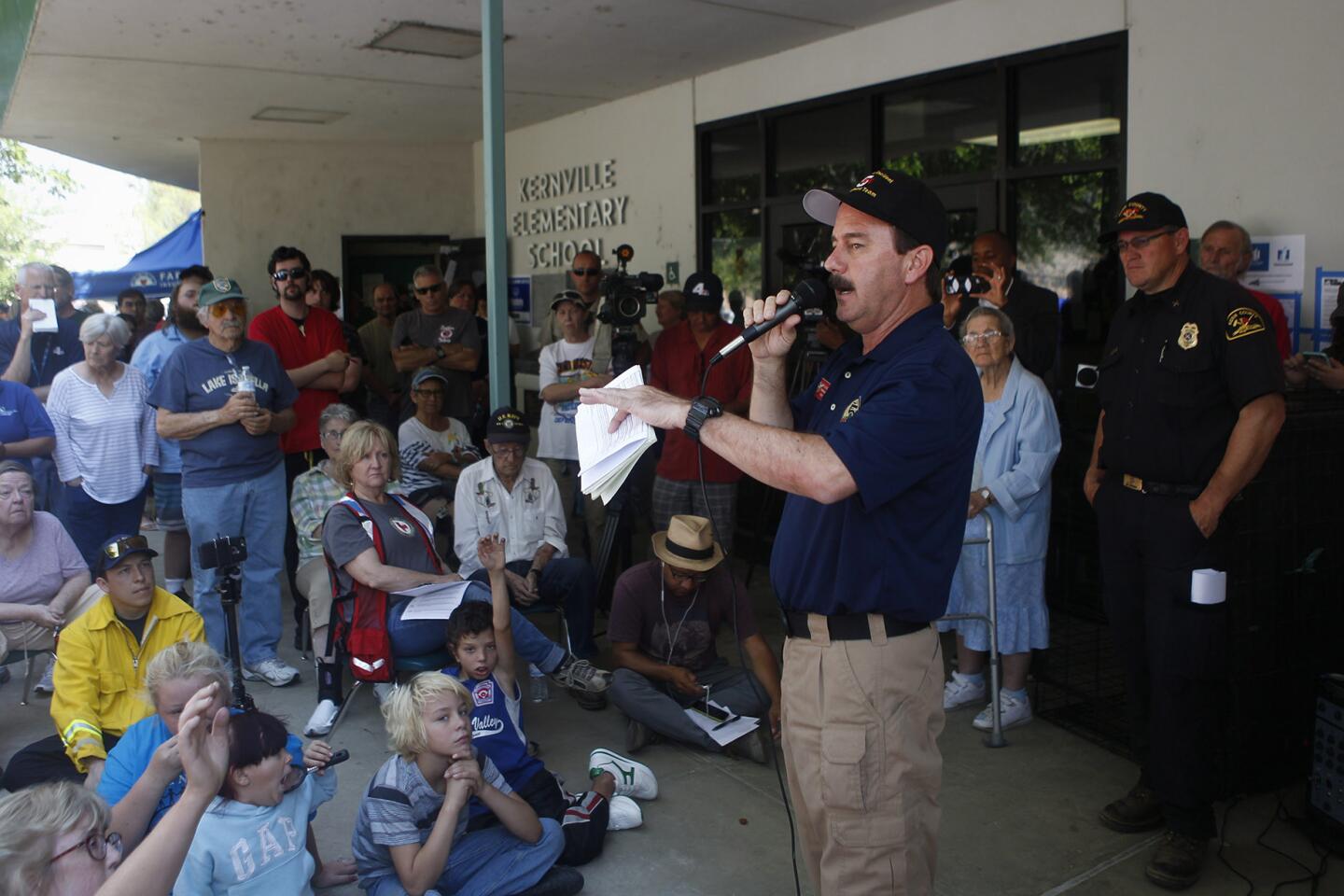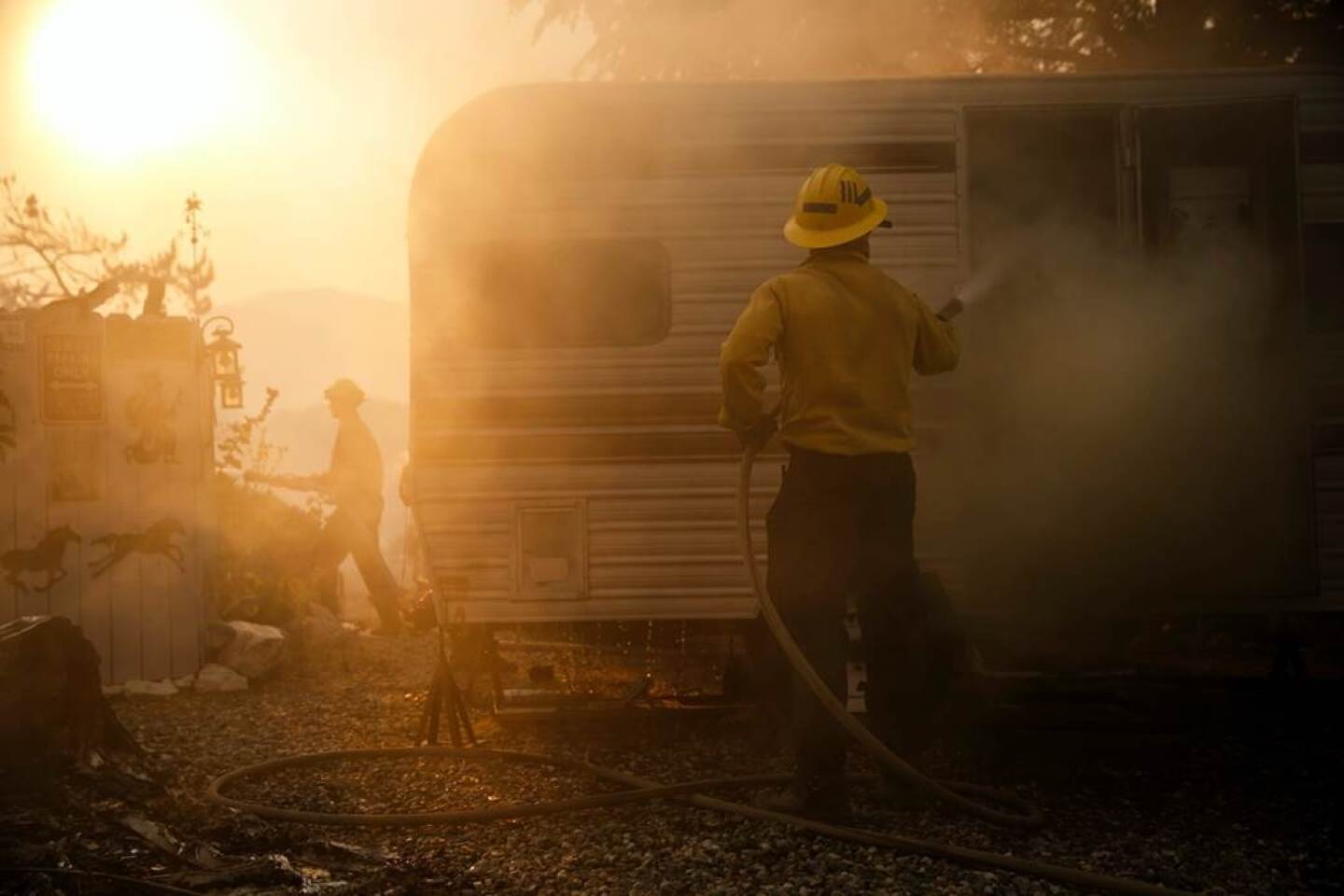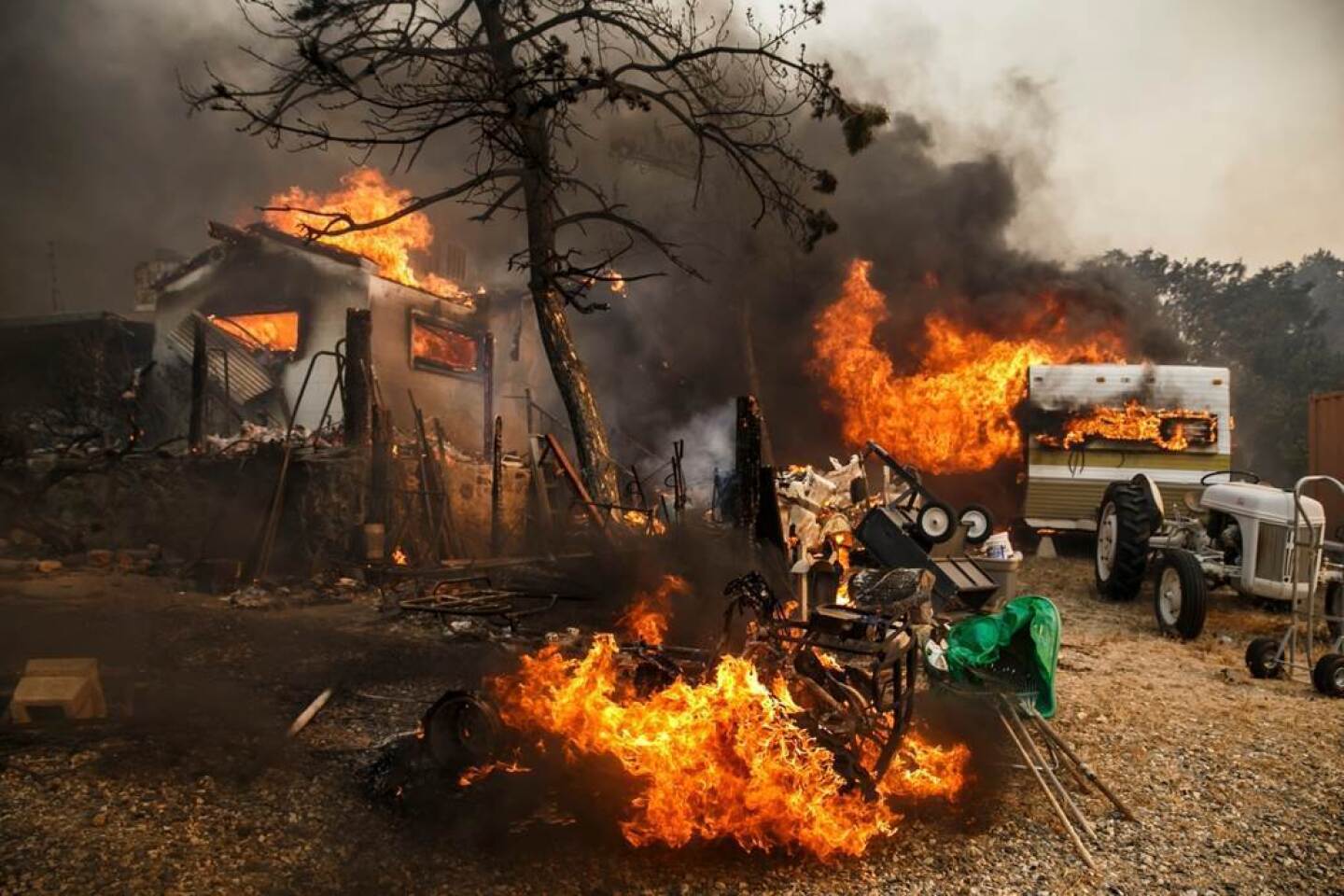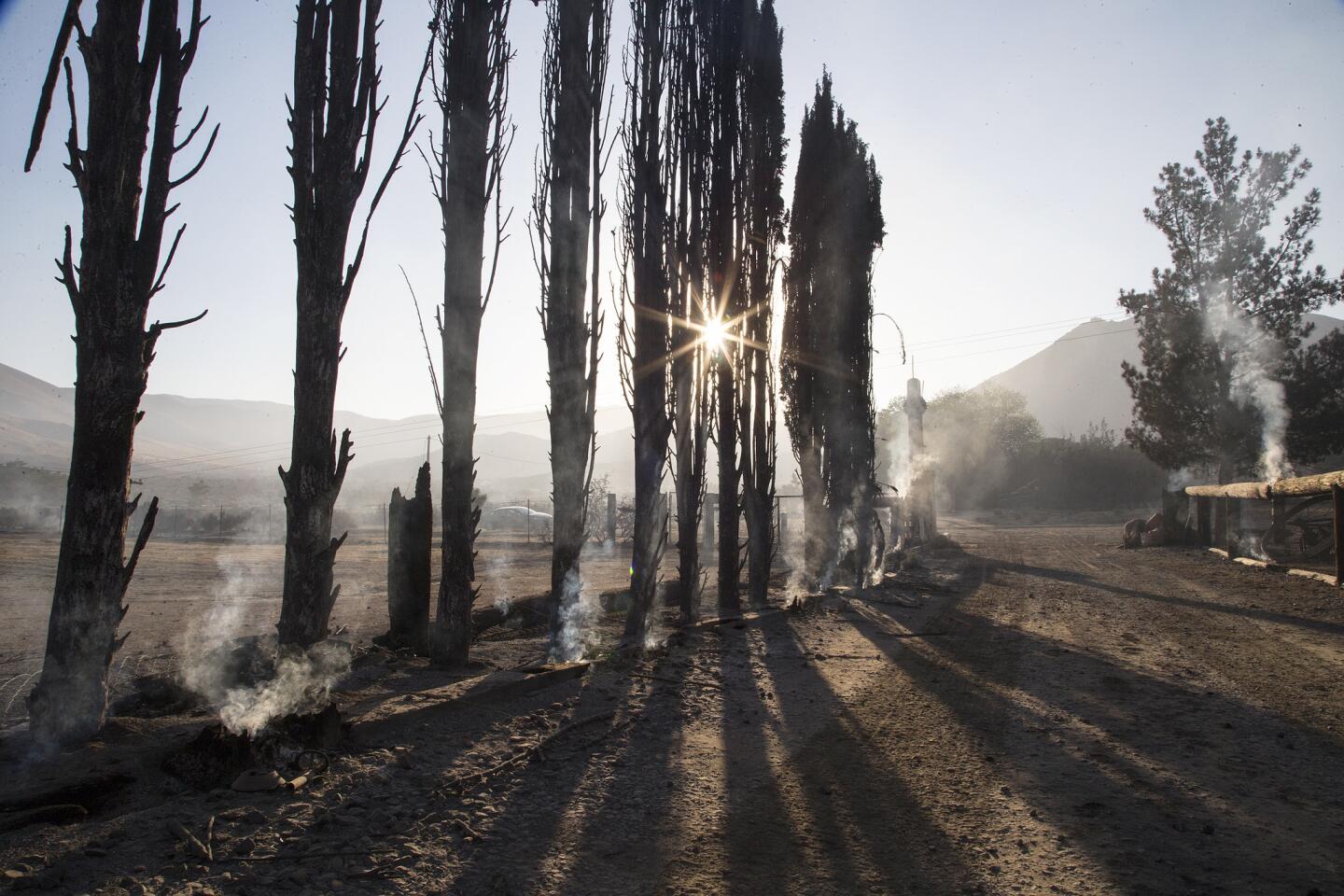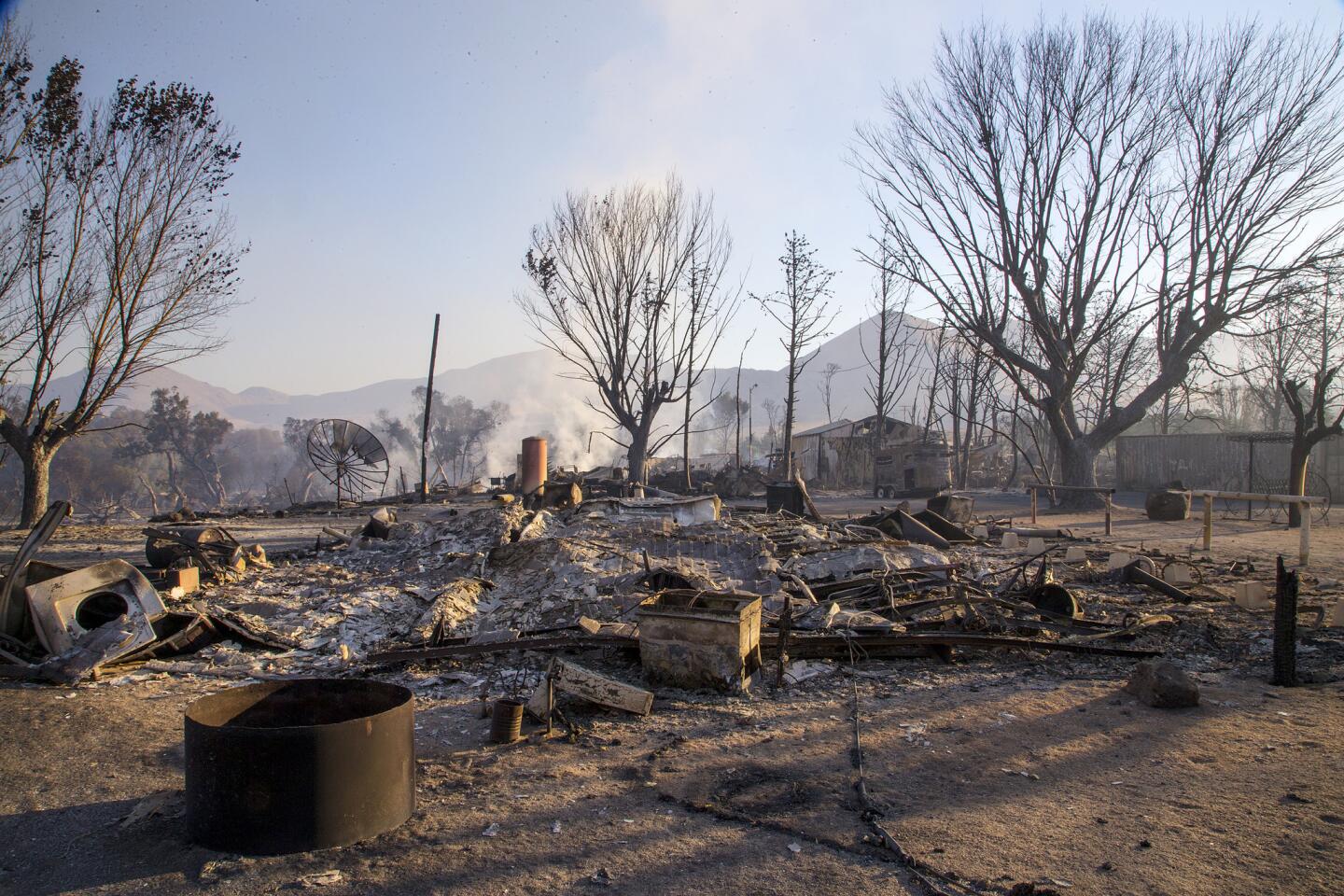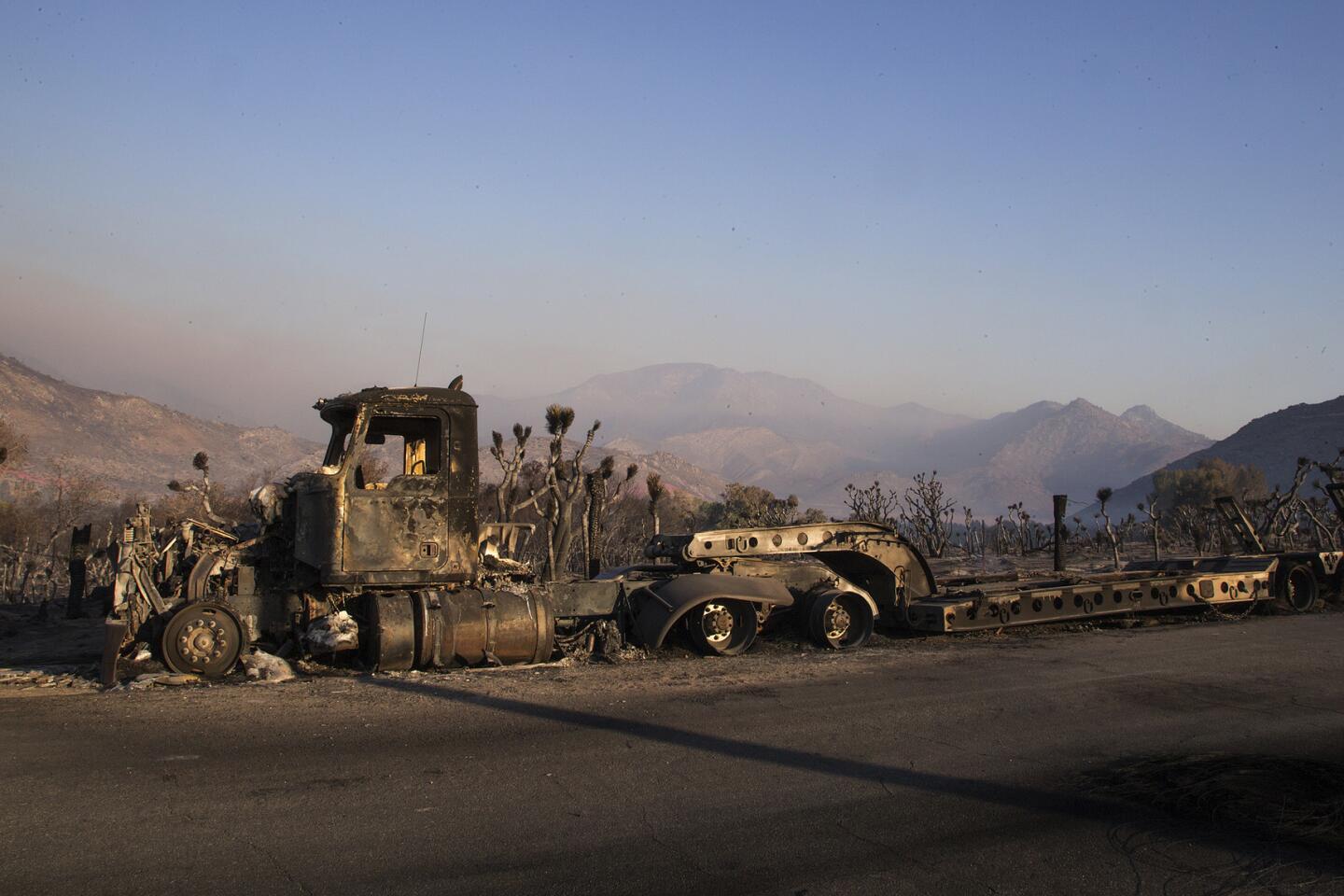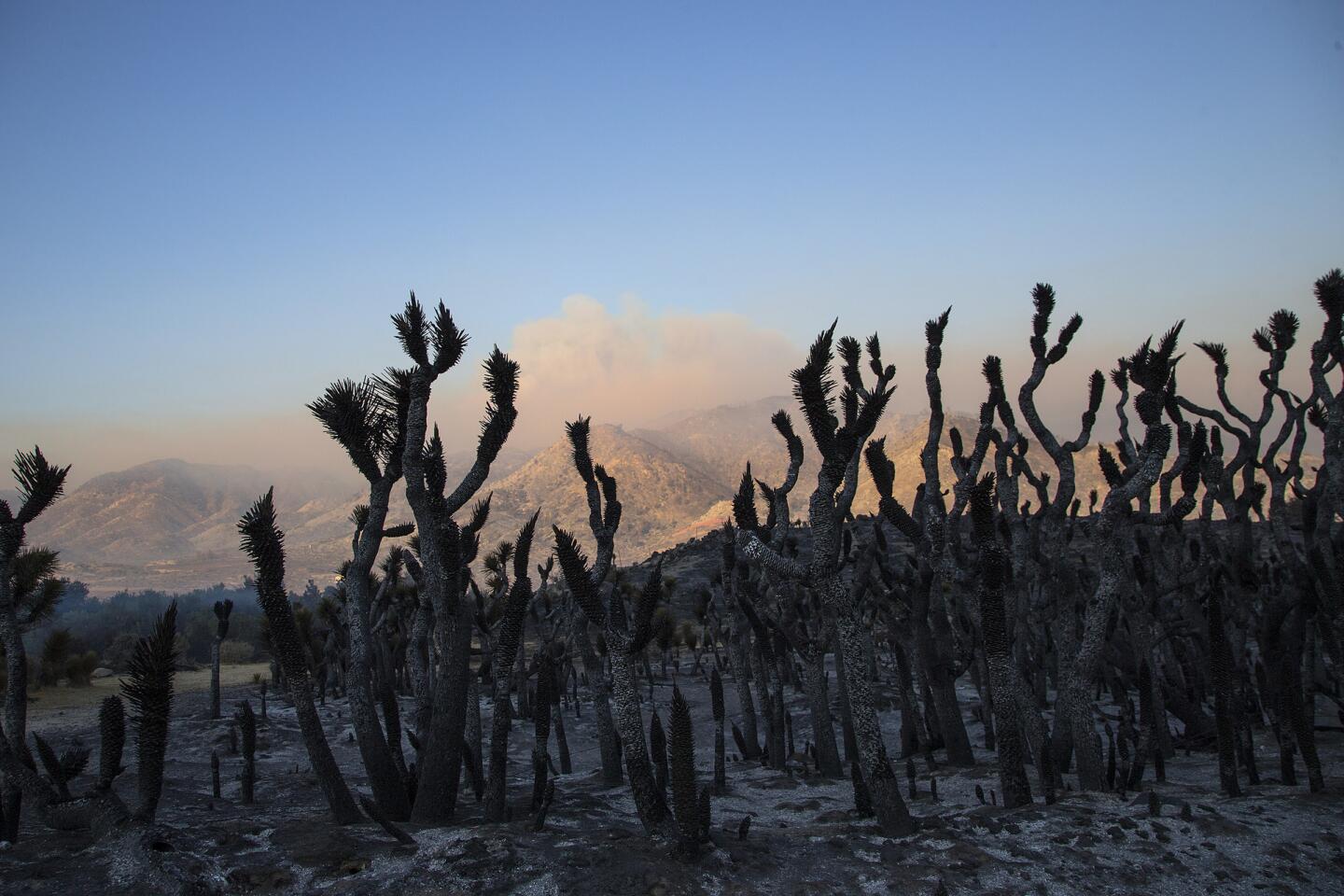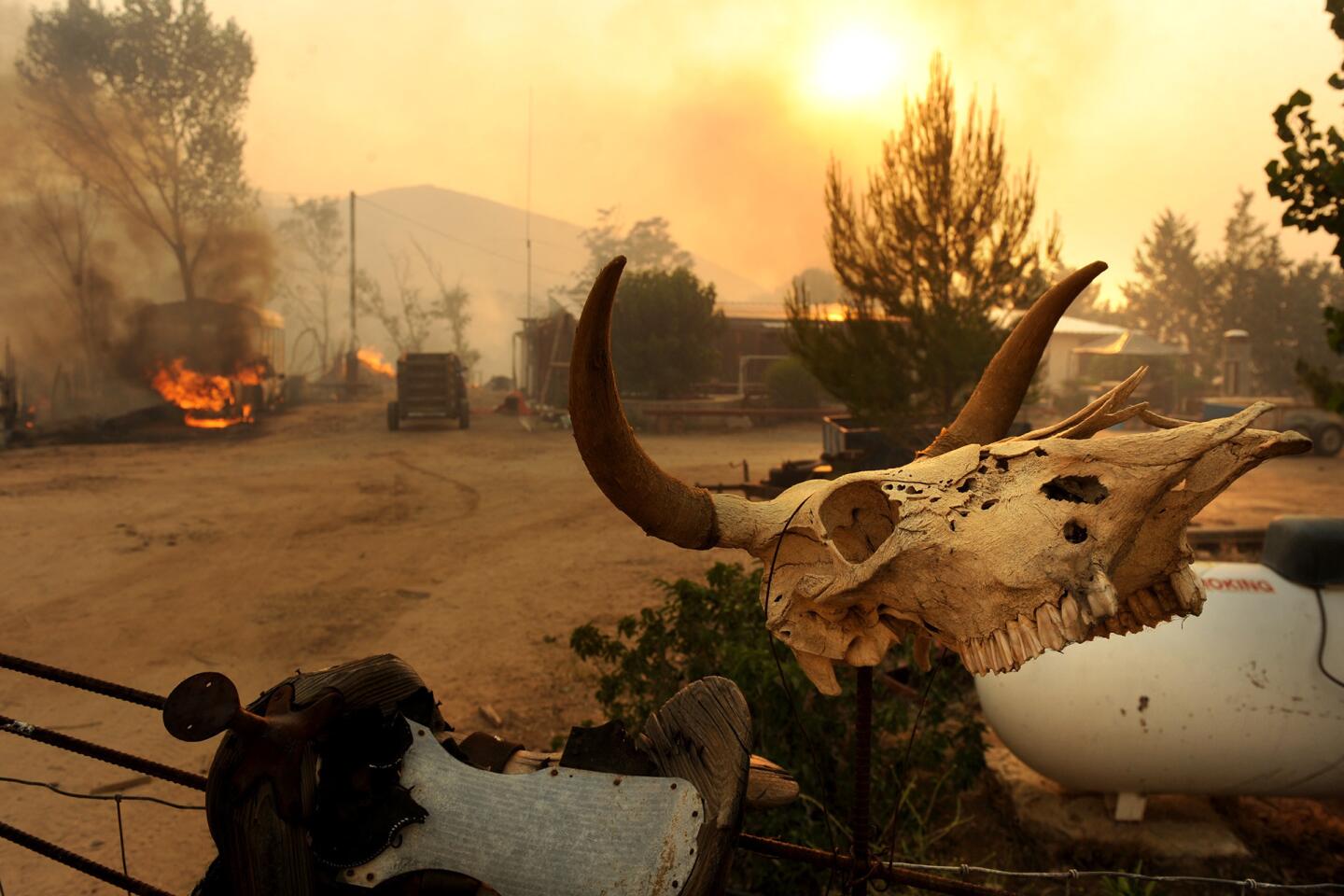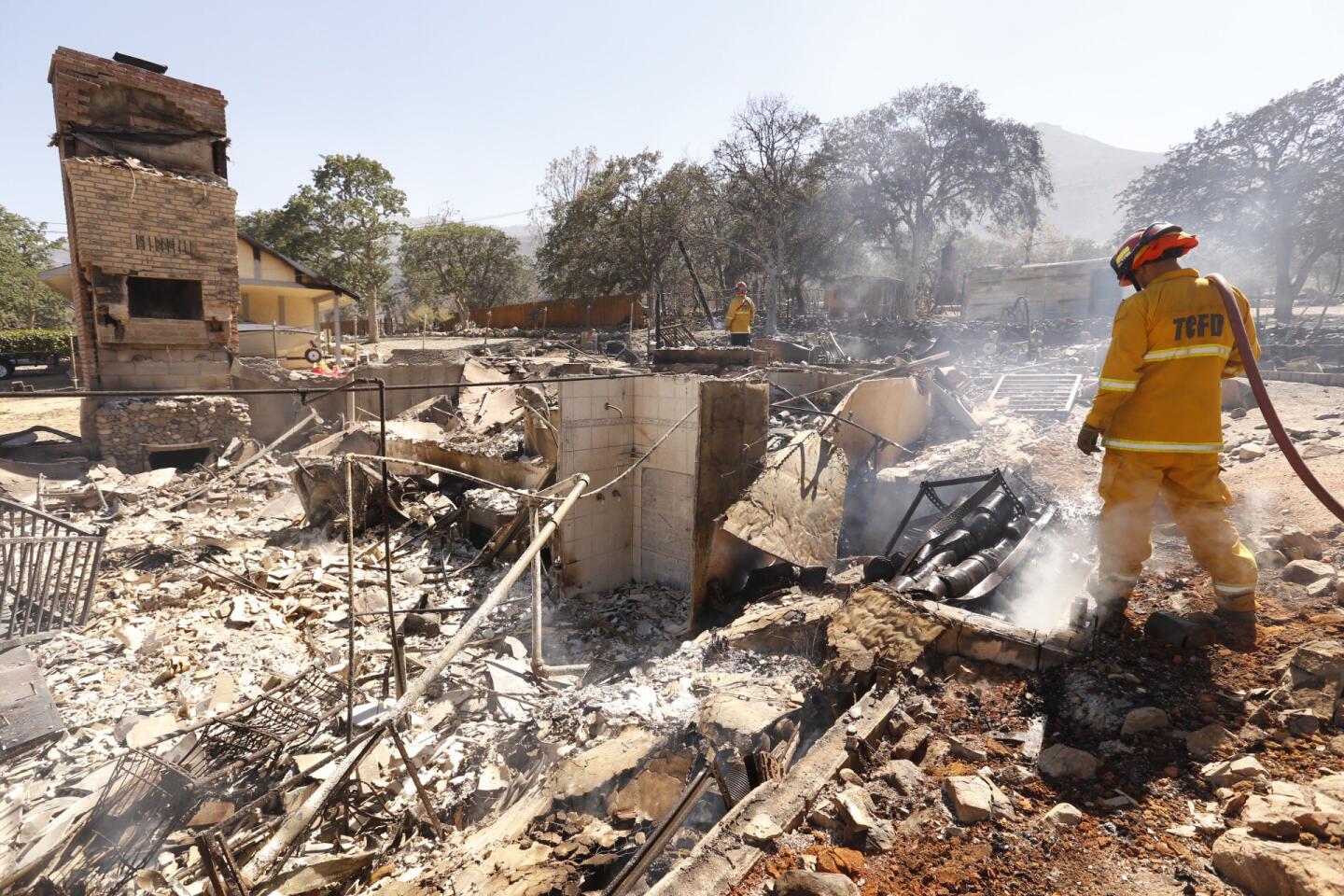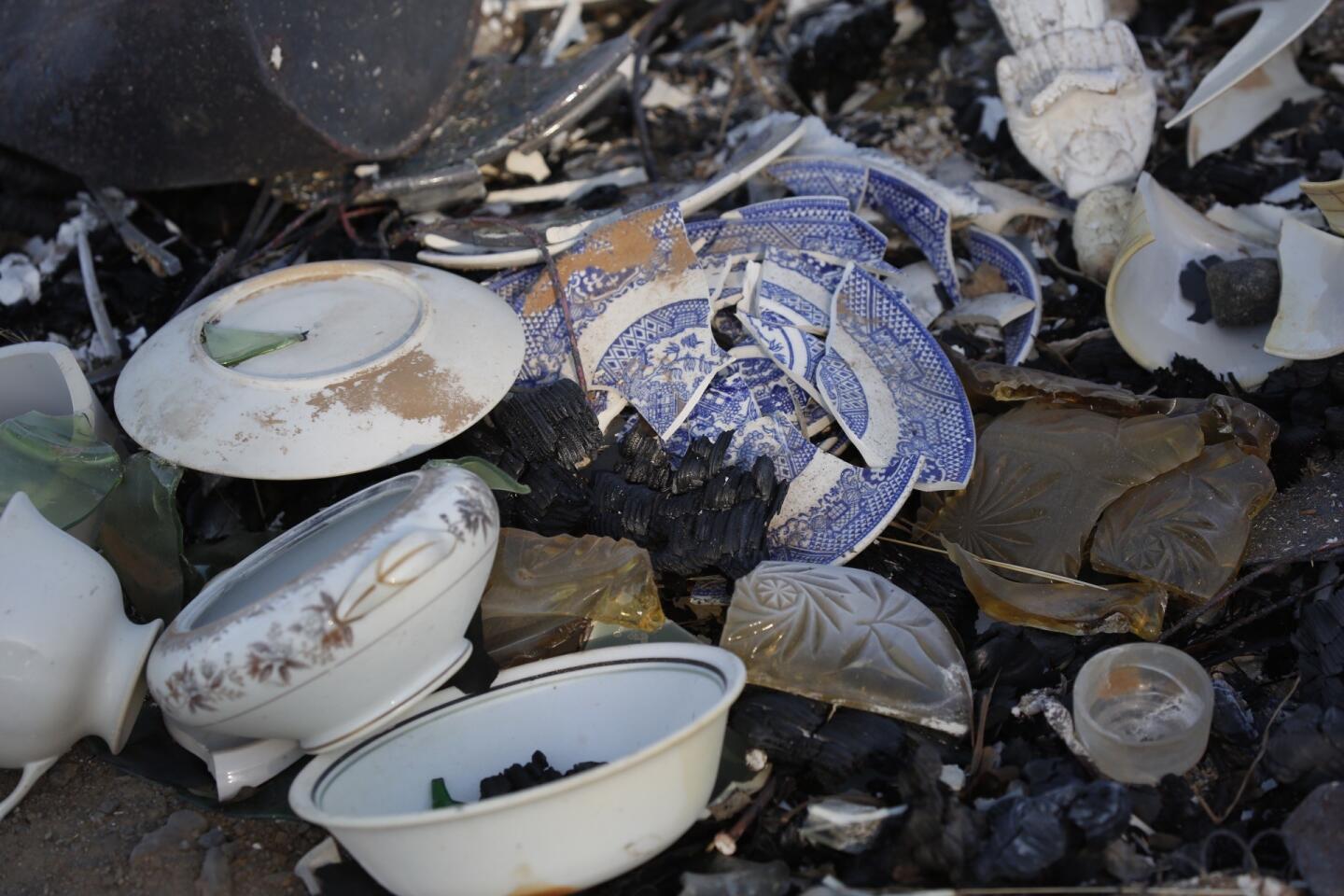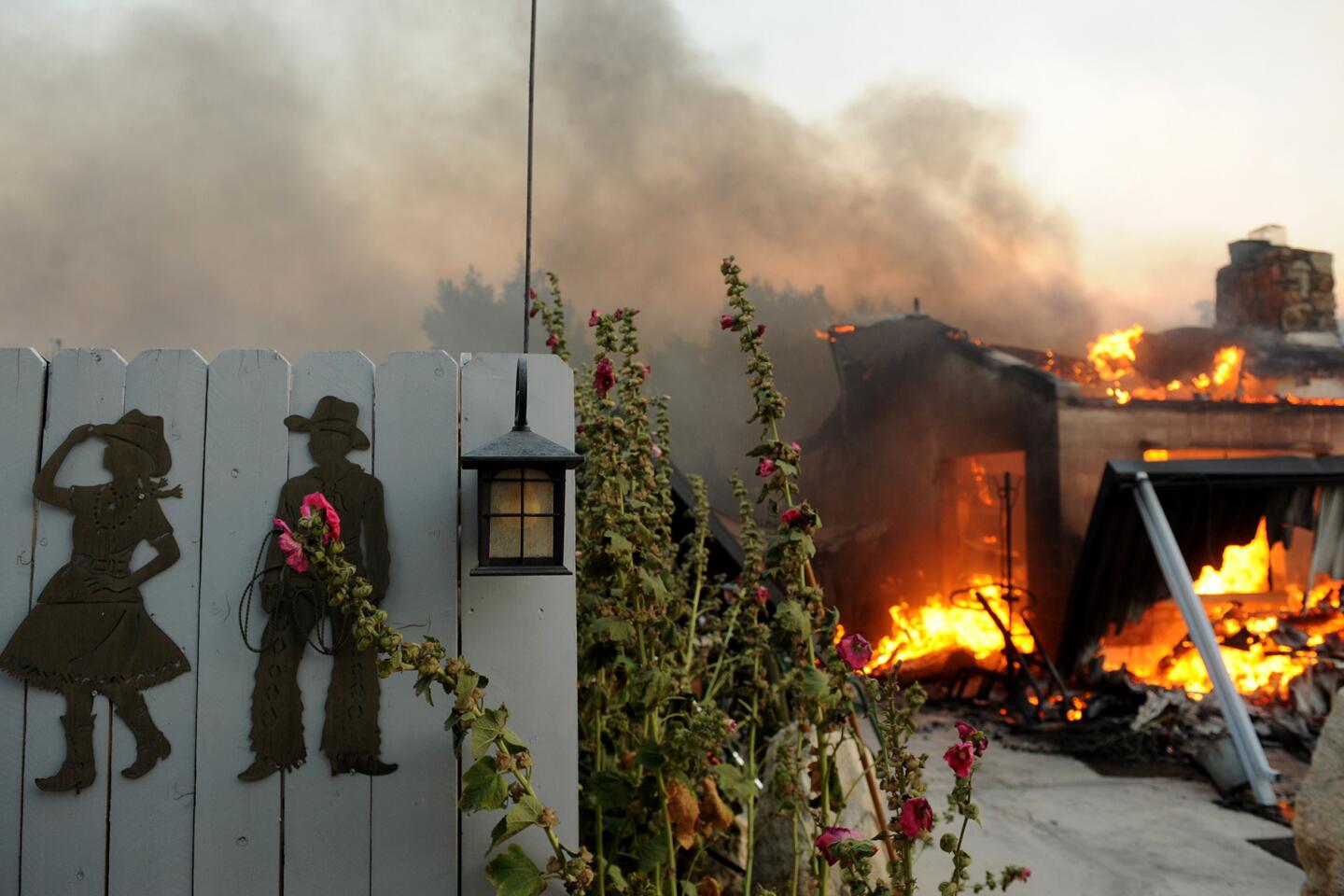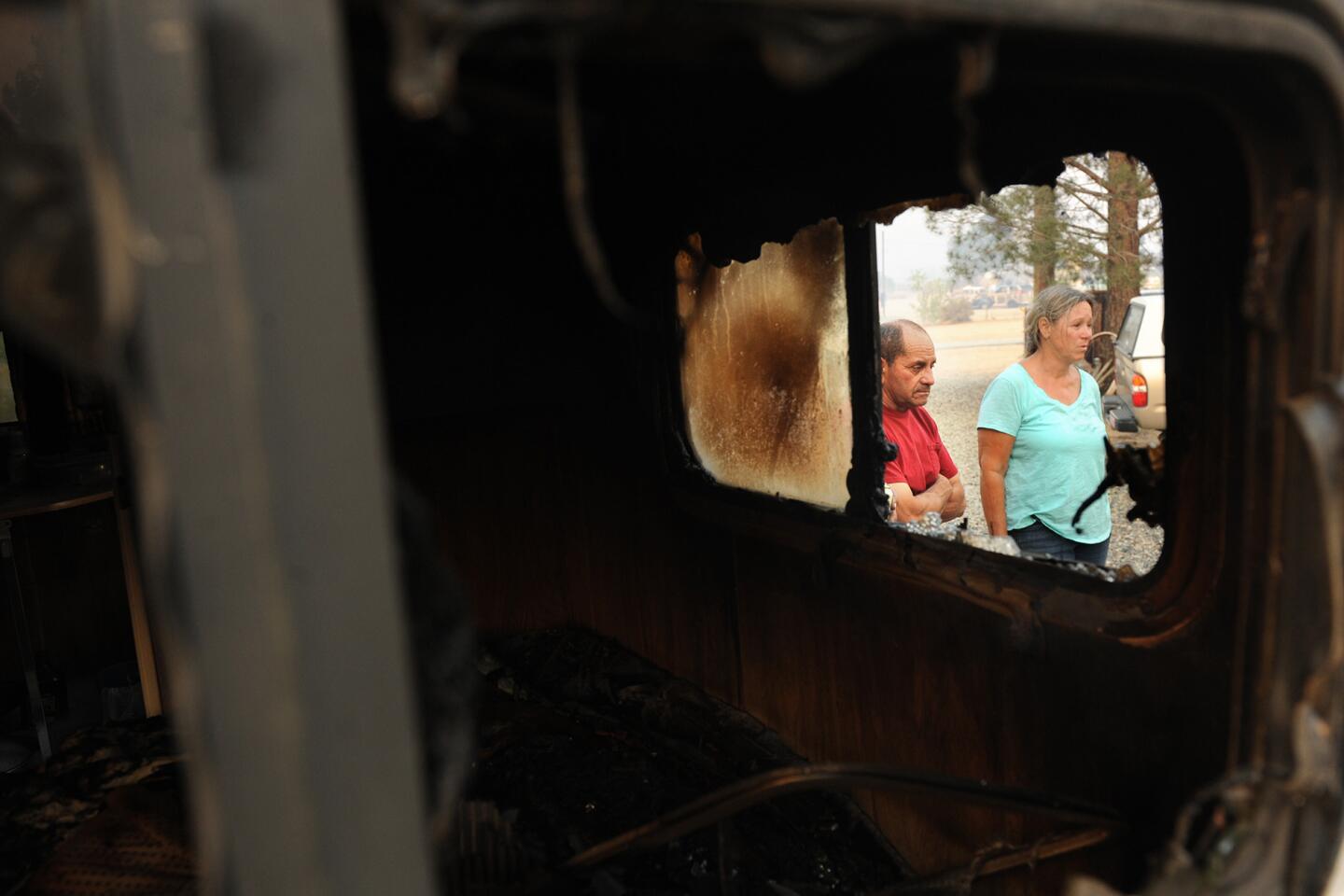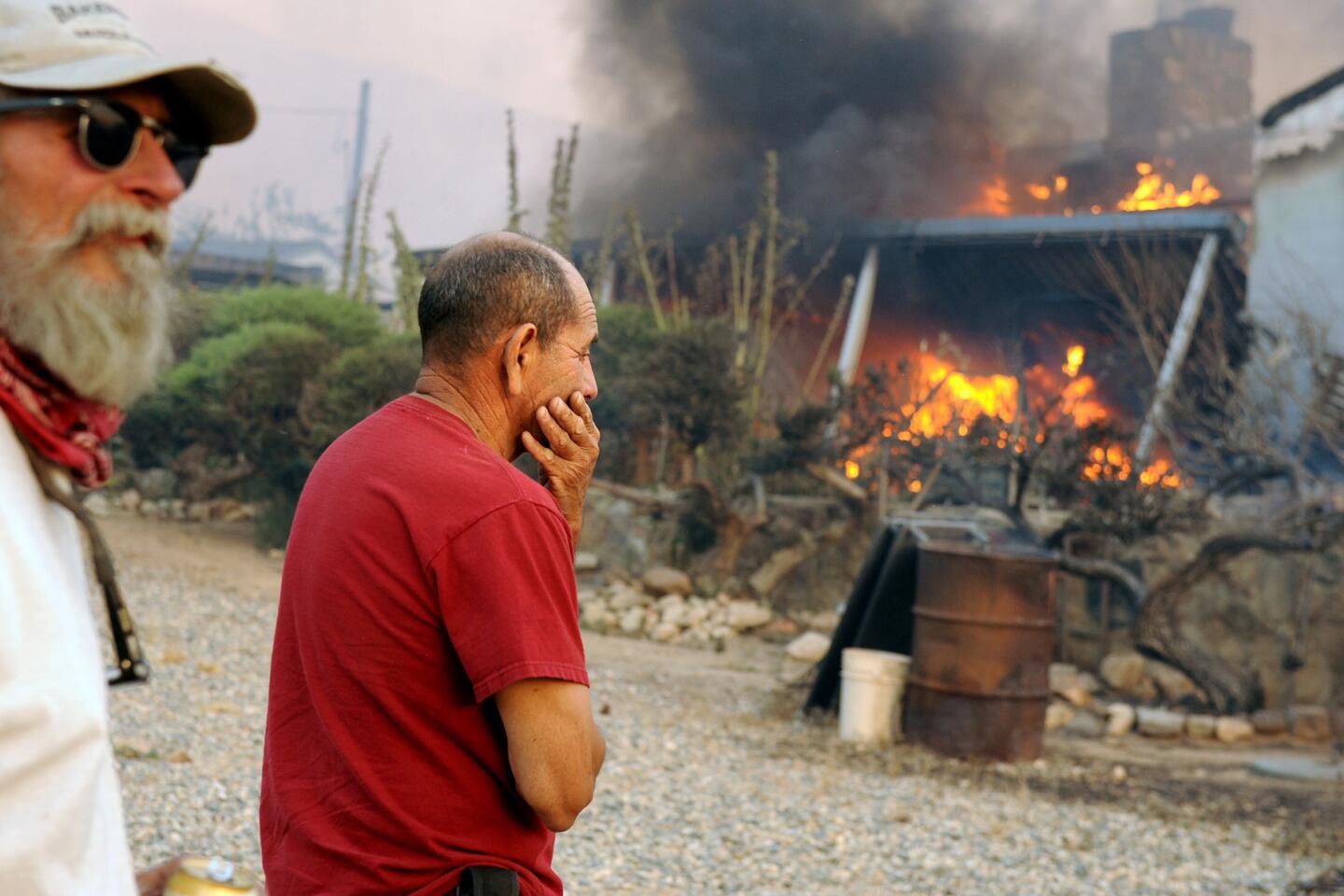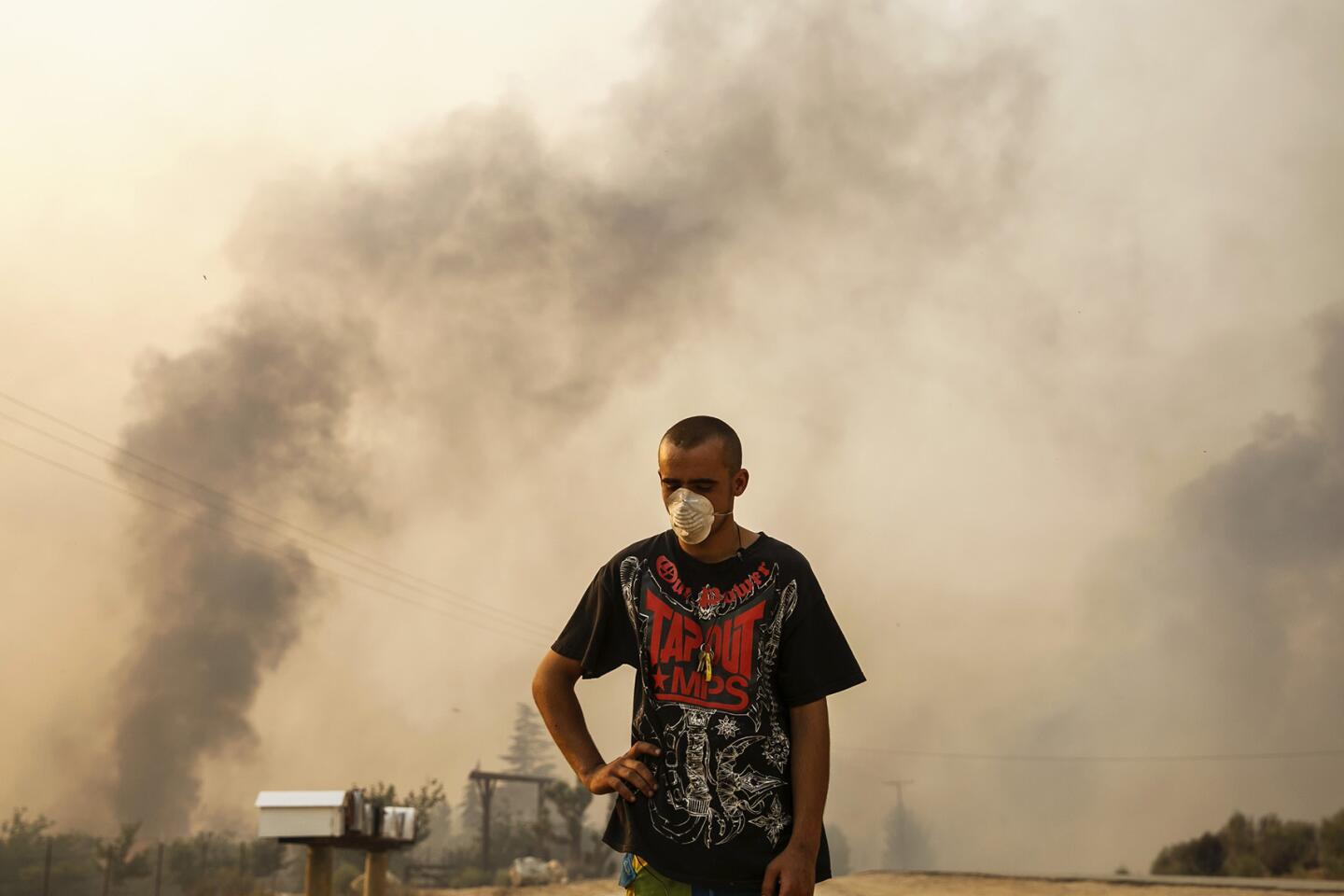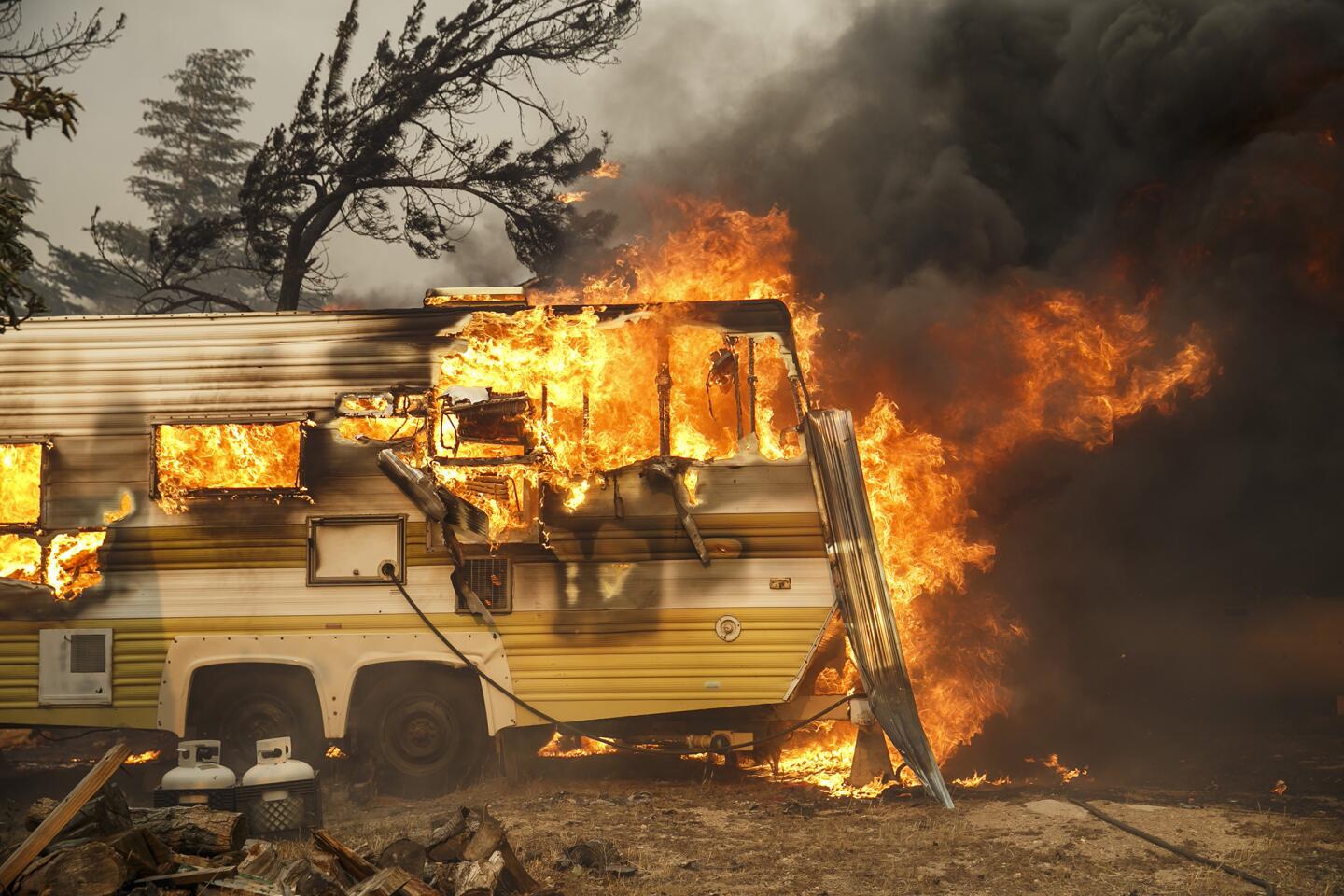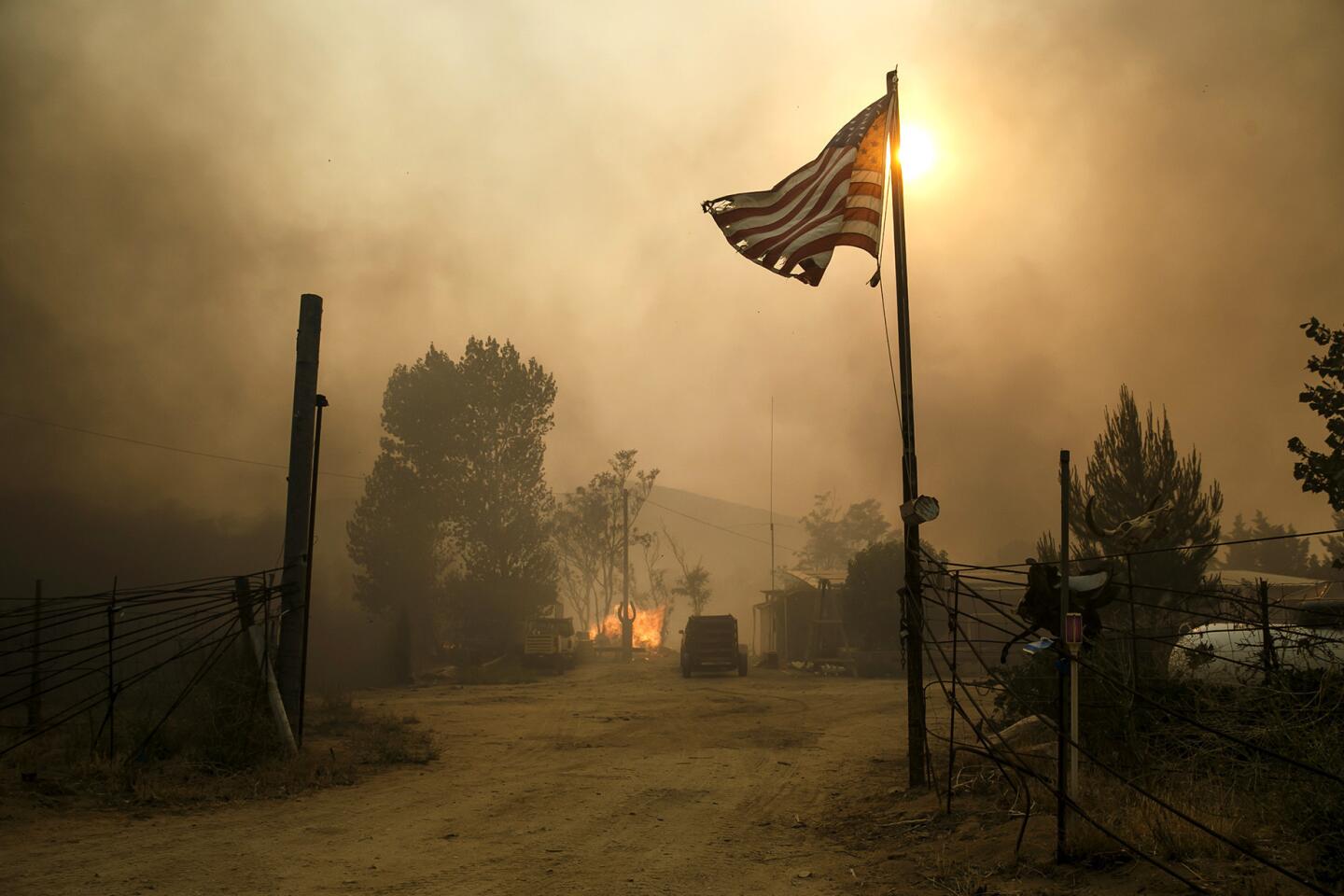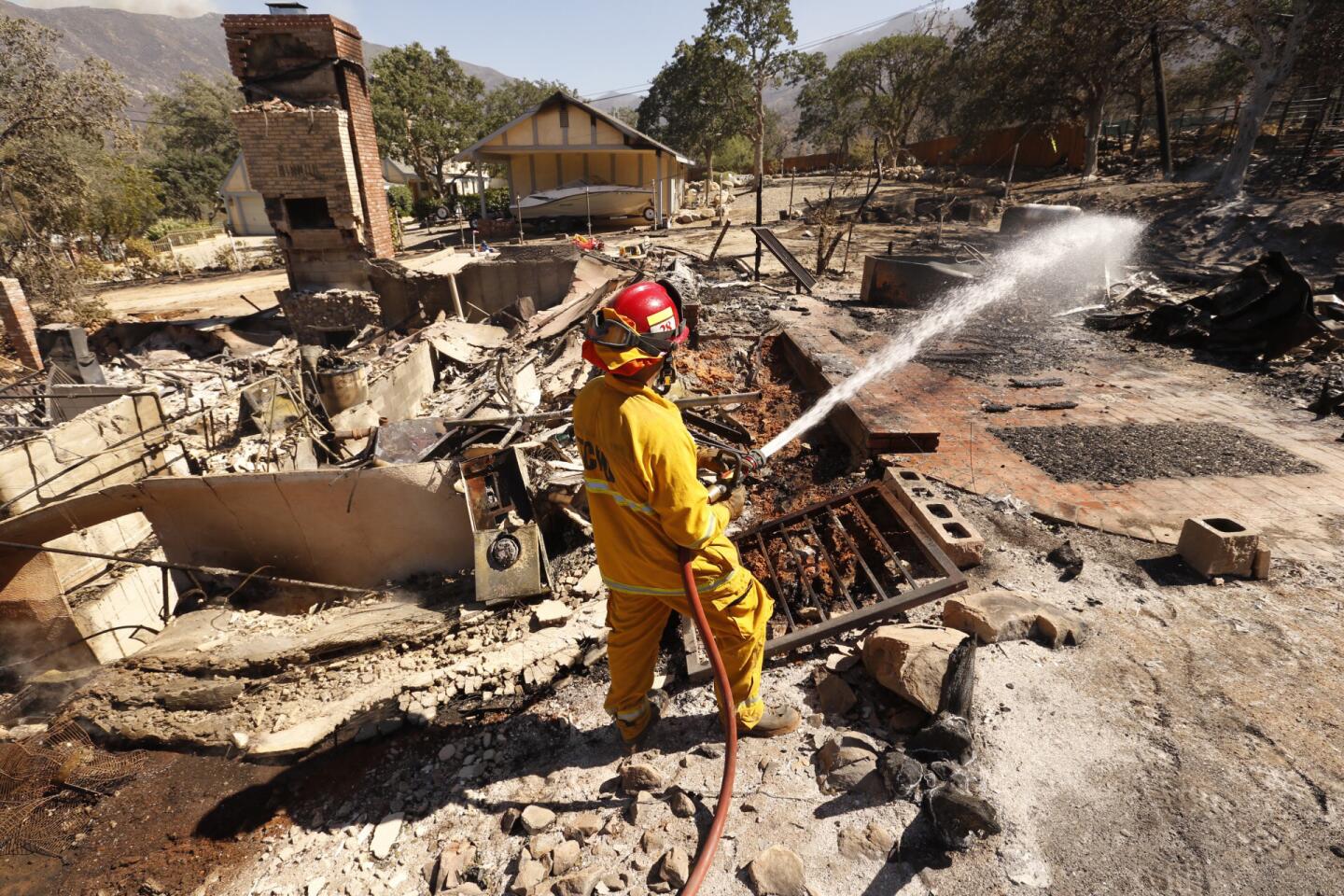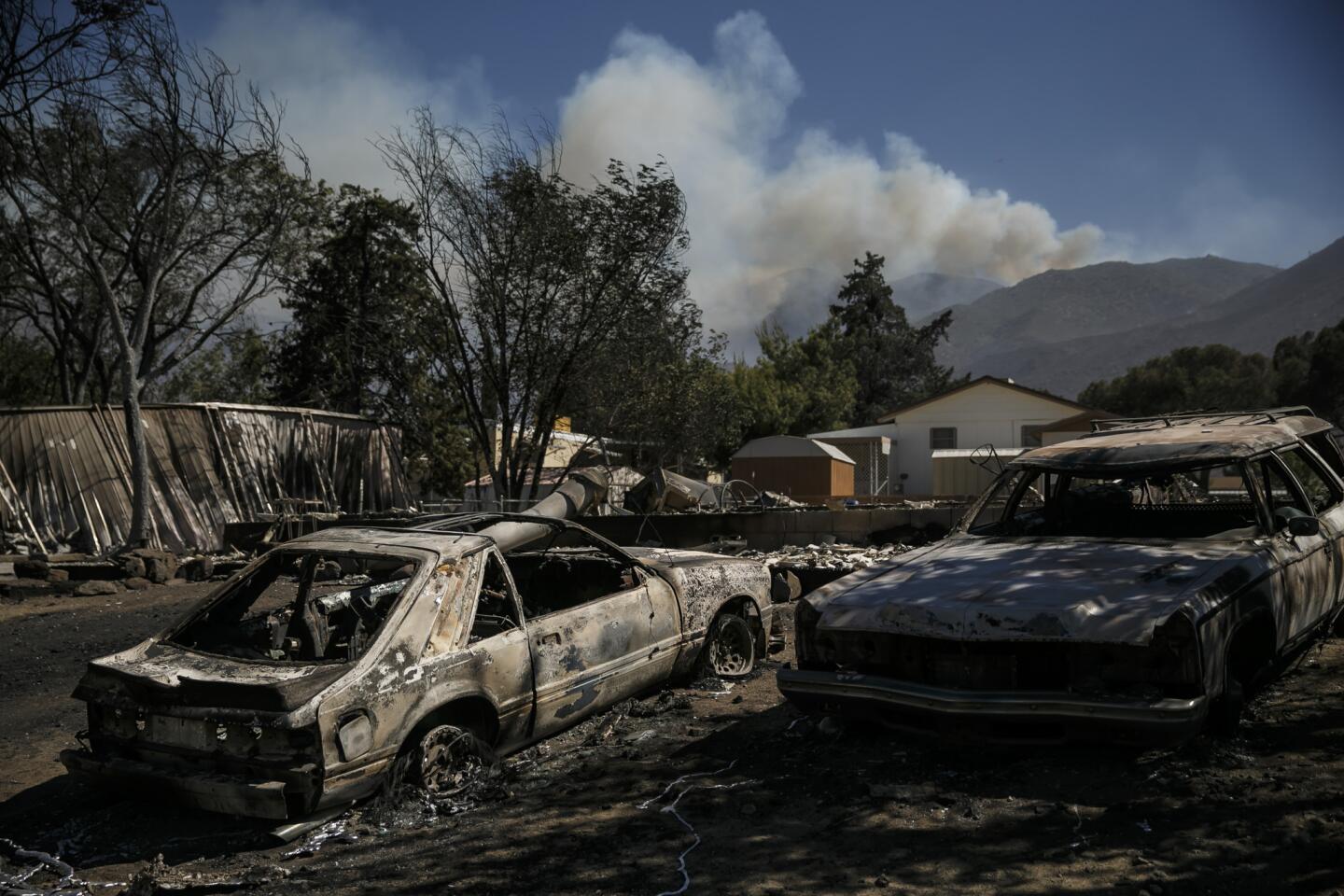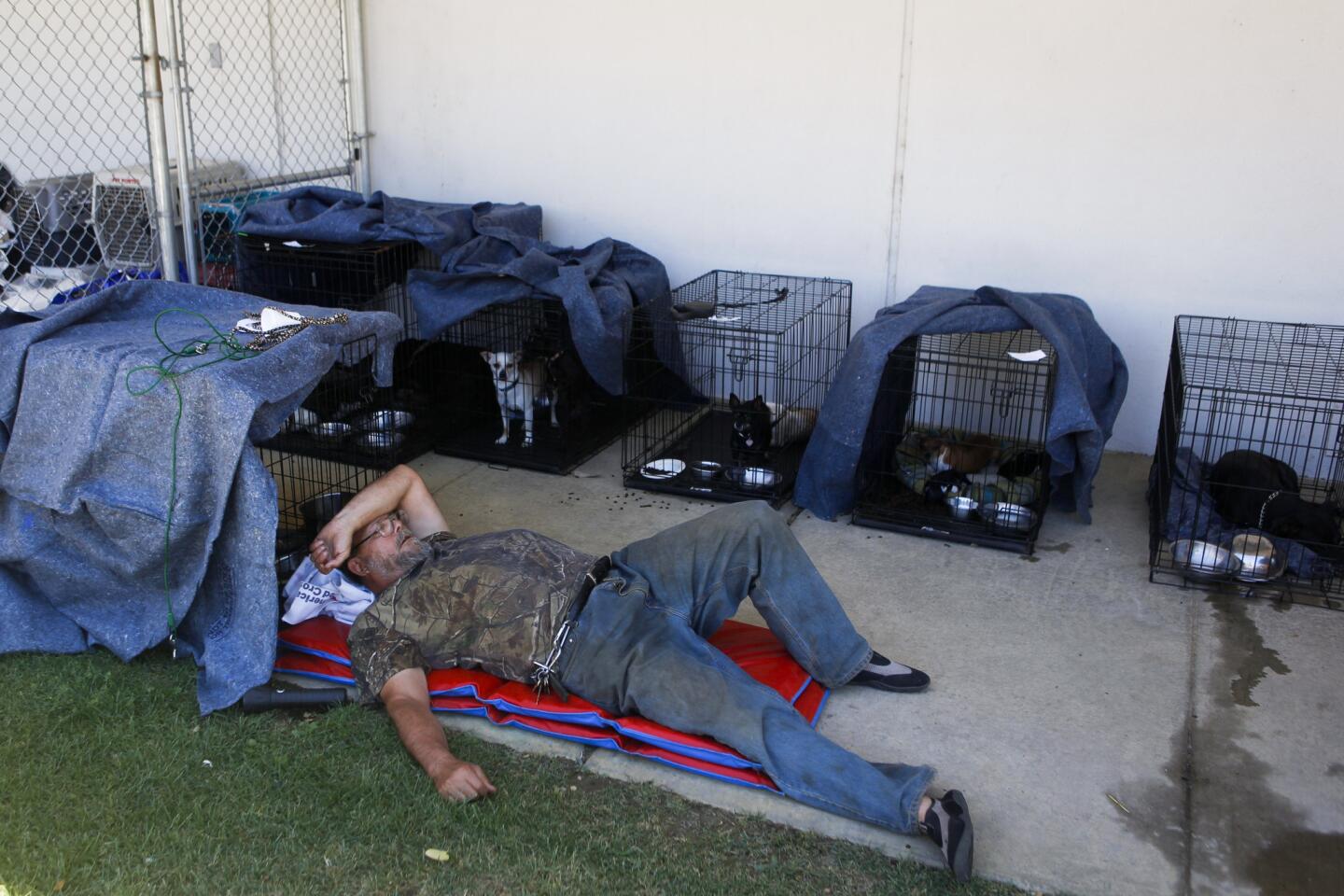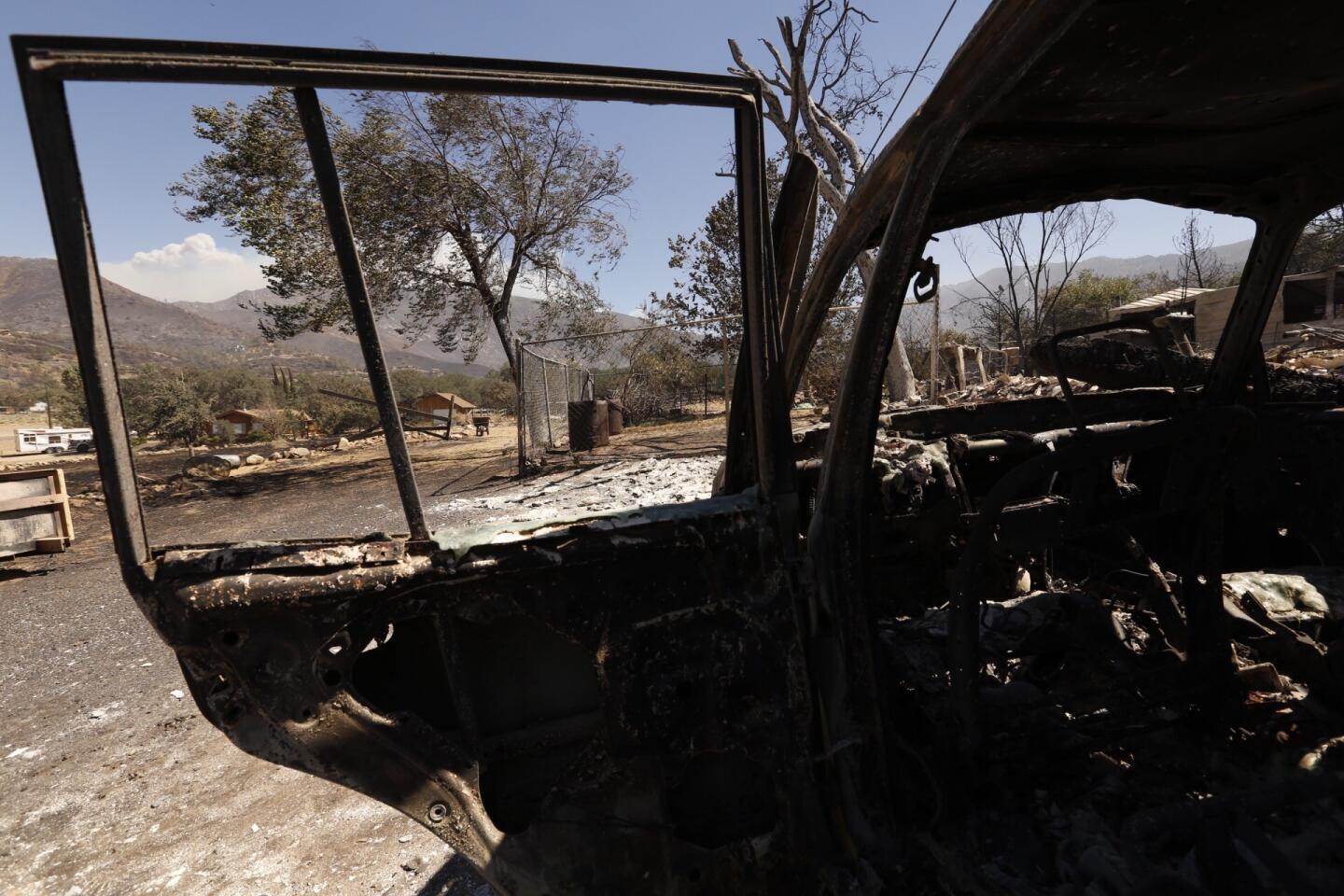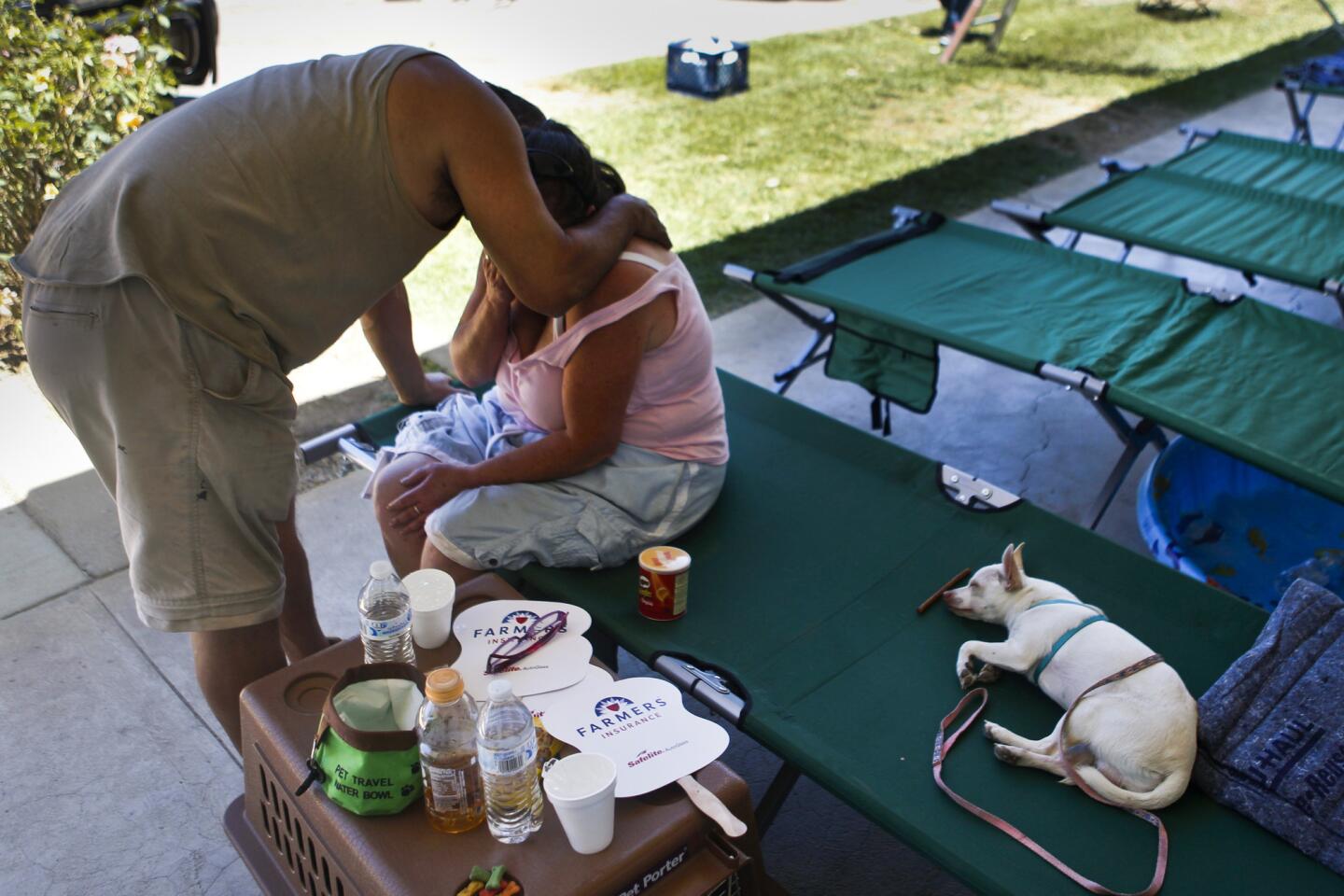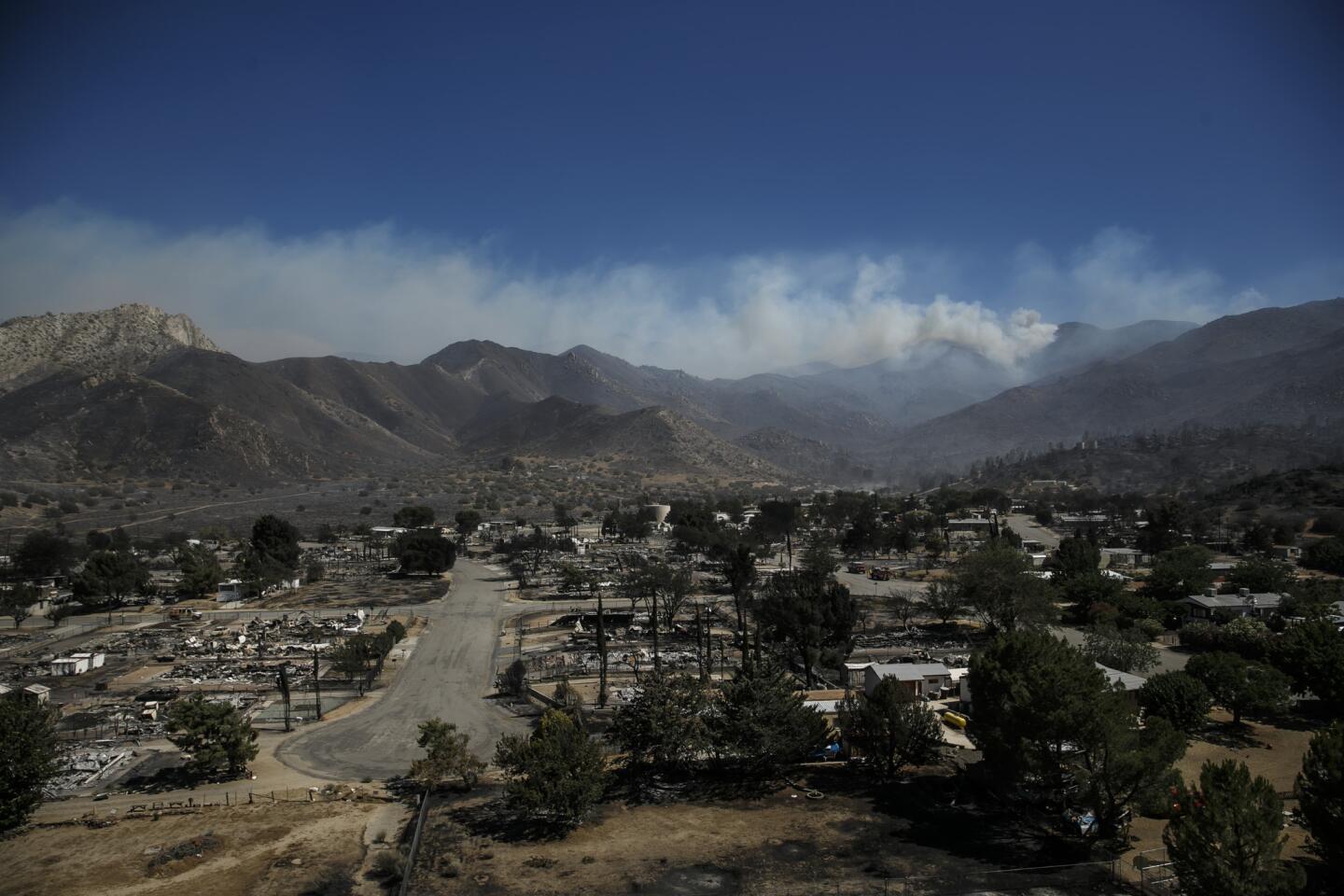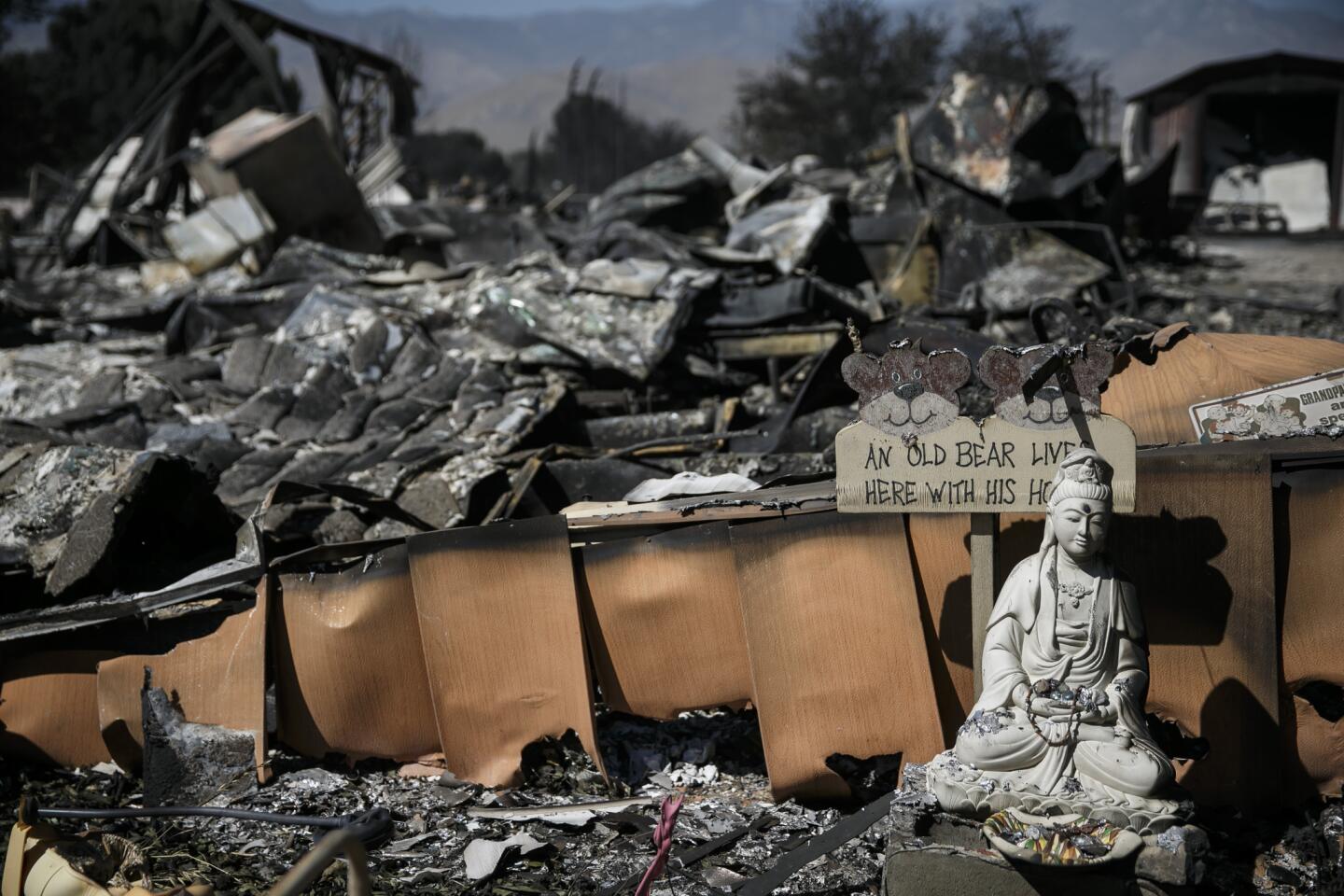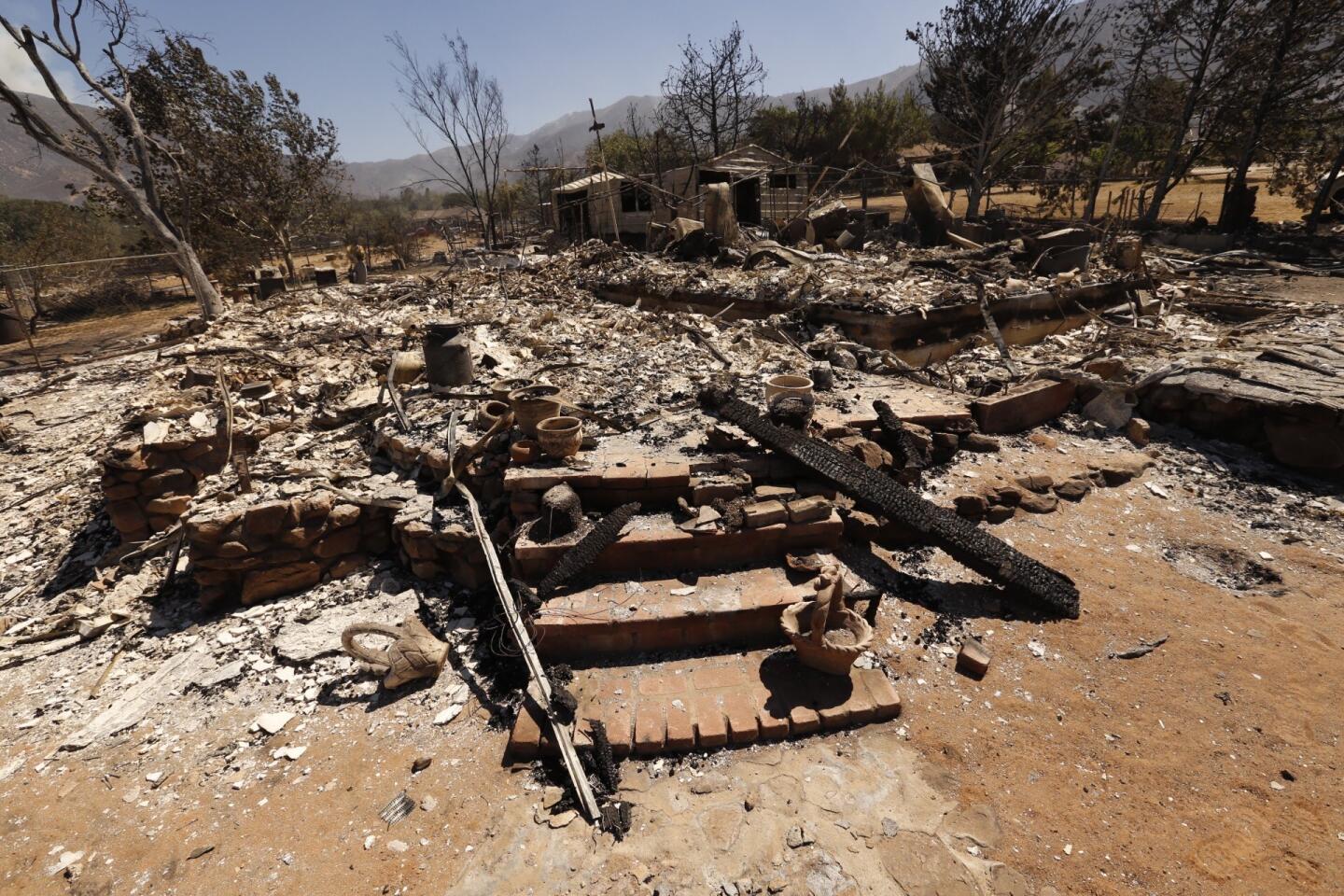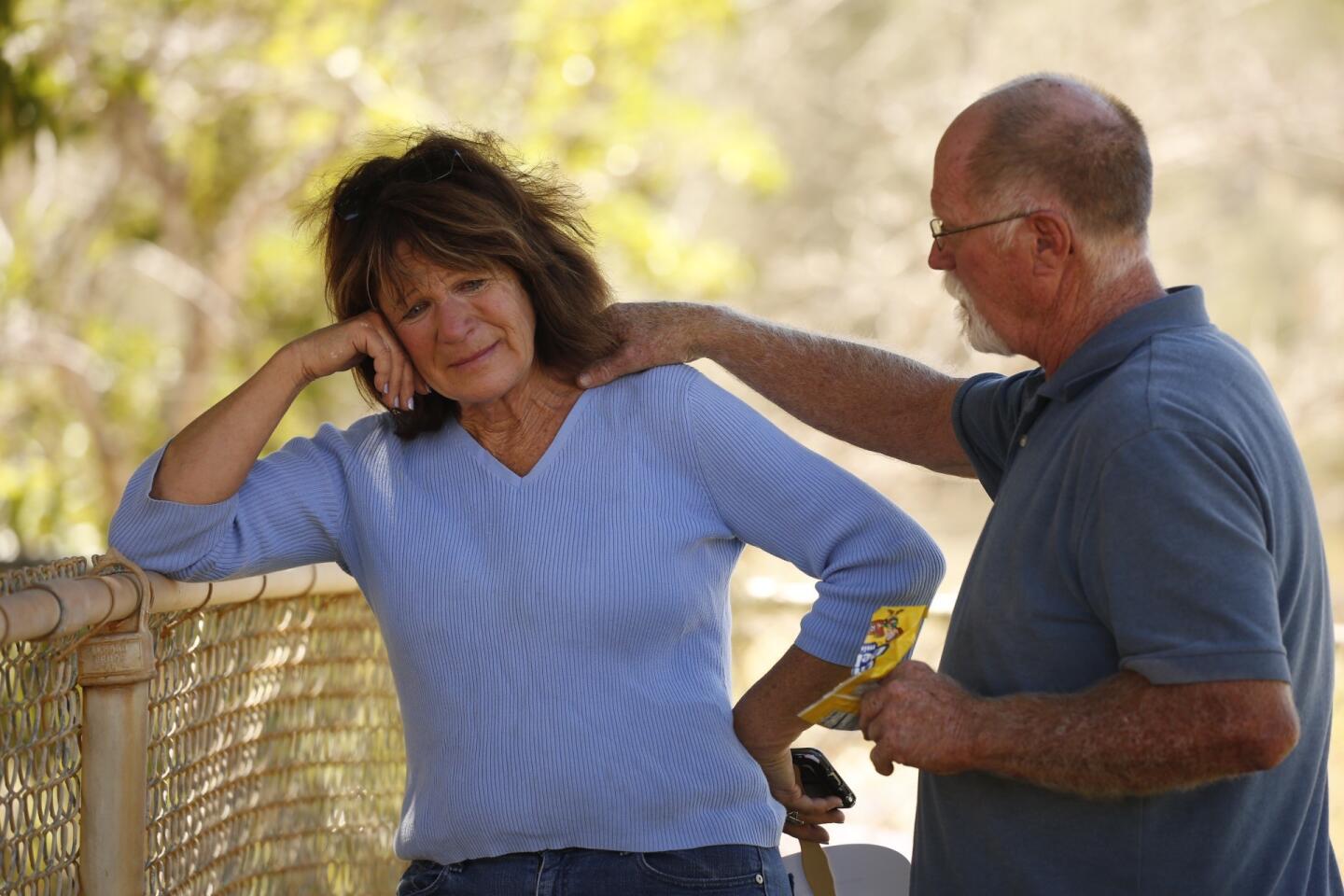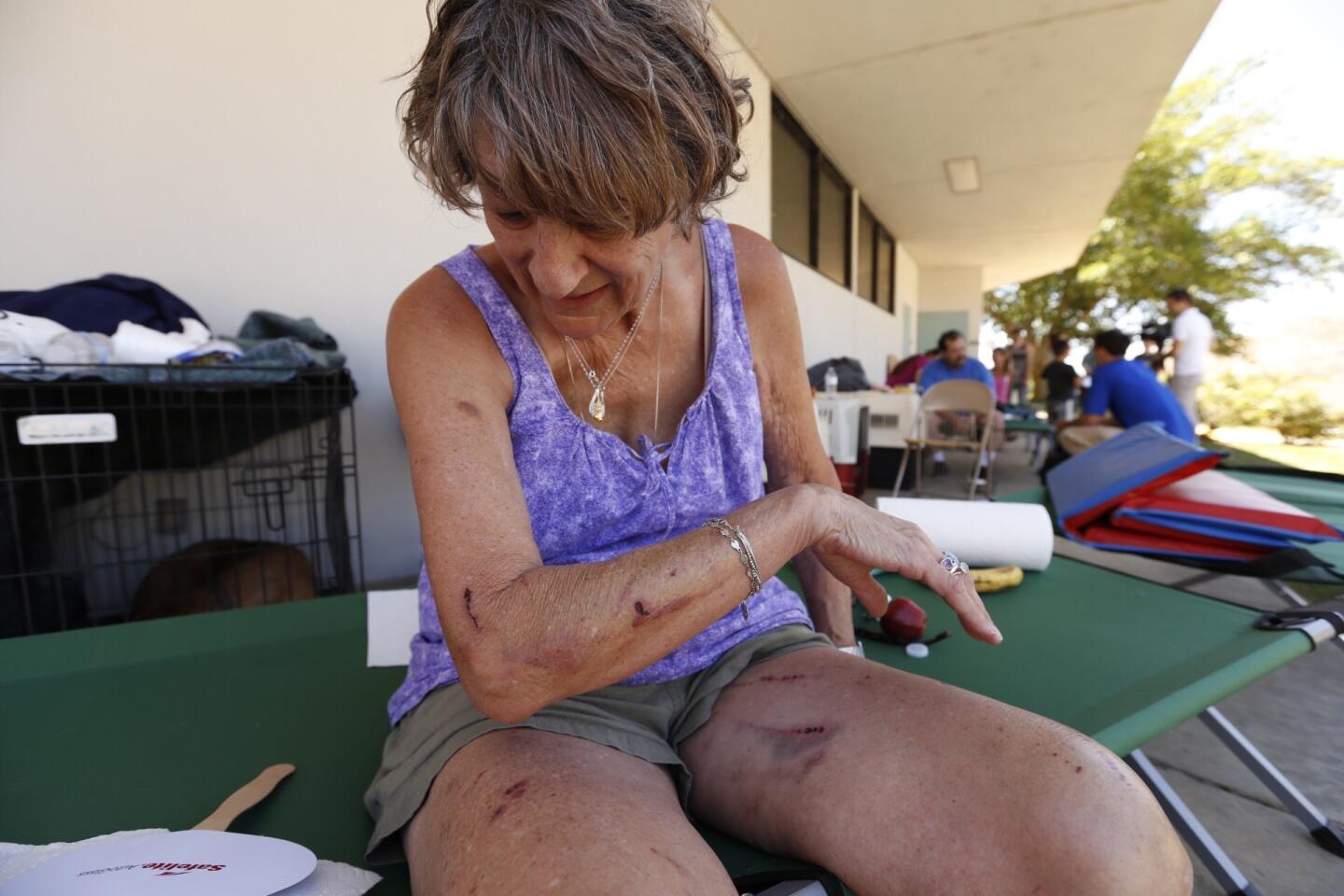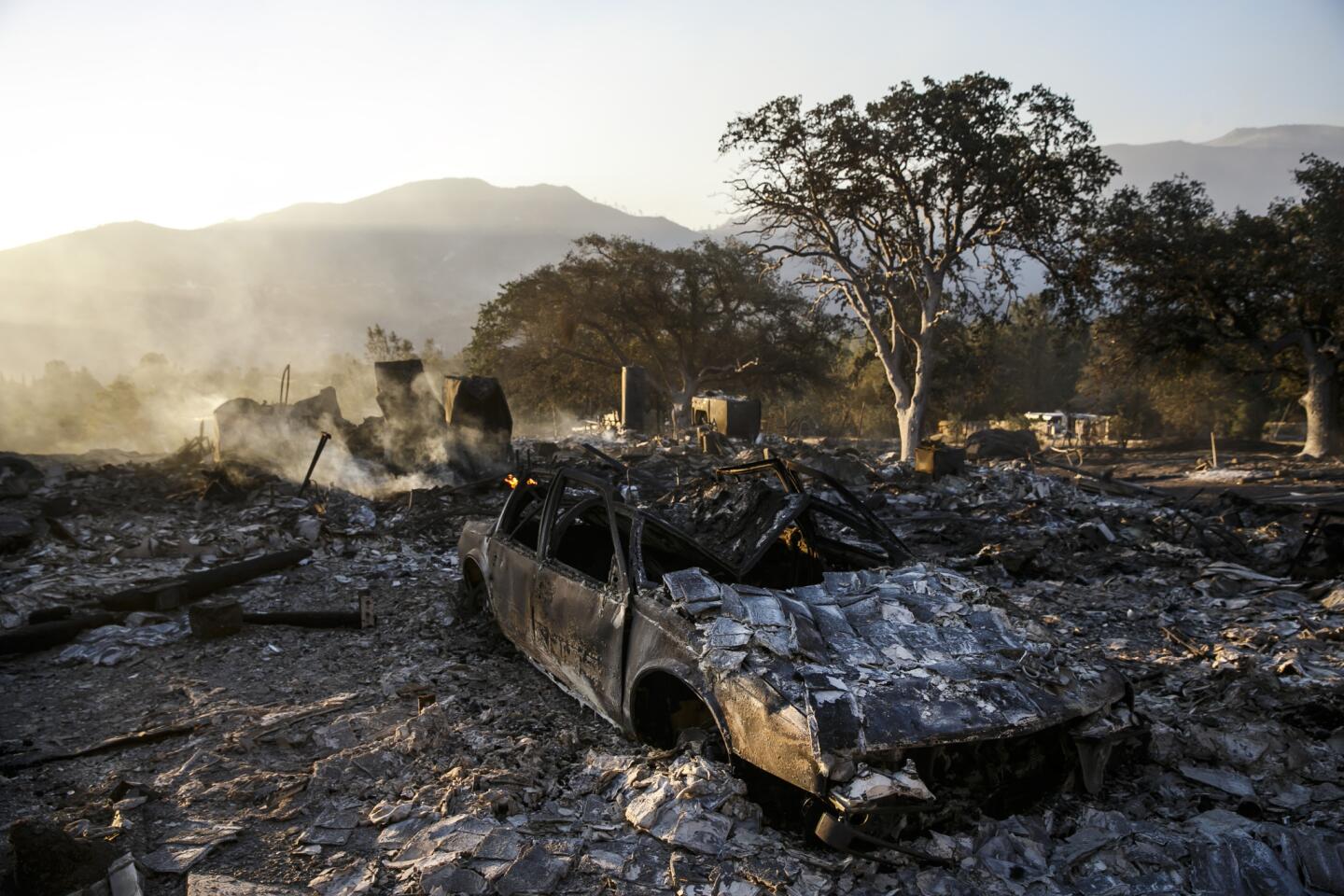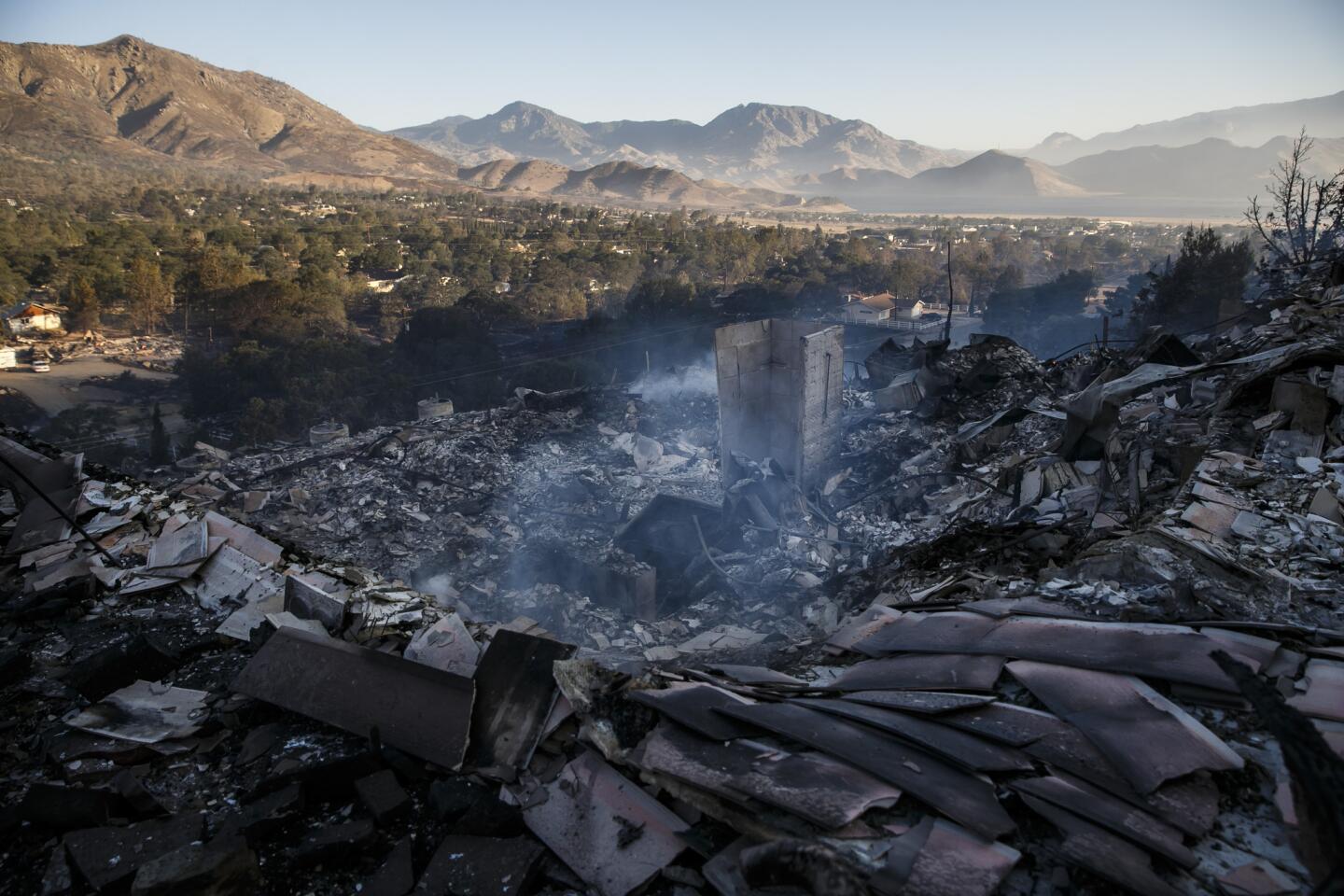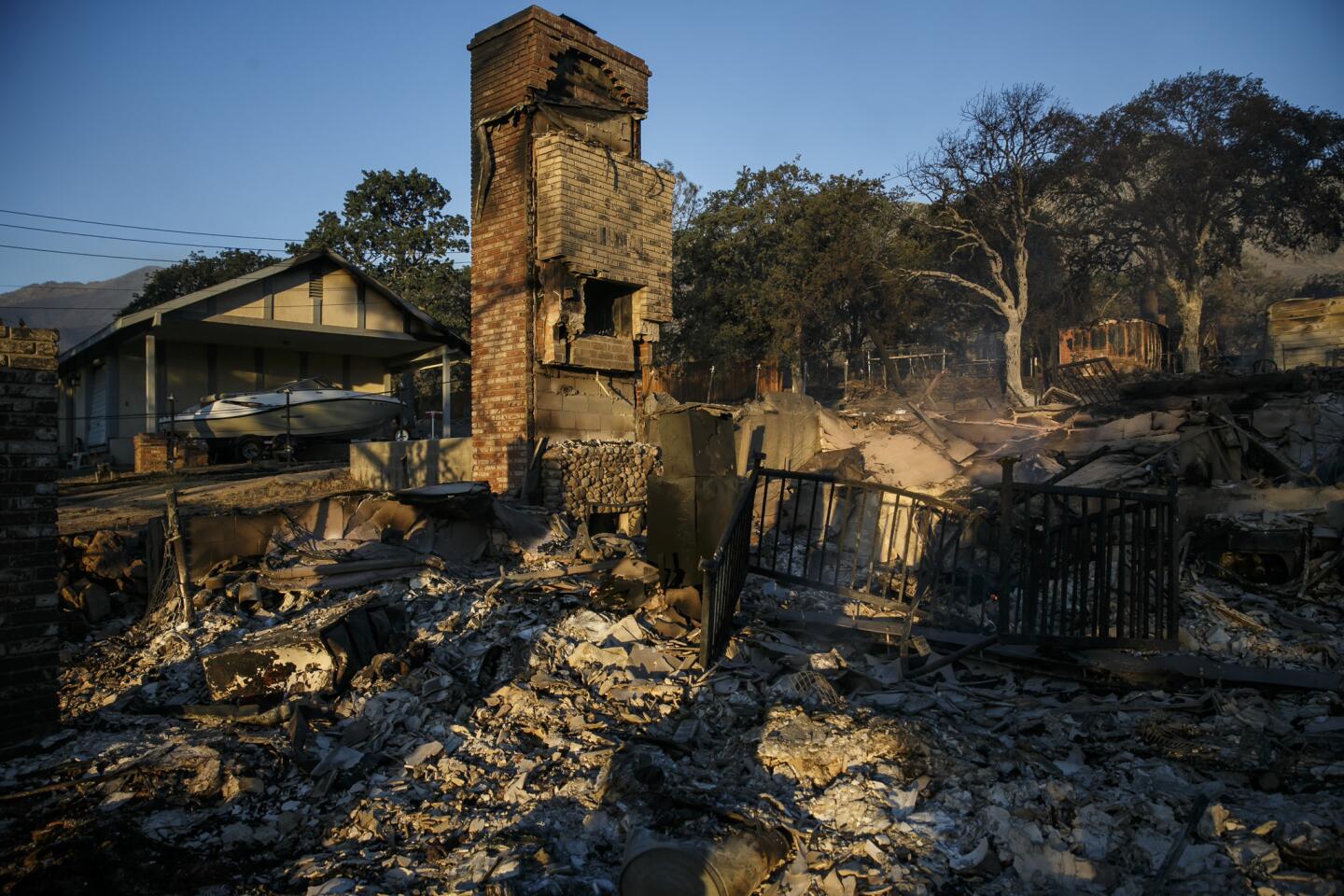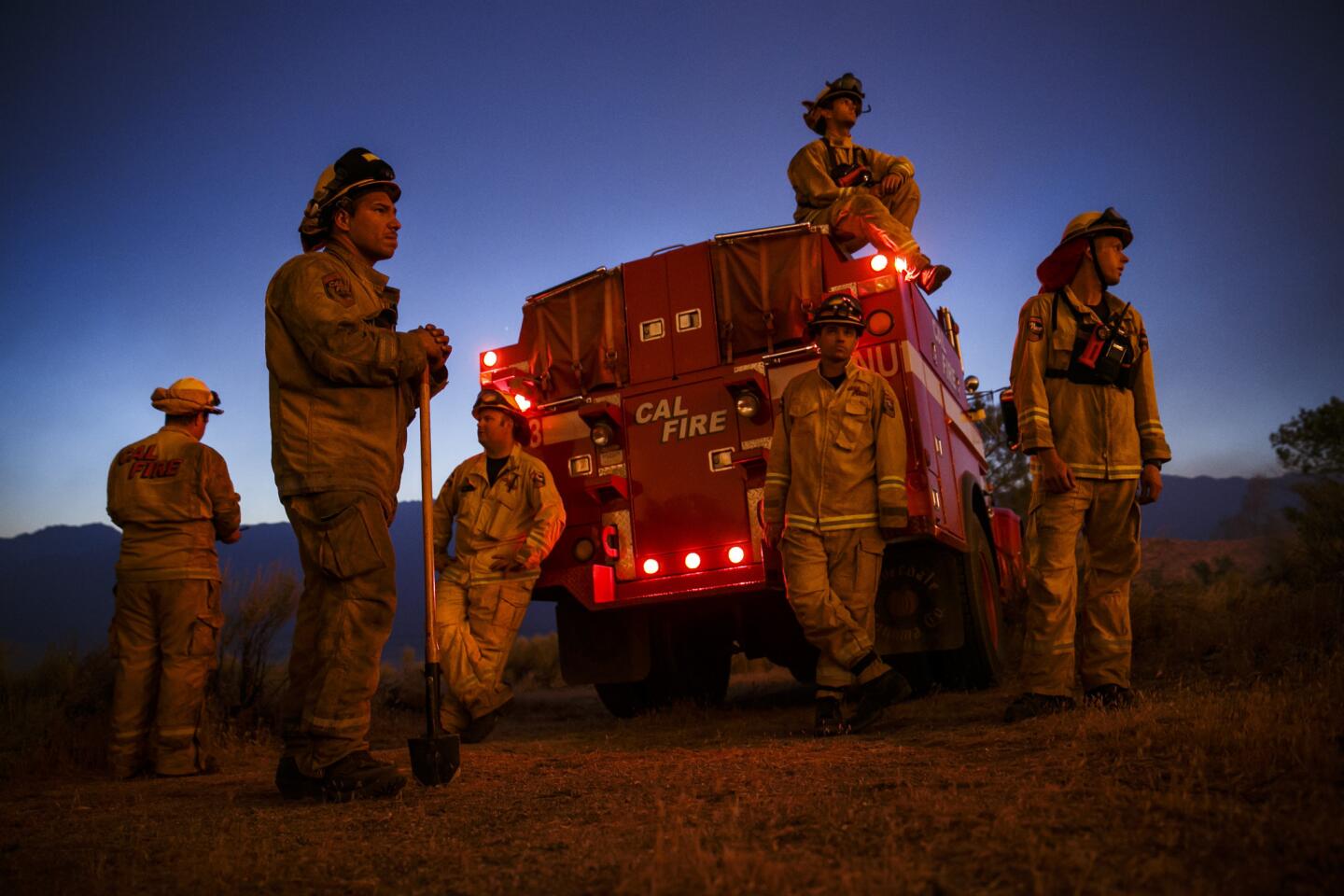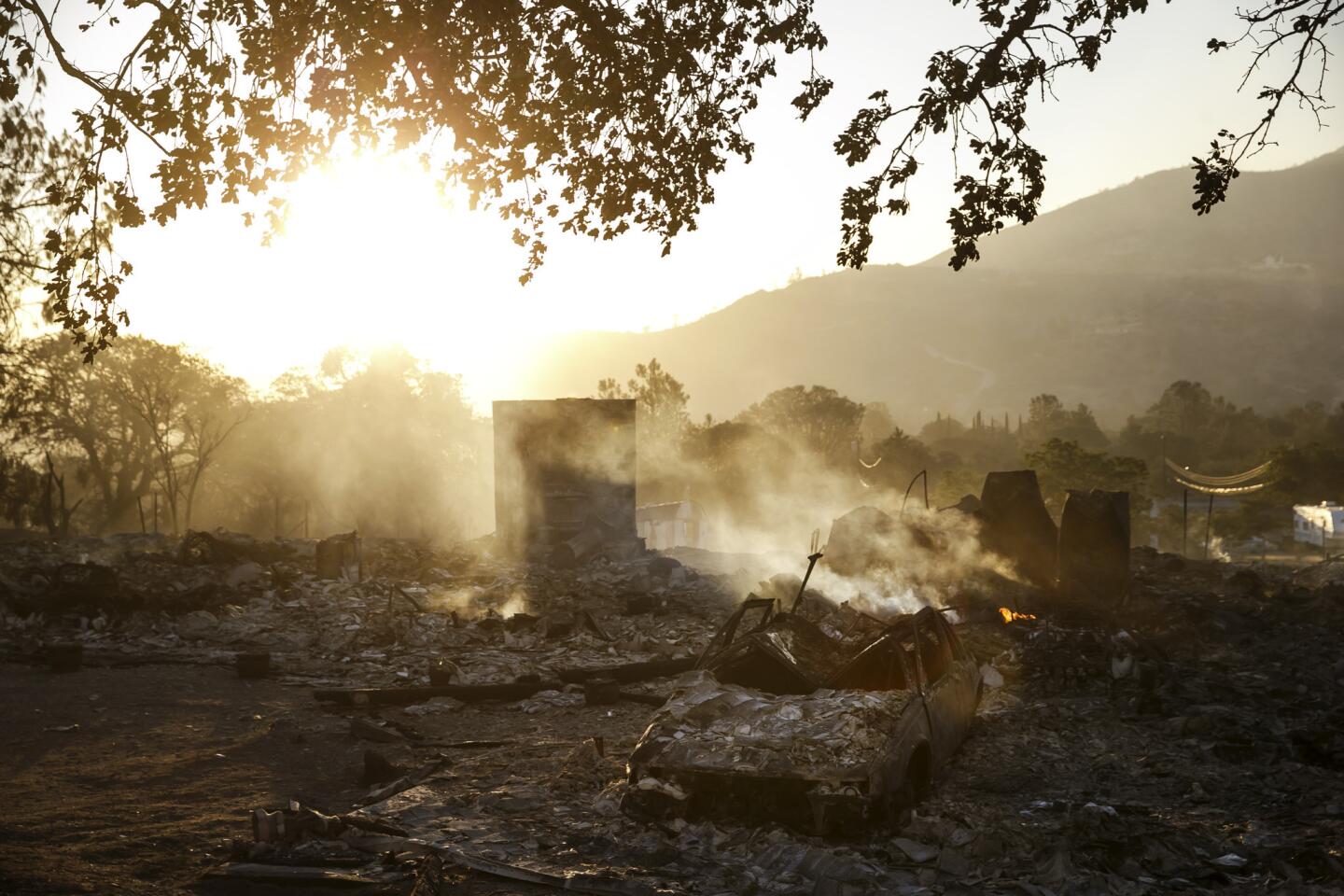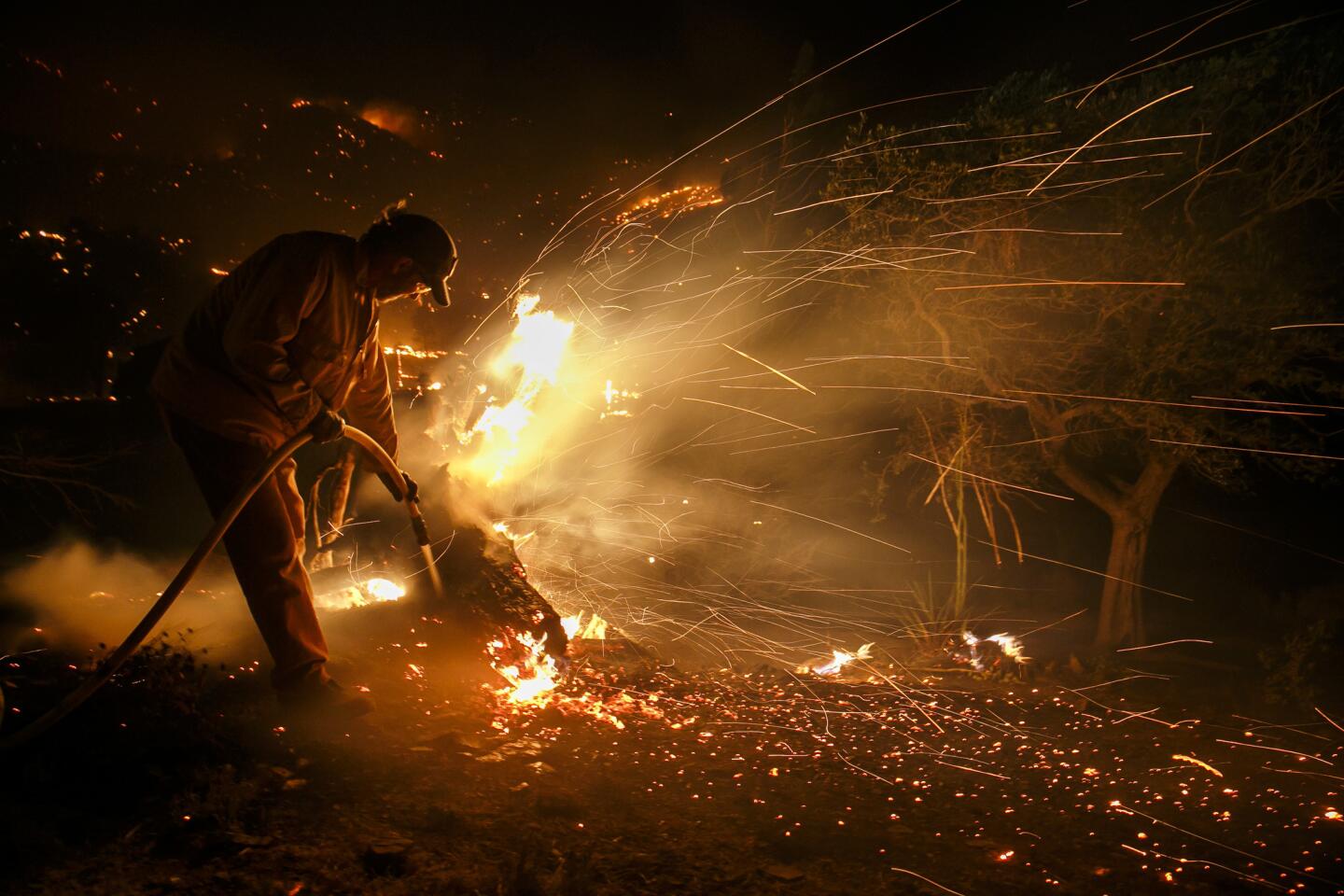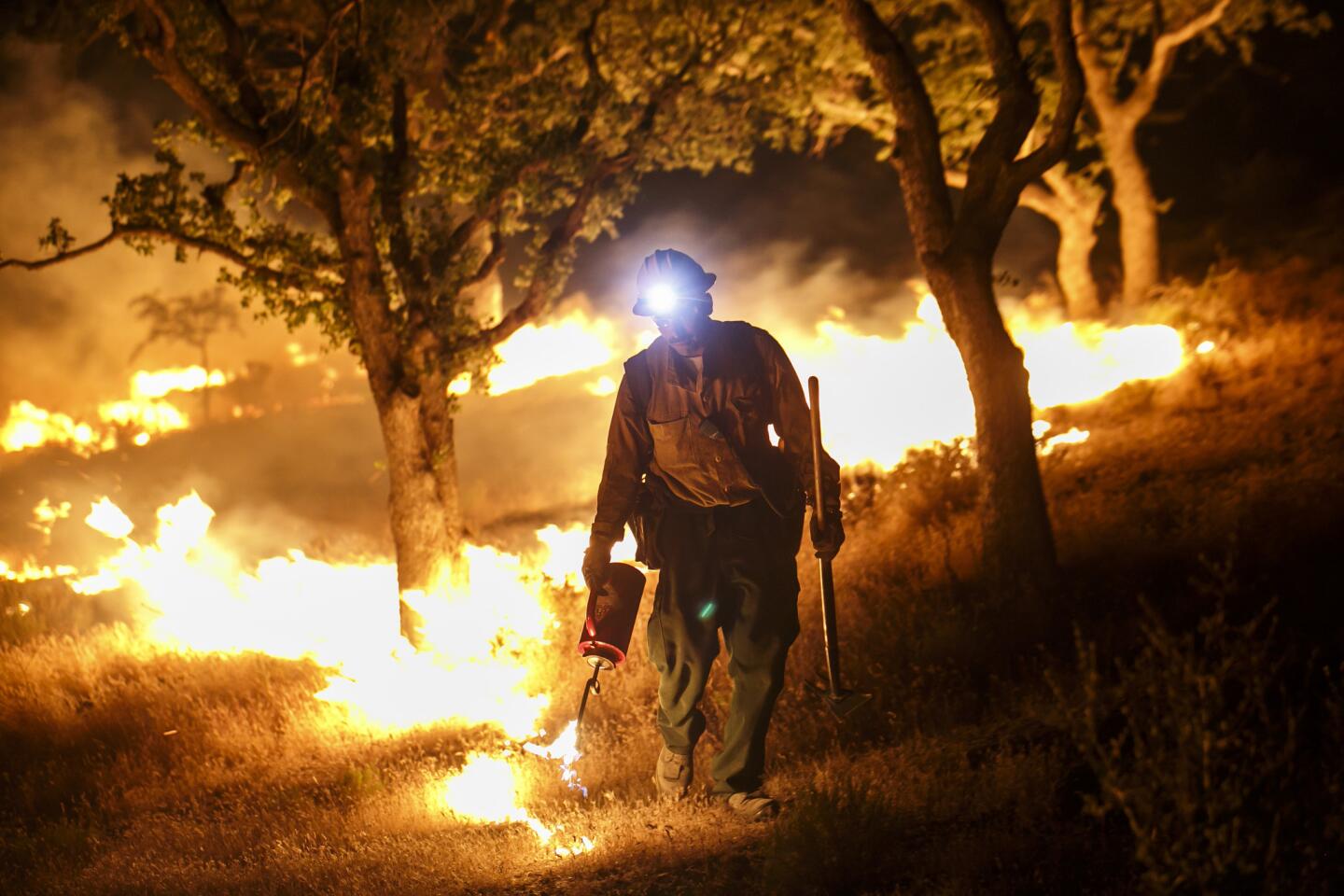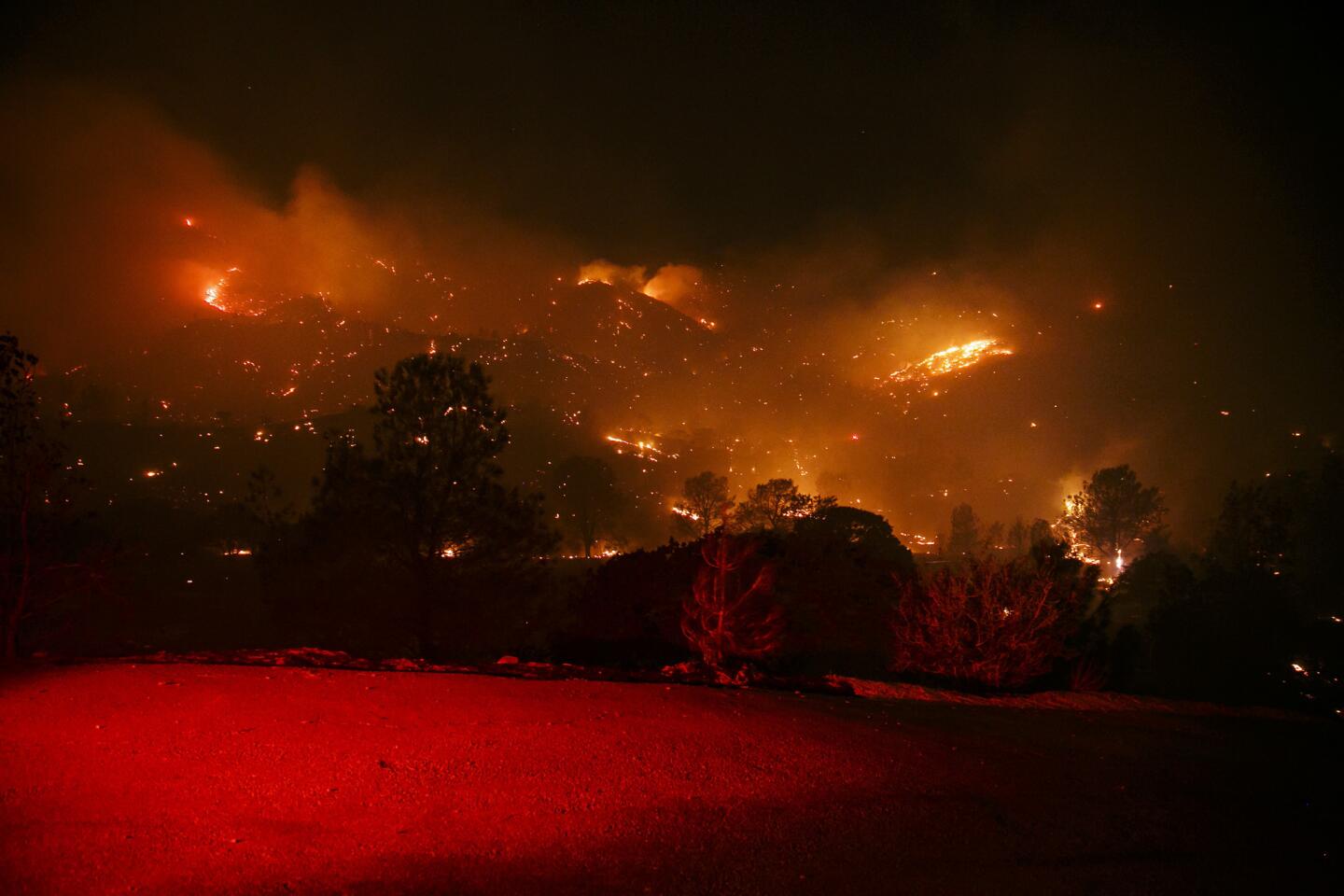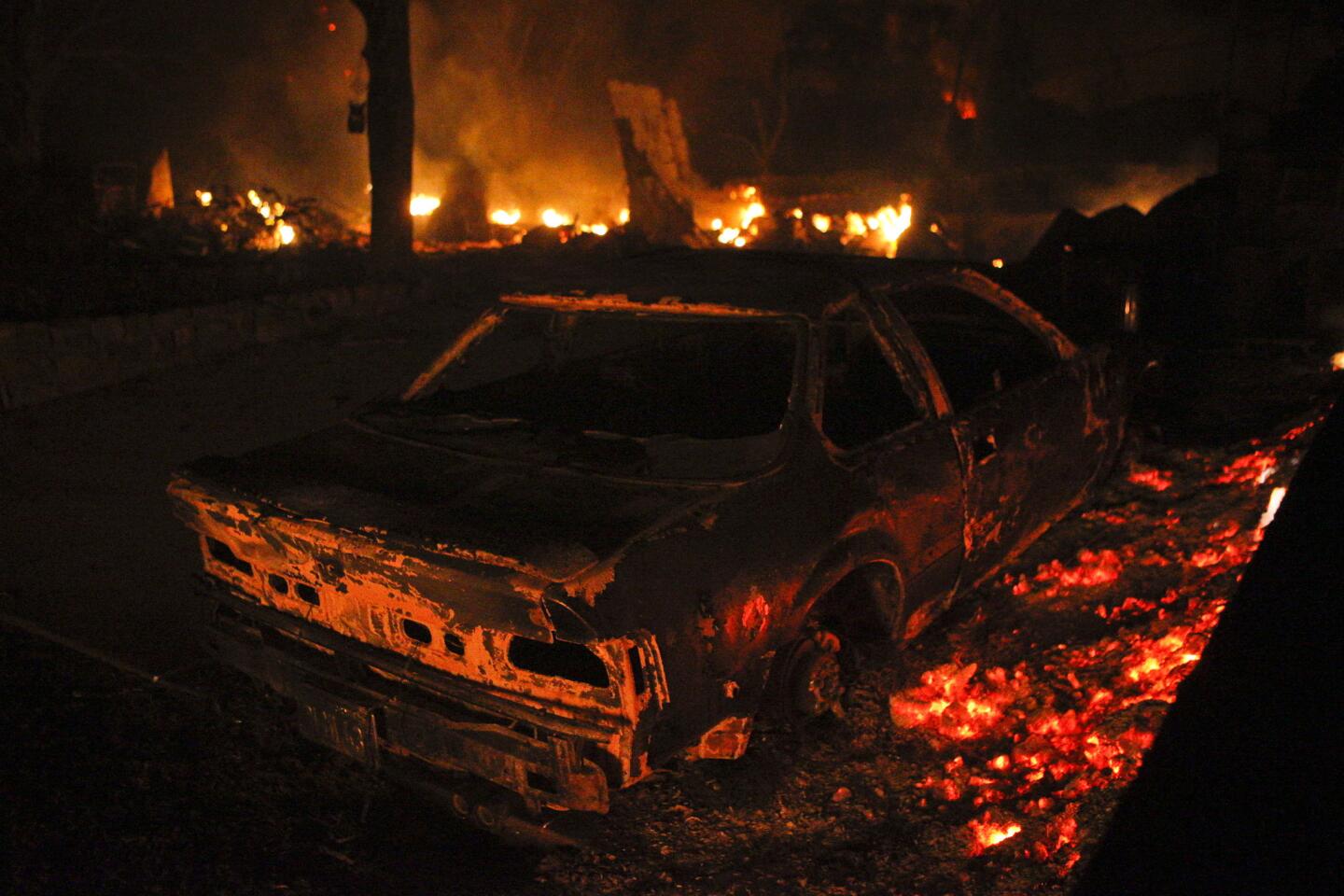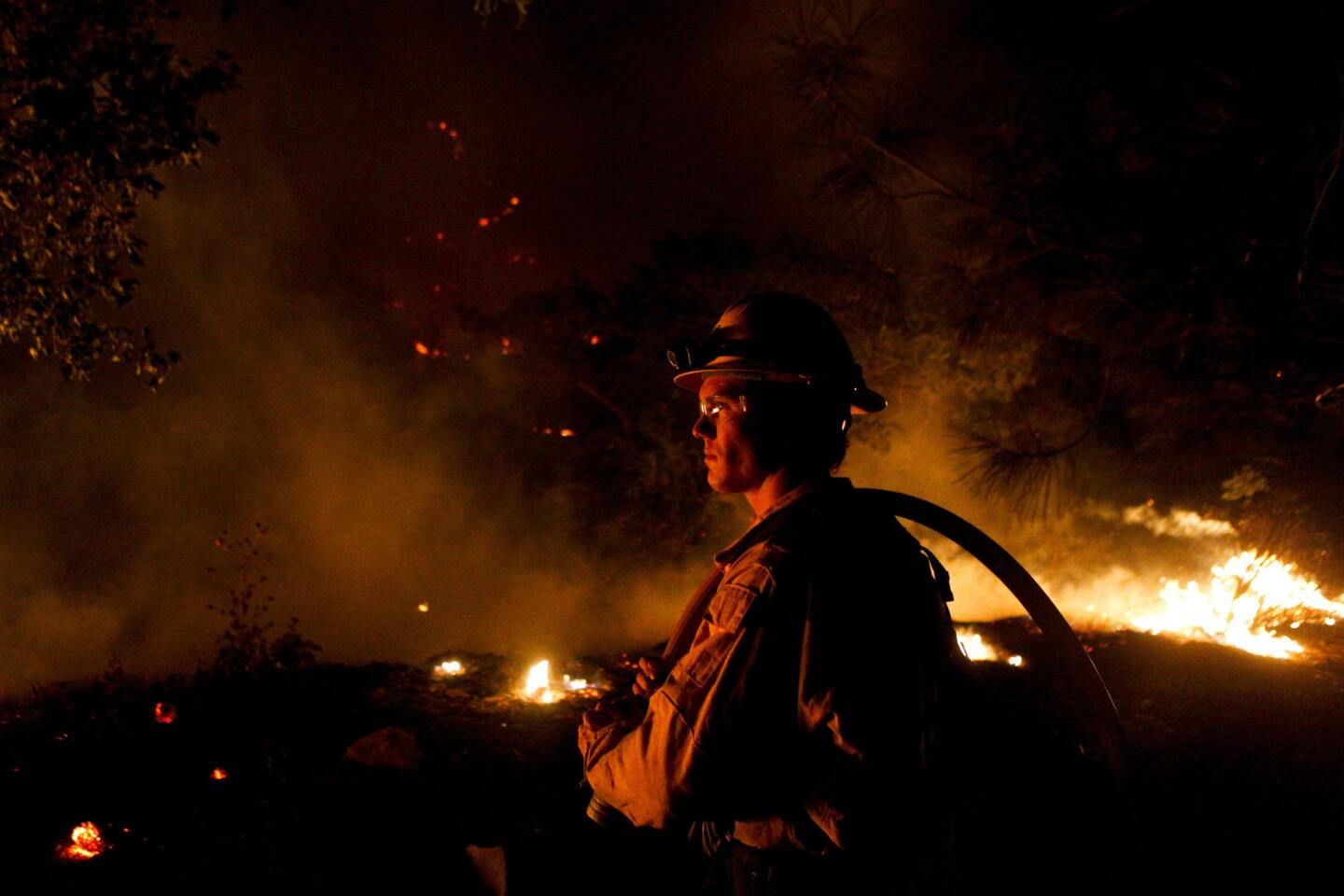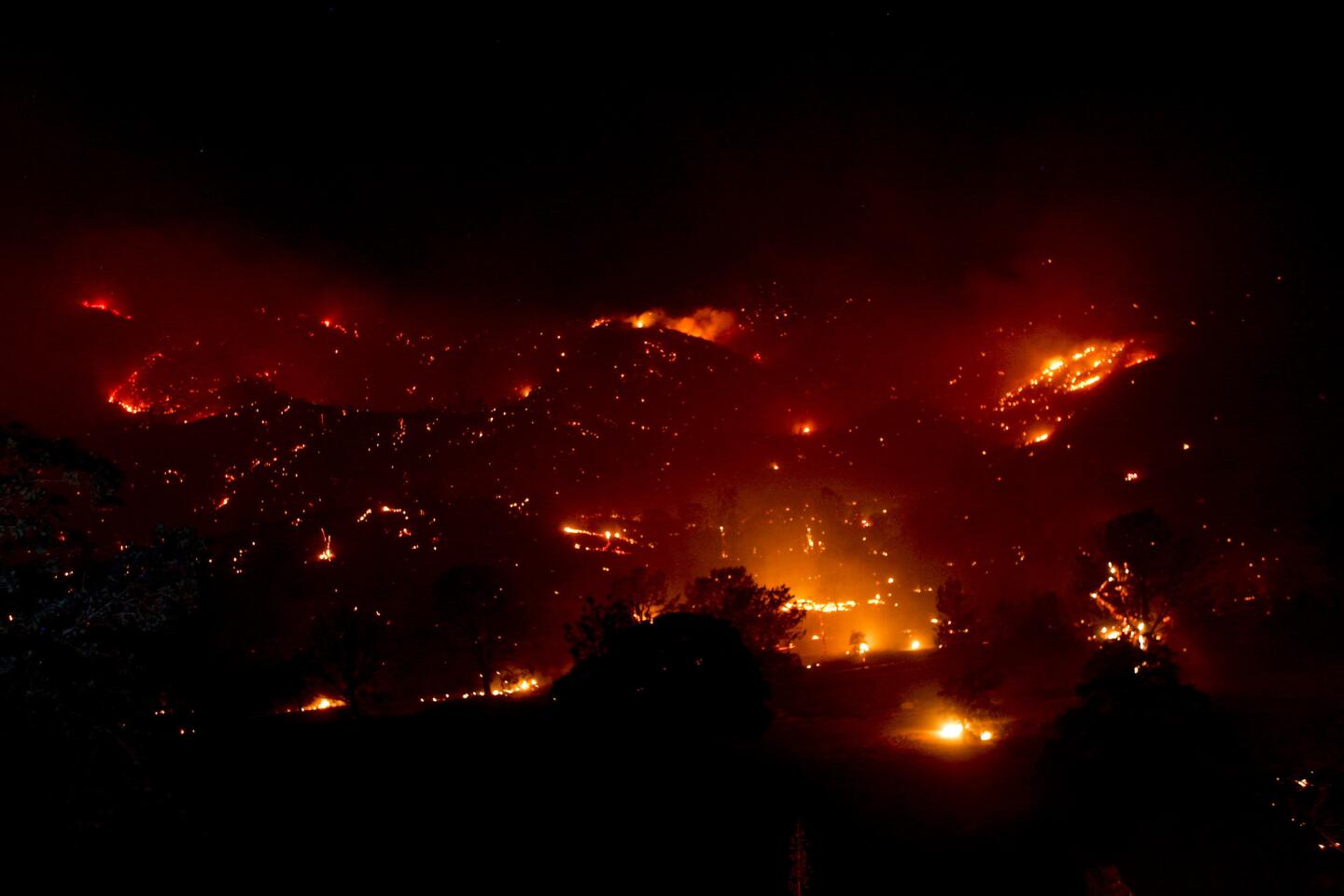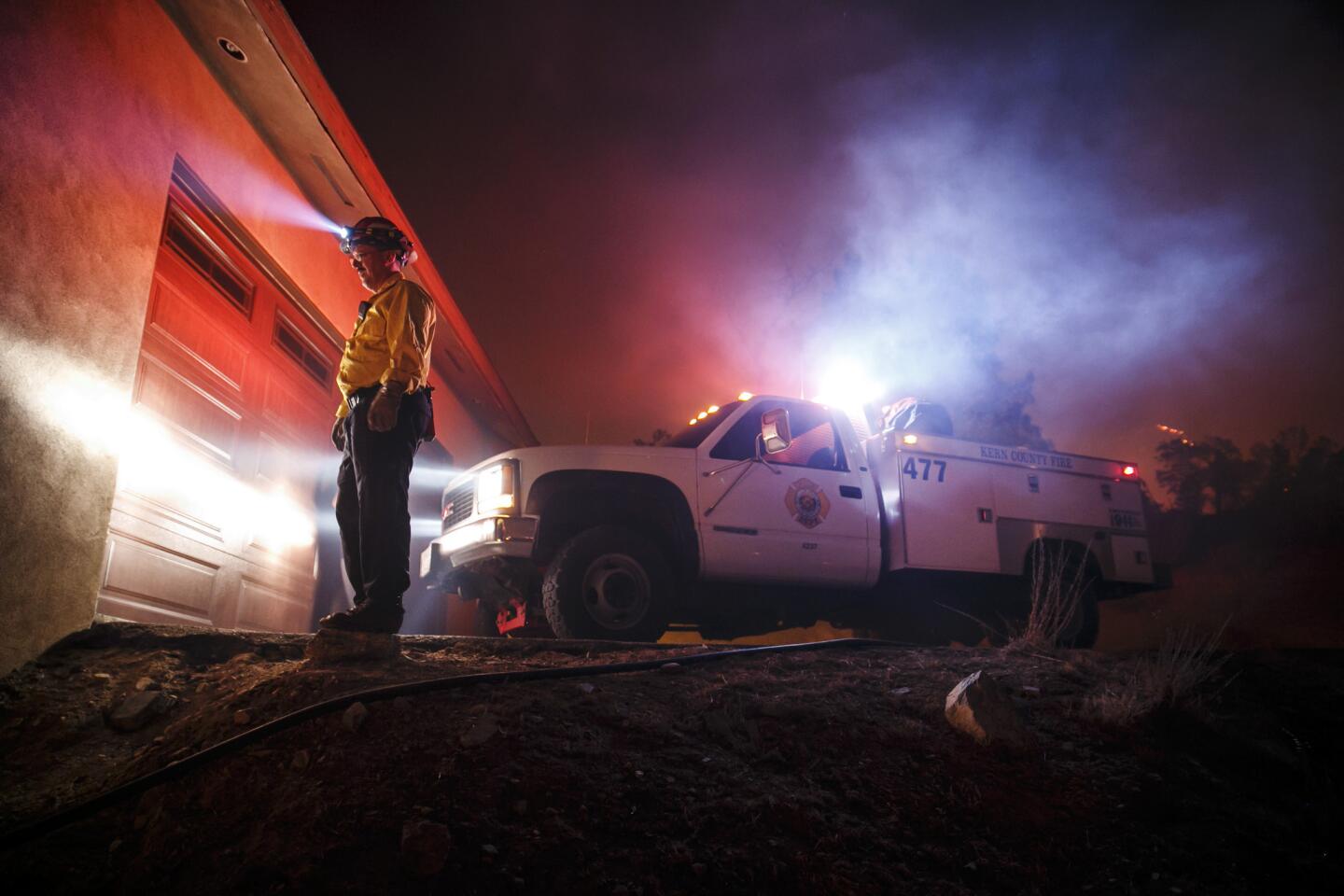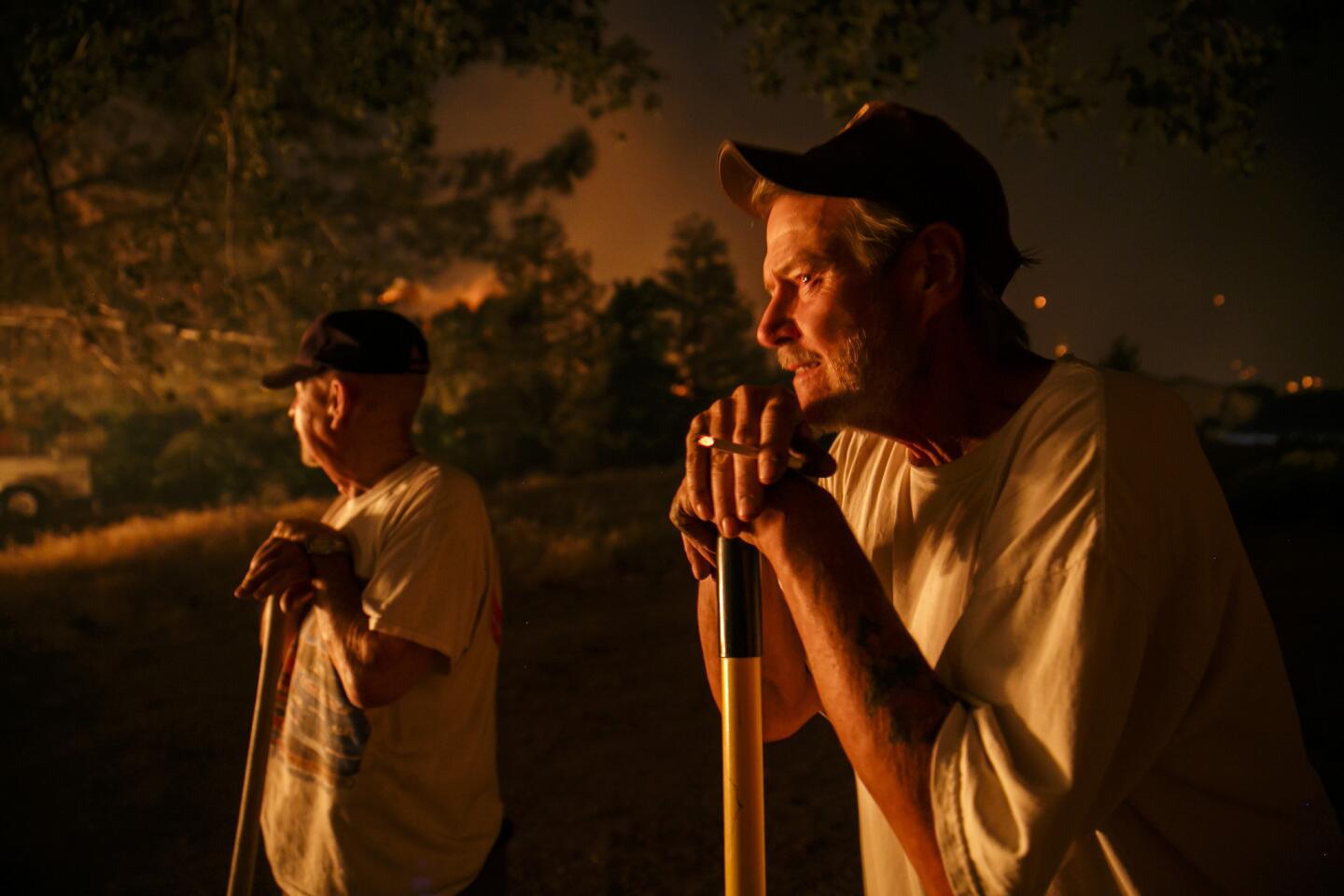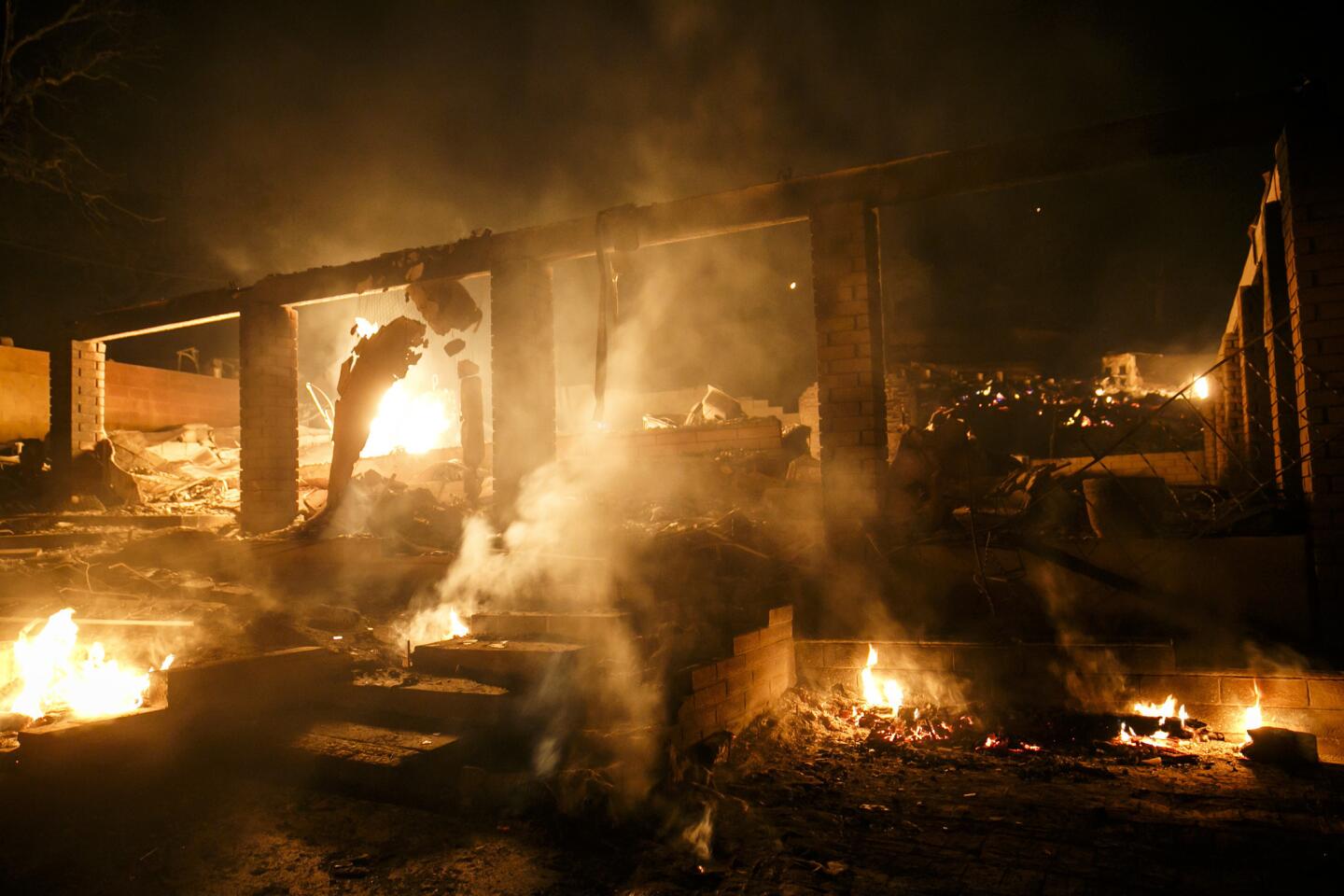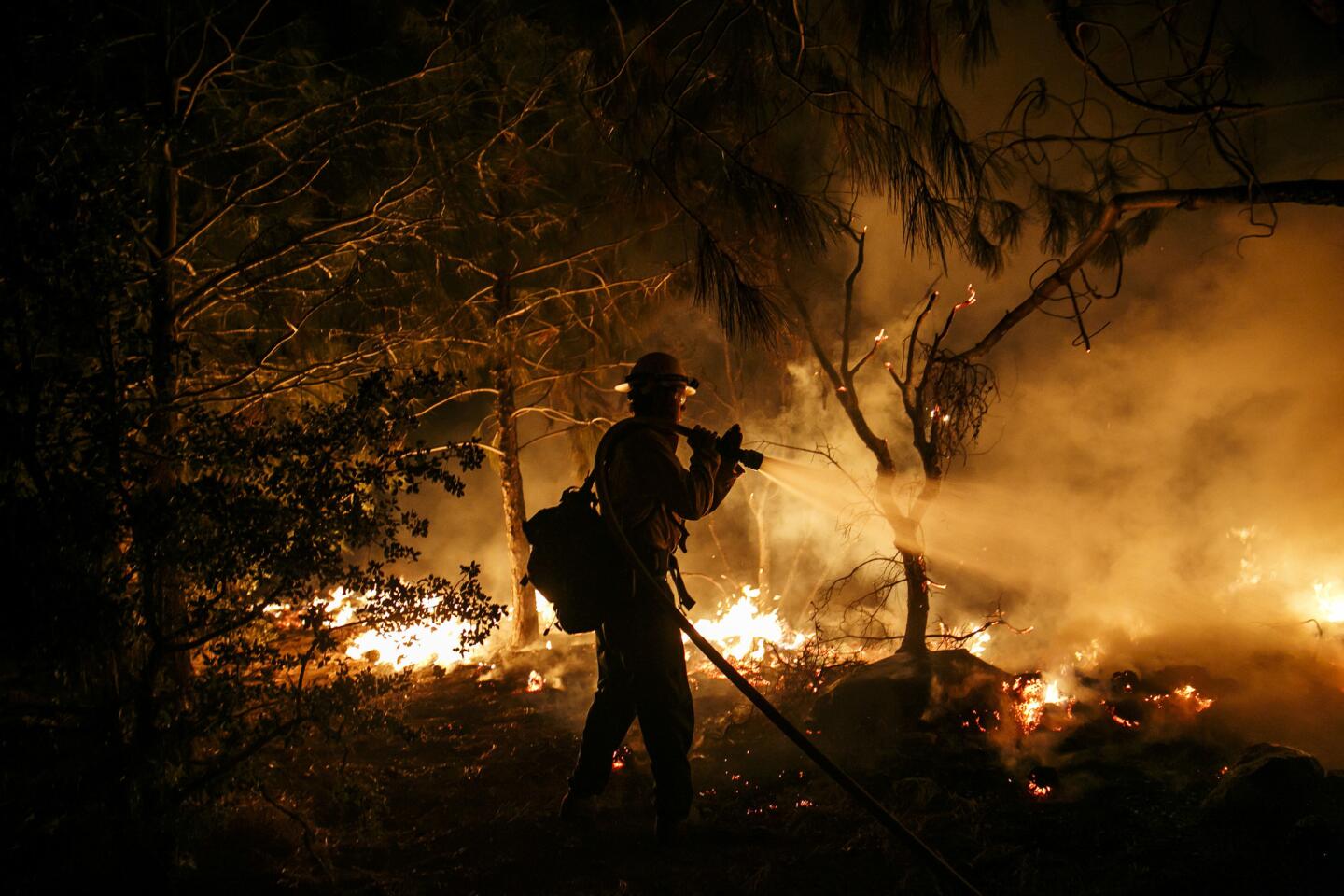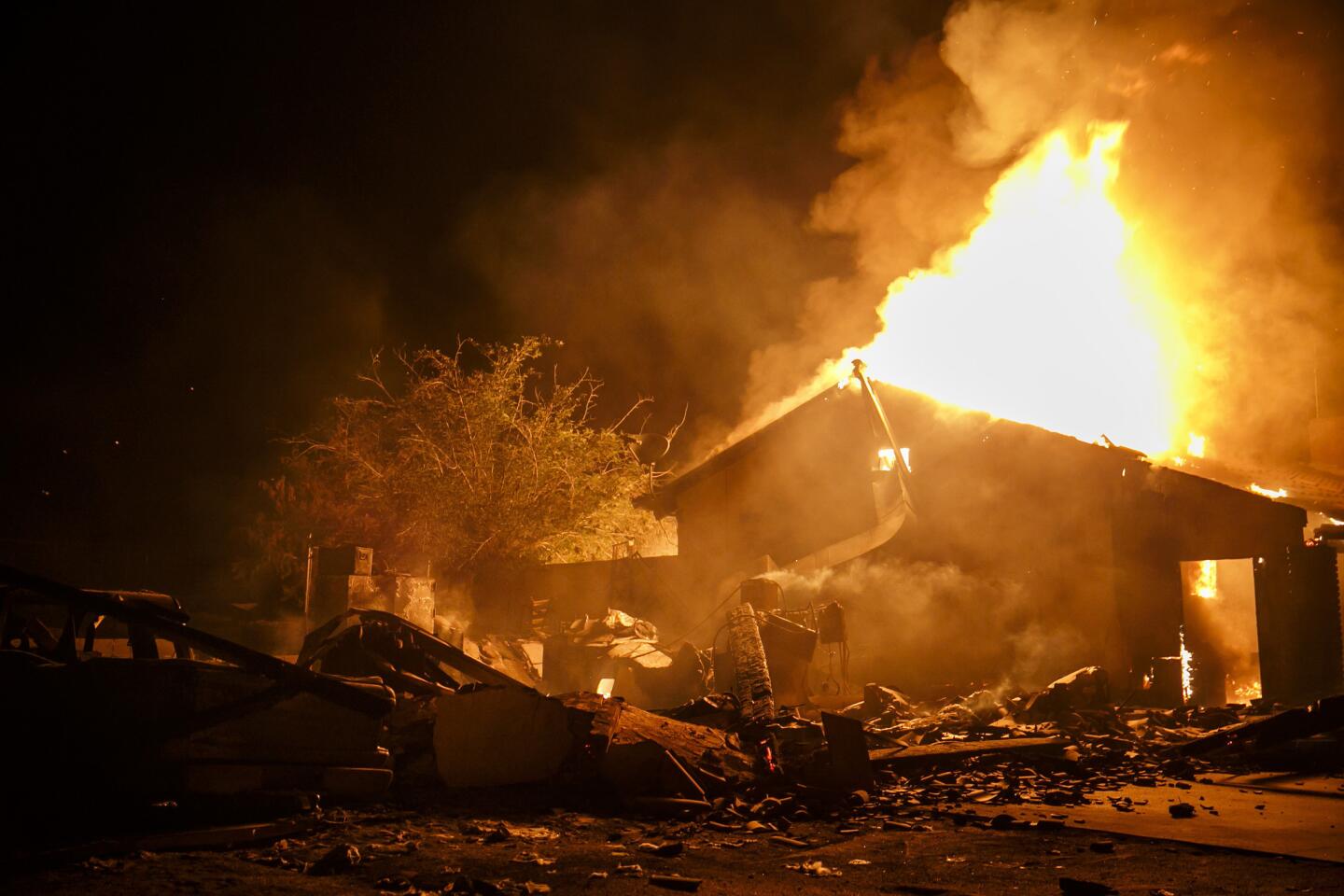For hospital staff and patients, Kern County fire was too close for comfort
- Share via
Bob Easterday was cutting a fire break behind his house close to where the Erskine fire started Thursday afternoon when he got a call to hurry over to the Kern Valley Hospital, where he works as the facilities director.
“The smoke was so thick that you could barely see,” Easterday said by telephone late Thursday. He immediately shut off the air conditioning to keep from pulling the smoke into the hospital.
“There was absolutely not time” to evacuate, Easterday said, despite orders to do so from fire officials.
Hospital executives decided to shelter in place, moving the 69 patients in the hospital’s skilled nursing facility into the cafeteria, a more central area that was less exposed to the hospital’s outer walls. The 10 patients in the hospital’s acute-care area stayed put.
“We do drill for this stuff,” said hospital CEO Timothy McGlew. “We just keep everybody calm and focused on the patients.”
That didn’t mean patients weren’t apprehensive.
“They were nervous,” Easterday said. “We had a lot of staff with them. We had a lot of damp washcloths they could put over their faces. We set up fans.”
Within minutes, Easterday said, he could see 10-foot flames at the hospital’s doorstep.
“My maintenance guys were fighting the fire with hoses,” he said, because firefighters just couldn’t keep up as the fire leapfrogged terrain.
The fire was burning so fast, “it literally blew right past the hospital,” McGlew said. “The only thing I can call it is a miracle.”
No hospital structures were damaged and nobody was injured, as far as McGlew and Easterday were aware.
Flames were no longer visible around the hospital late Thursday, though firefighters were dealing with intermittent flare-ups. Residents of the skilled nursing facility had already been moved back to their rooms.
But not everything was back to normal.
Power was out, and the hospital was operating on generators. The hospital had enough energy for essential services, Easterday said, but “every third light in the hallway is out, that kind of thing. It just makes it a bit challenging to continue care.”
AT&T cell service had also gone out, making it difficult for hospital staff to communicate with first responders and prompting worries among staff and patients as they couldn’t get in touch with loved ones.
“I do not know if my house is still standing,” Easterday said. “I haven’t been able to get in touch with my wife.”
As he spoke, he was handed a note saying that his wife had called and was at the Kern Valley High School, which had been opened as an evacuation center. But there was no word about his house.
More to Read
Sign up for Essential California
The most important California stories and recommendations in your inbox every morning.
You may occasionally receive promotional content from the Los Angeles Times.
